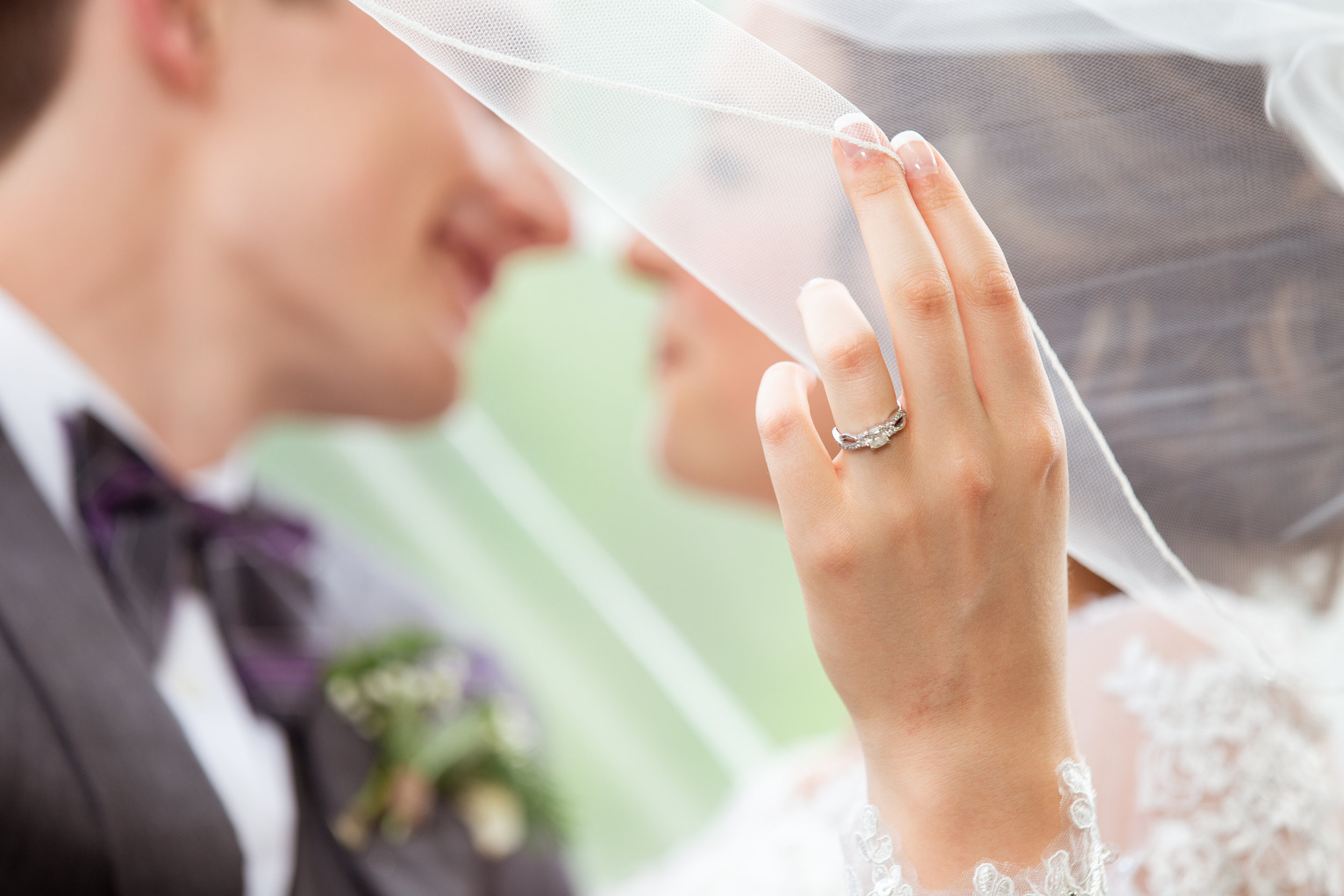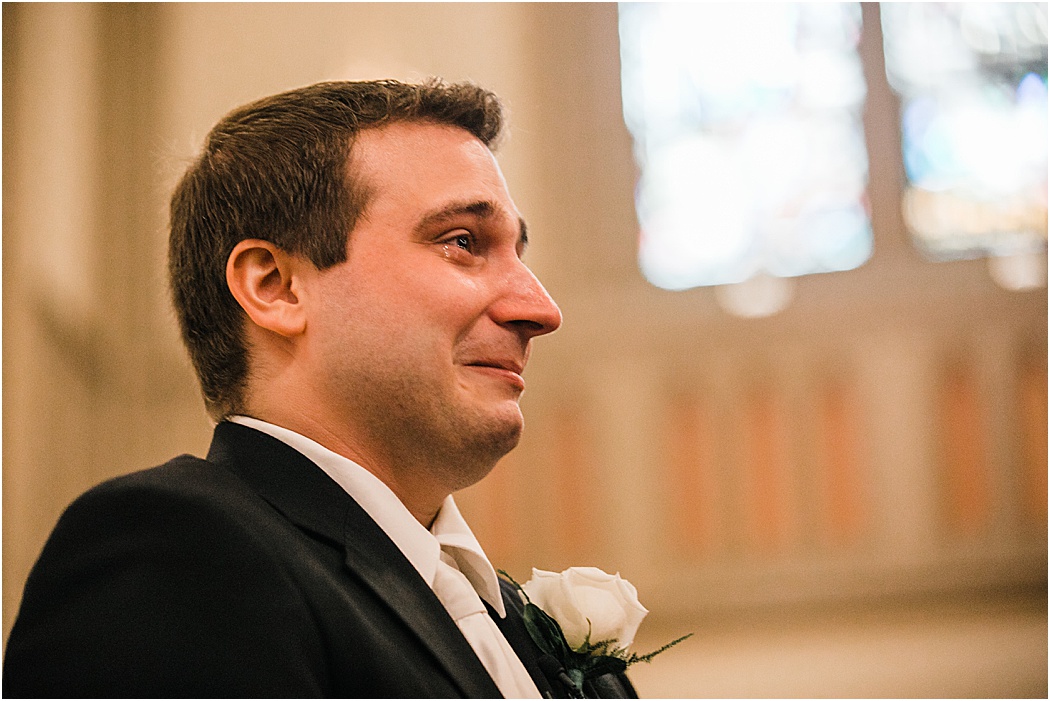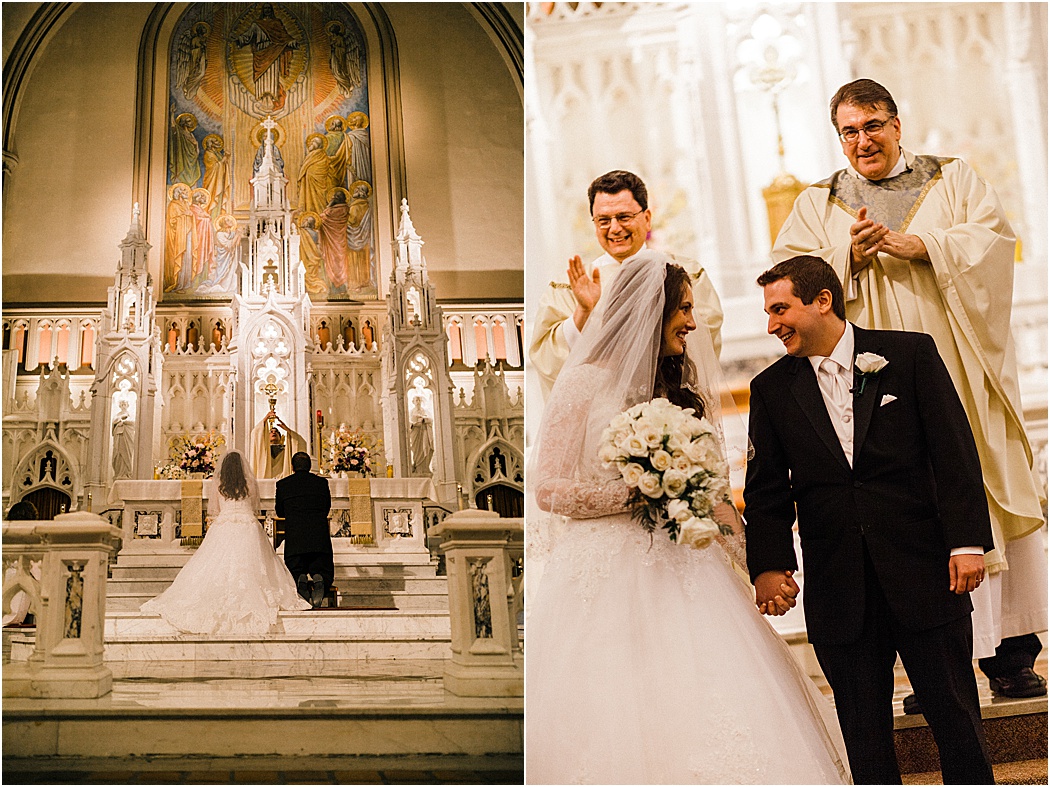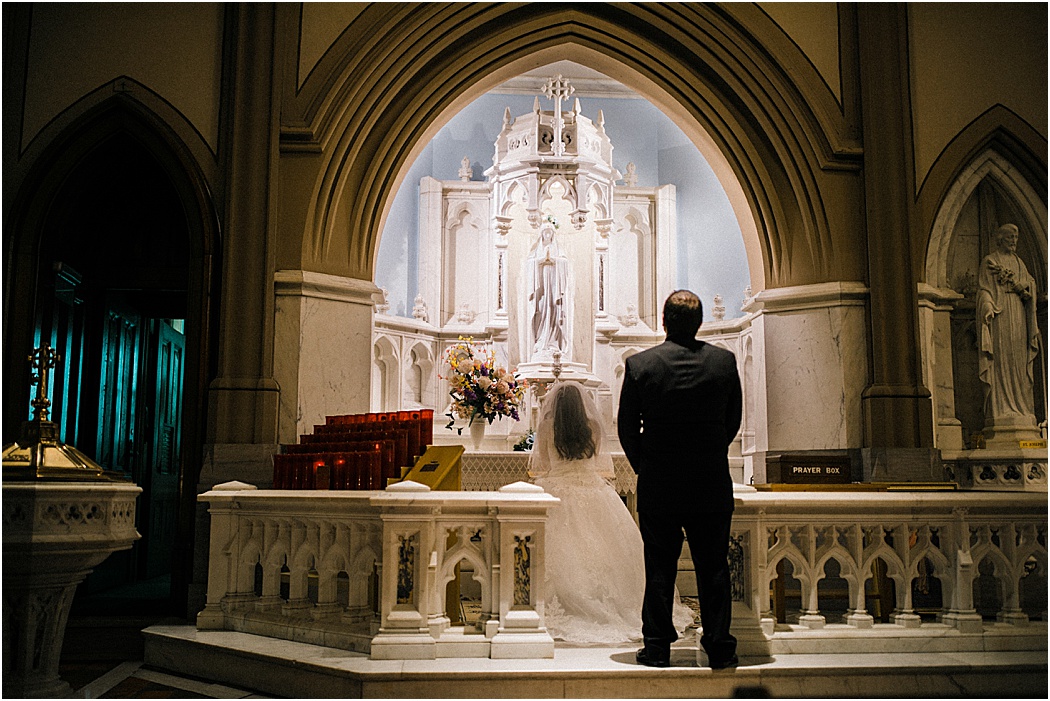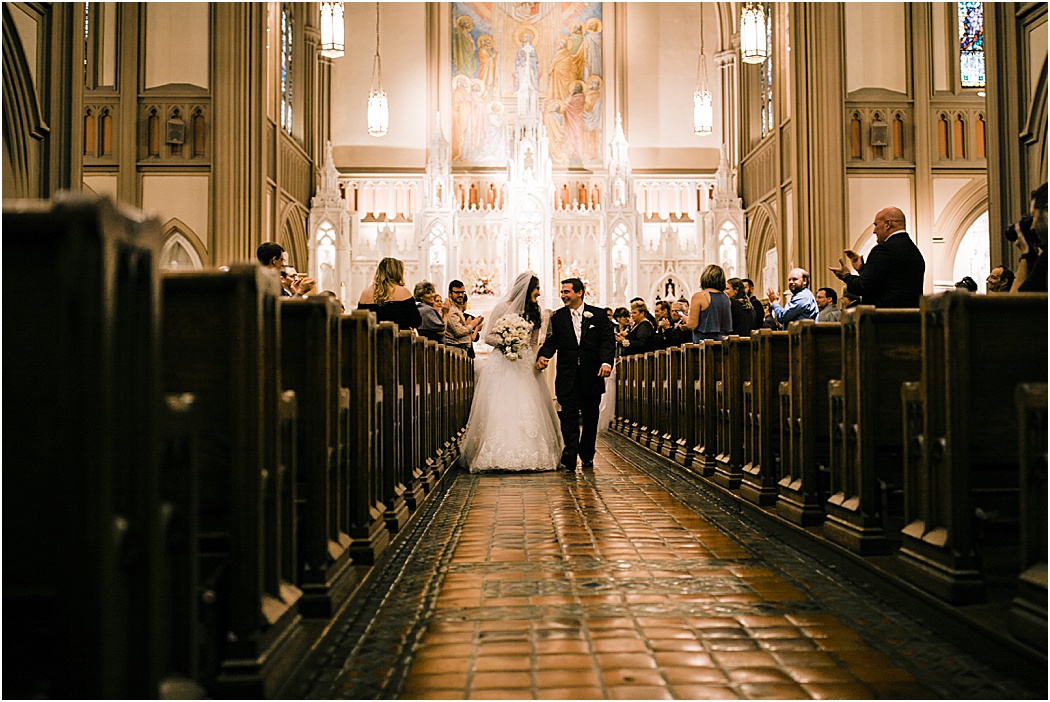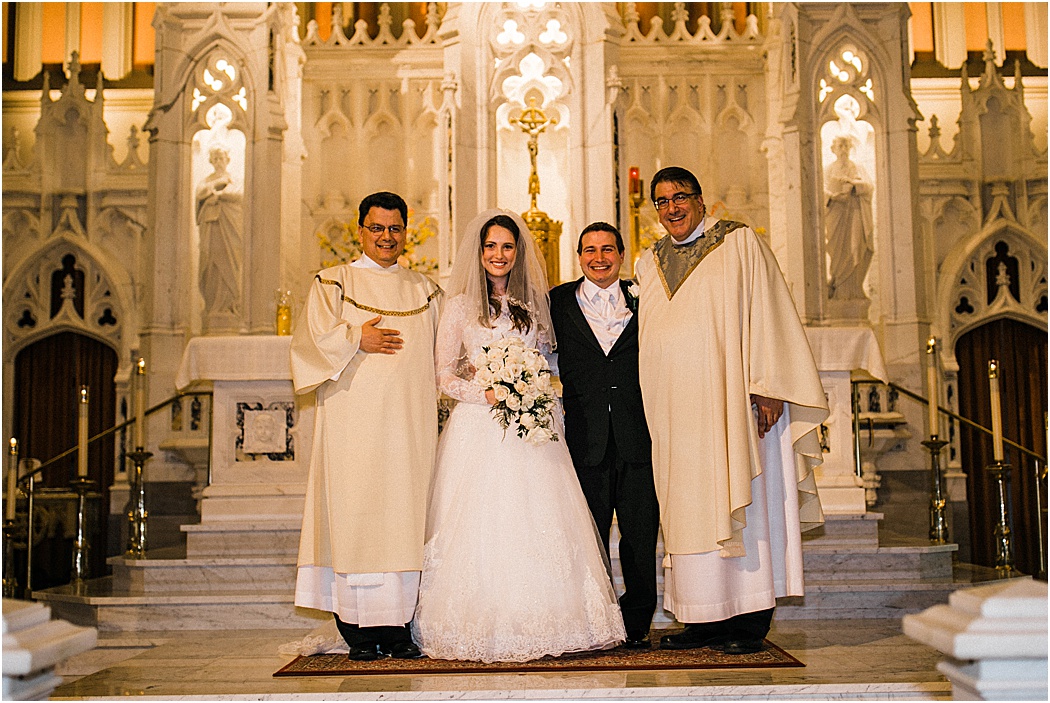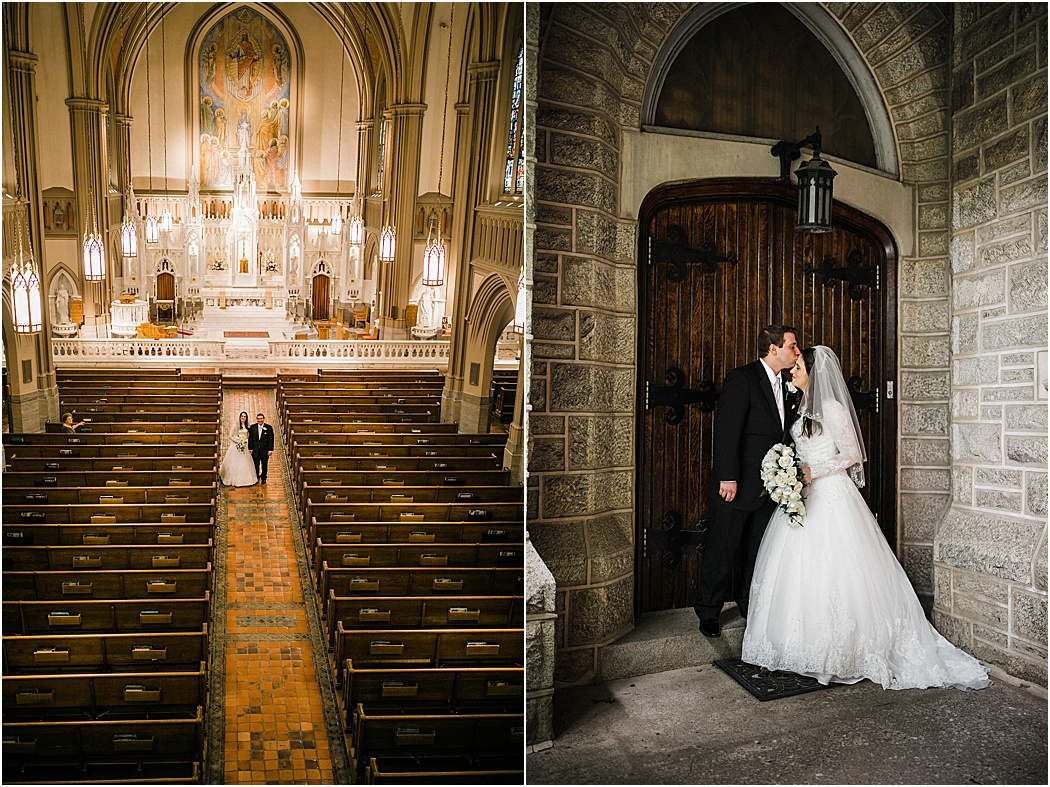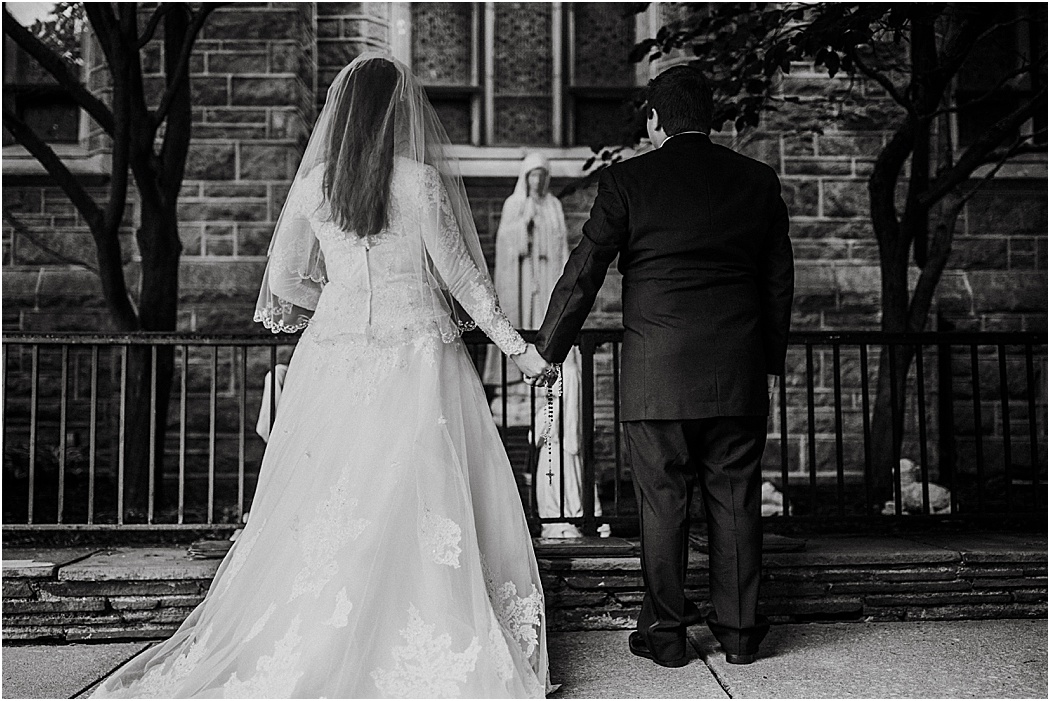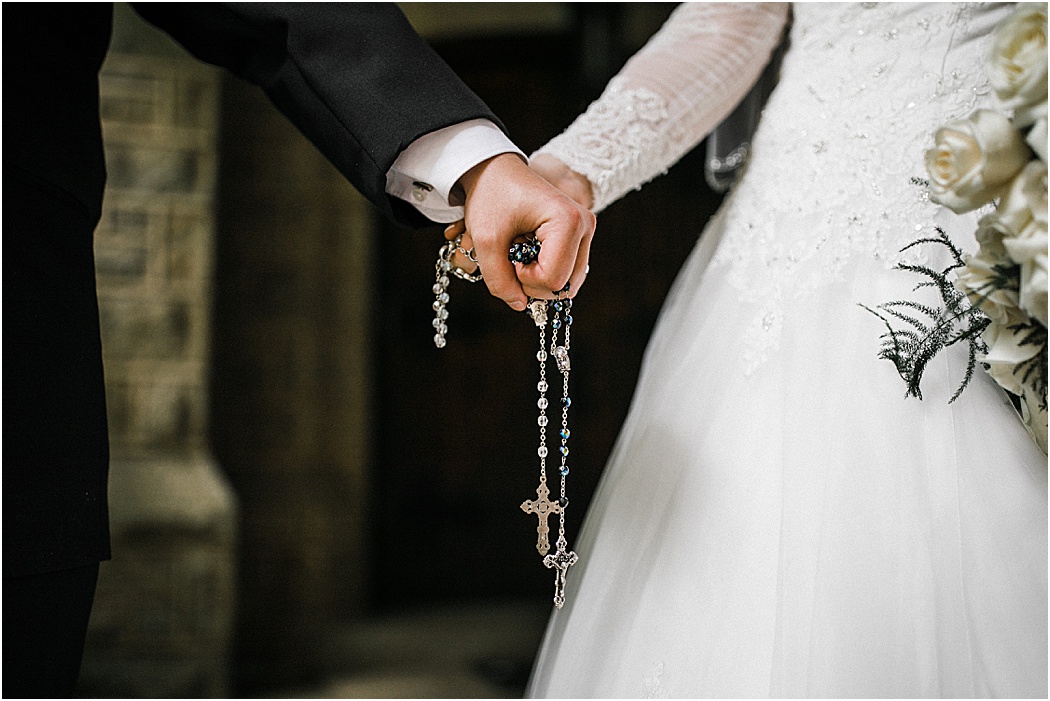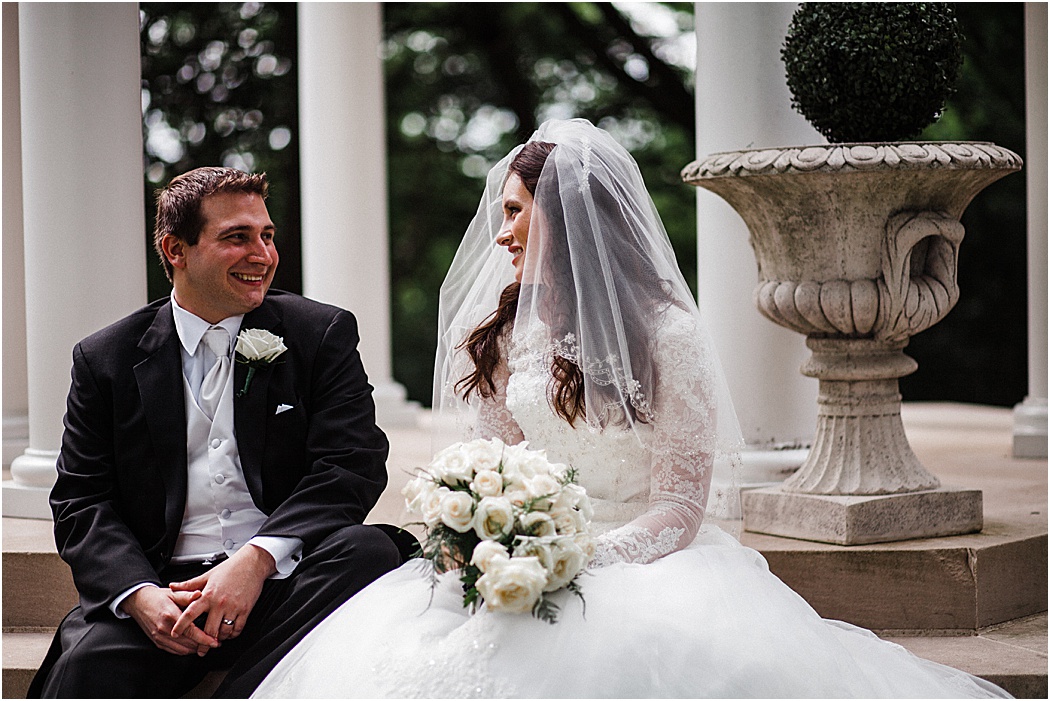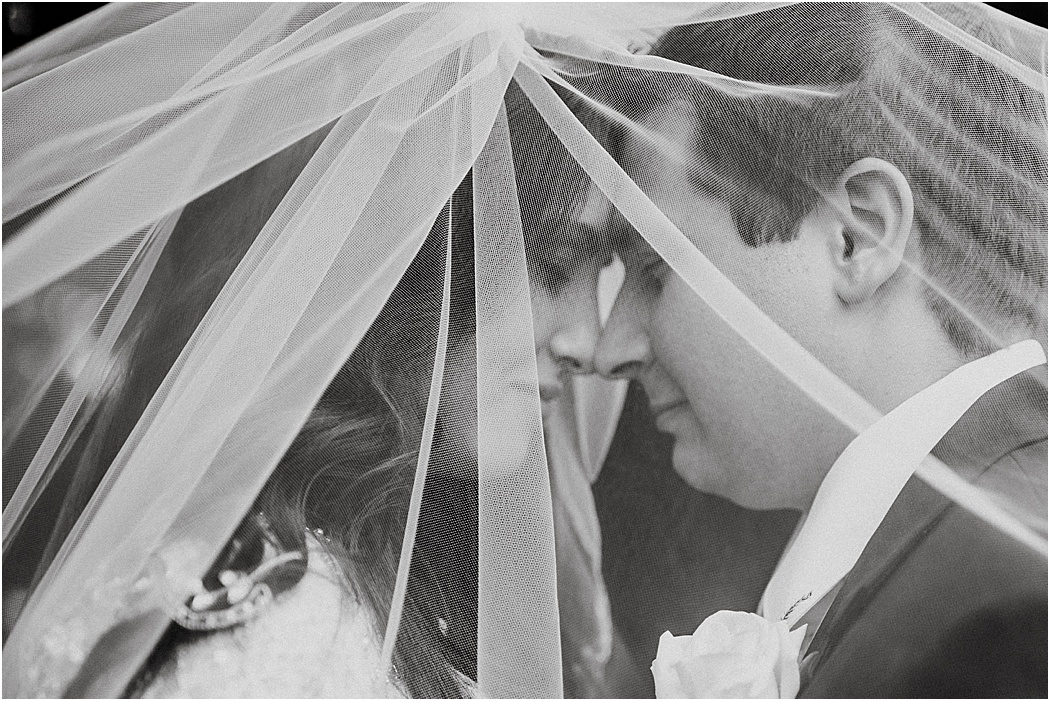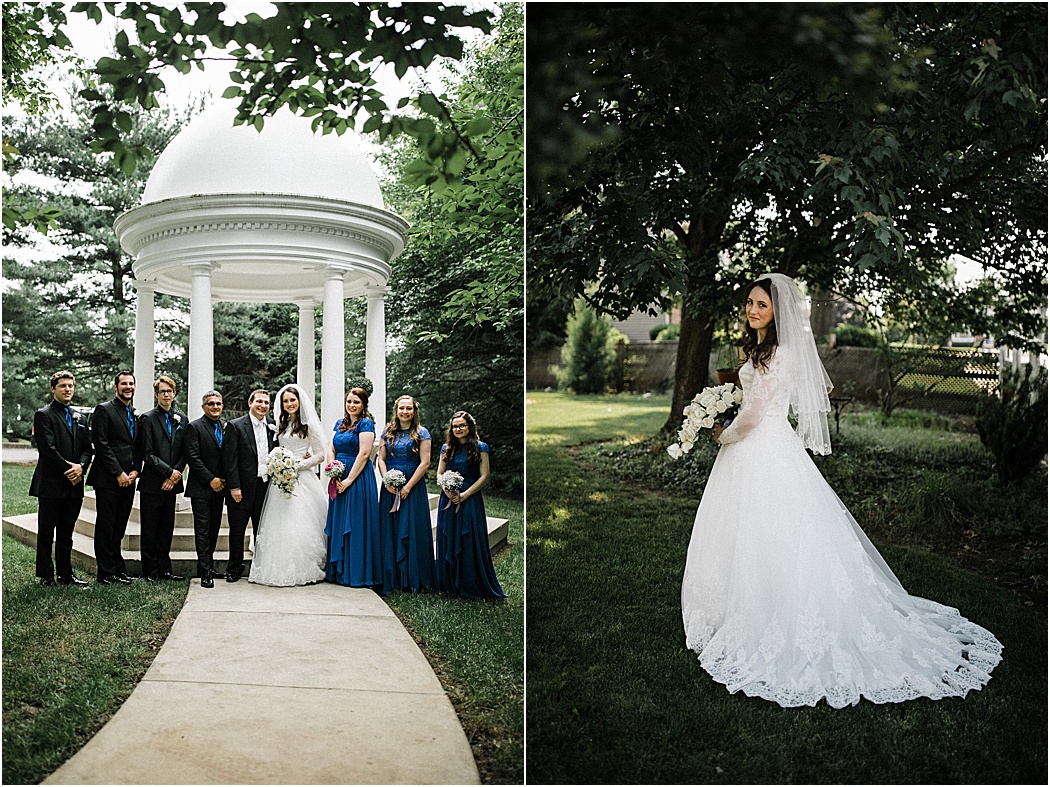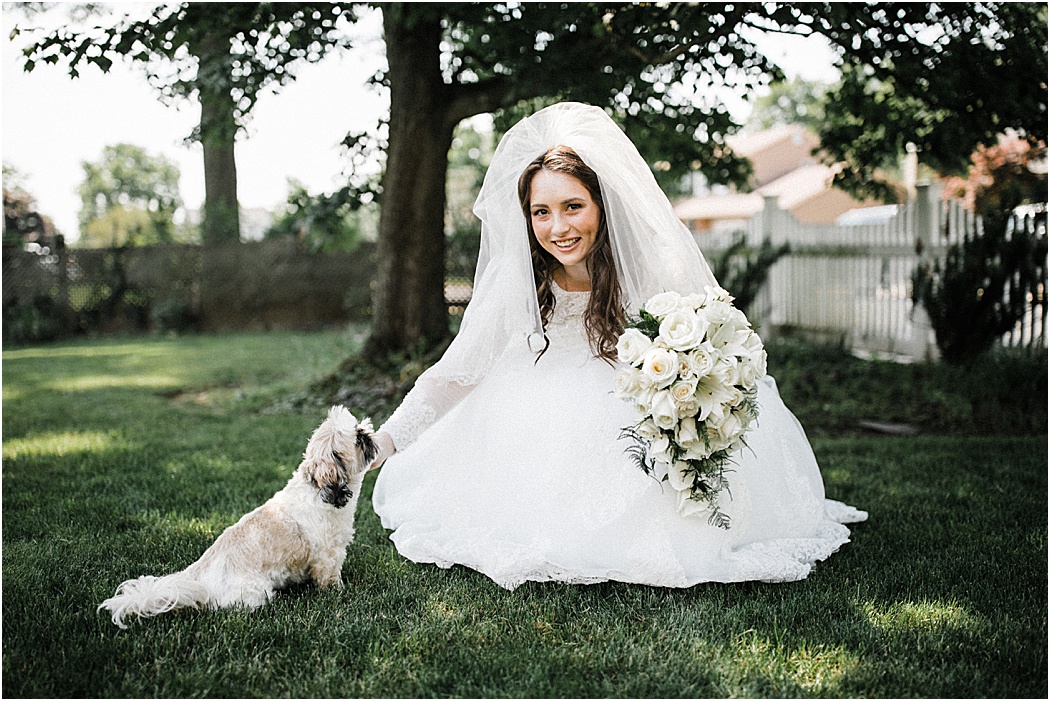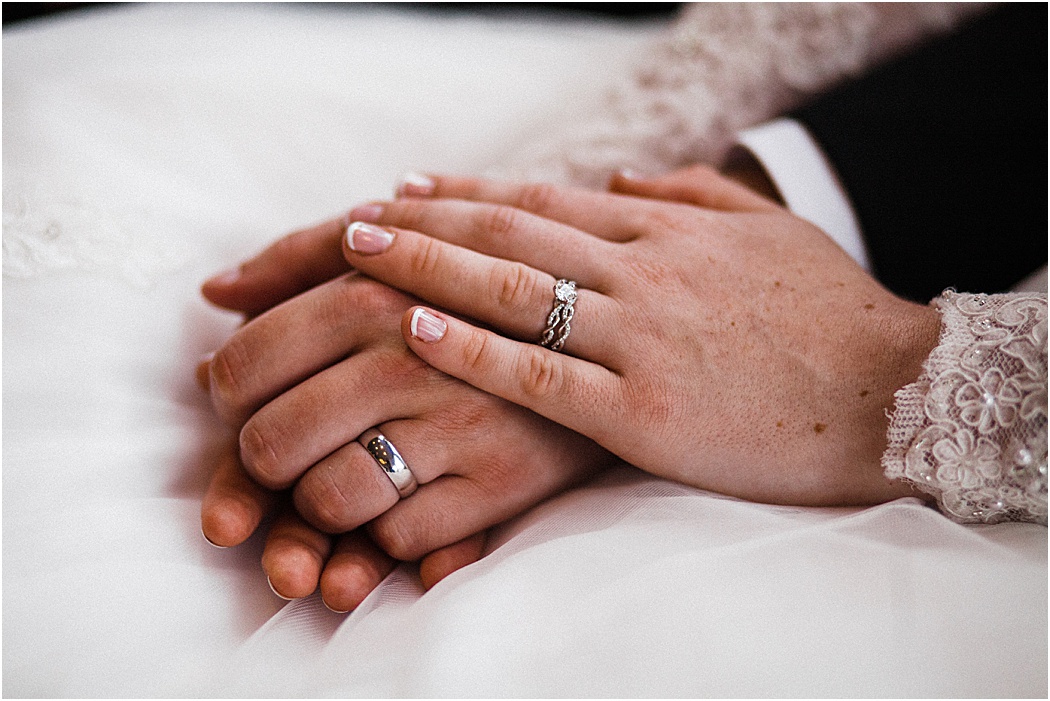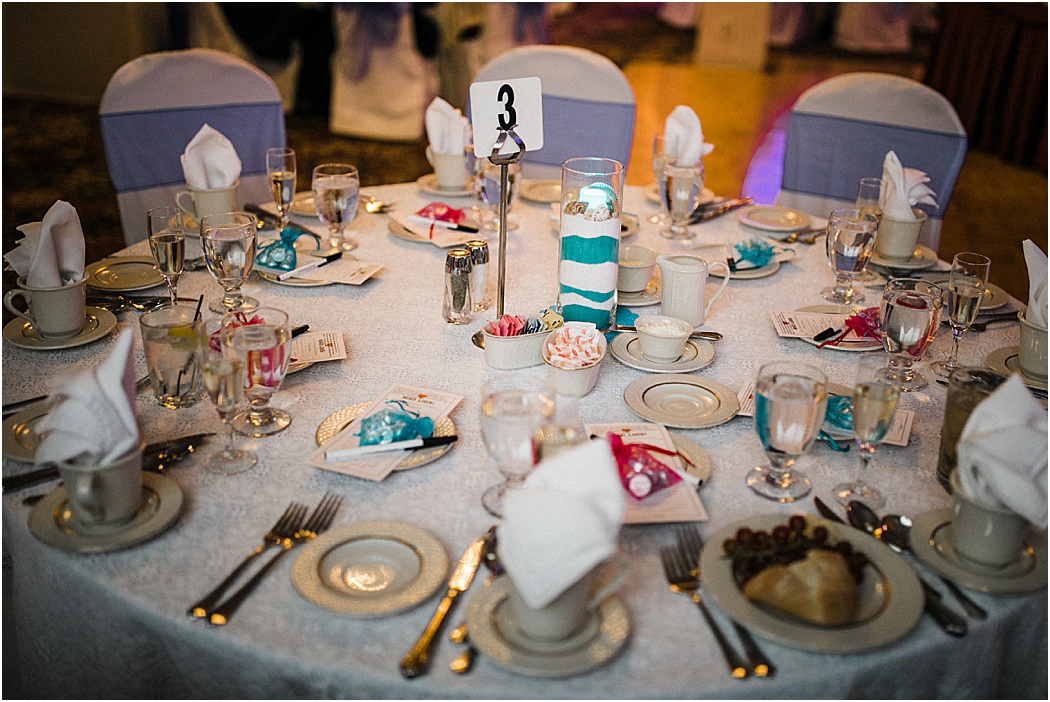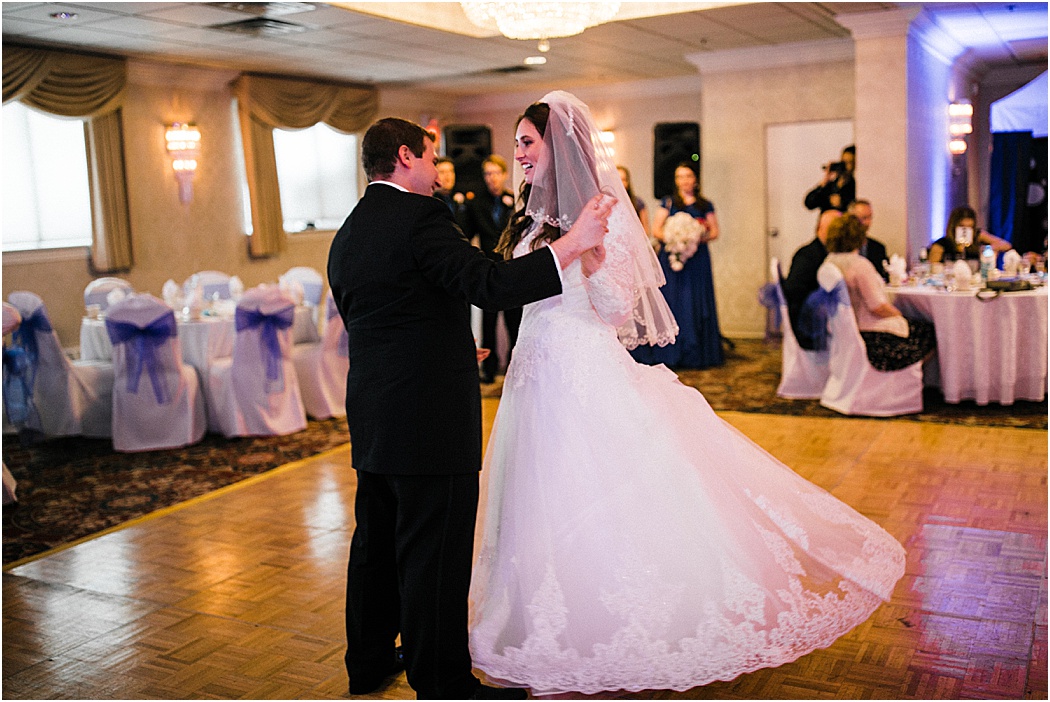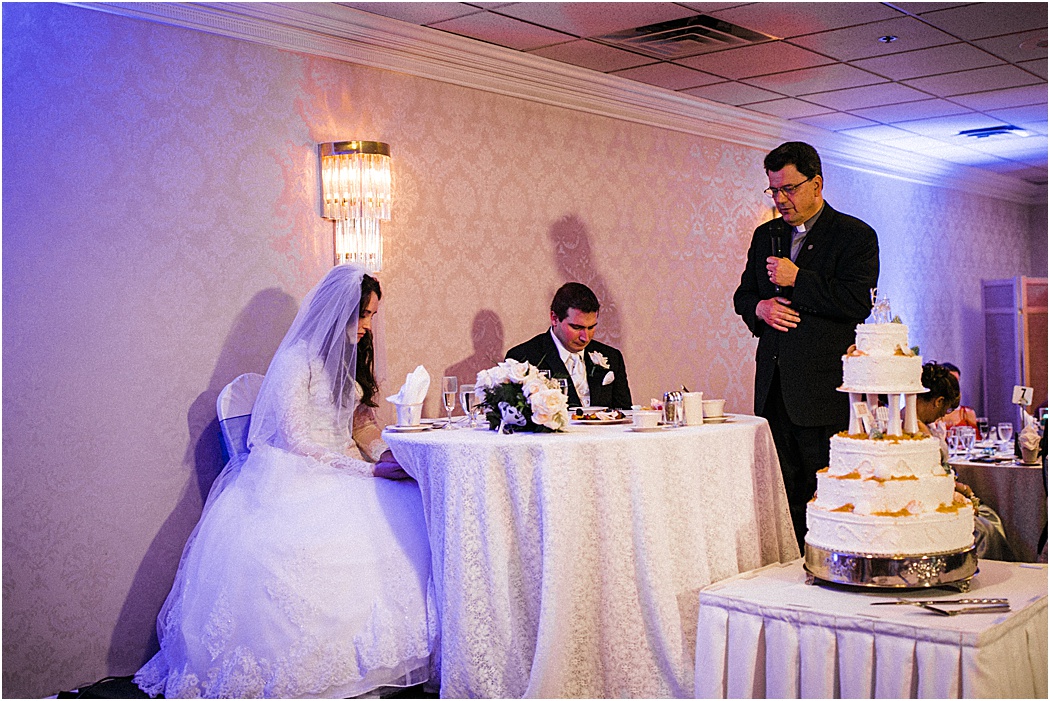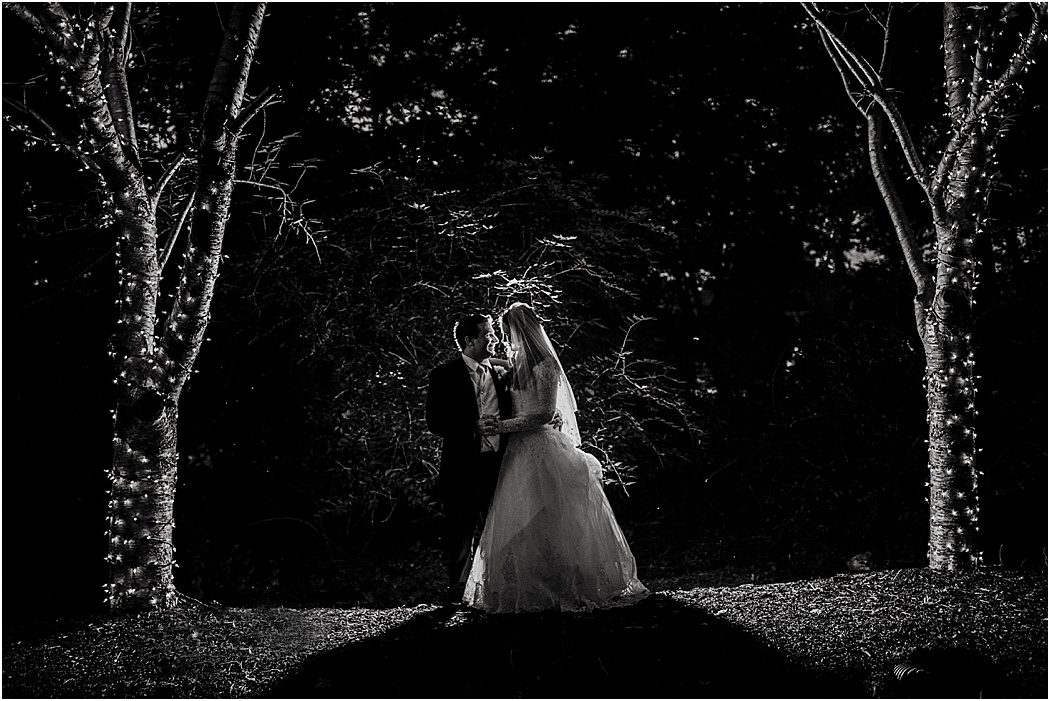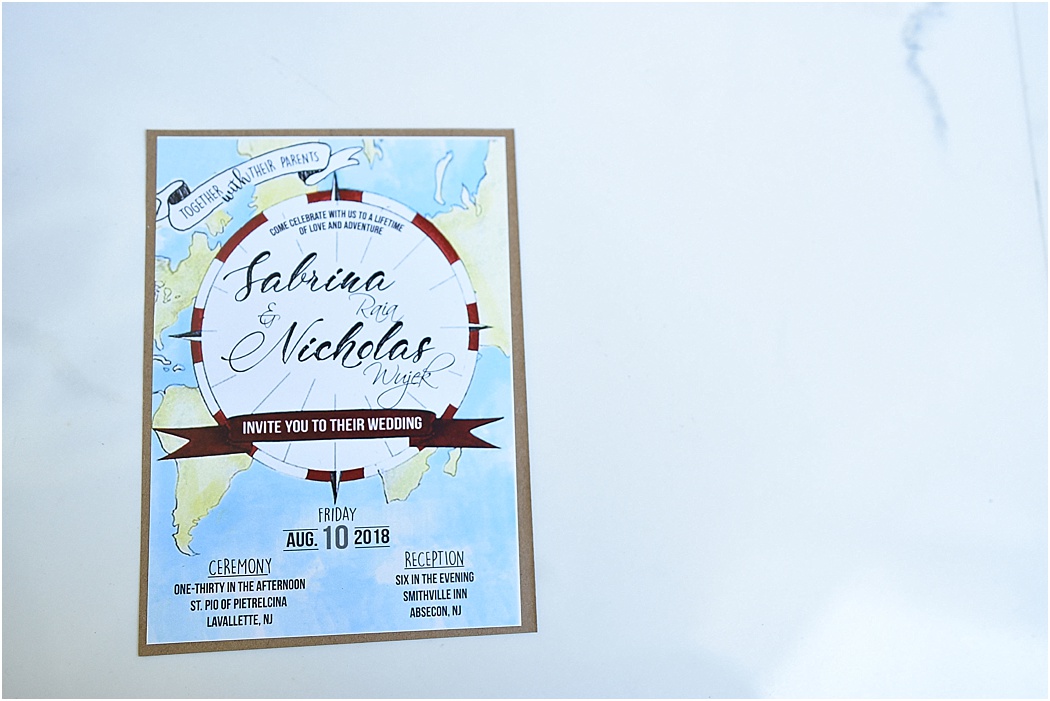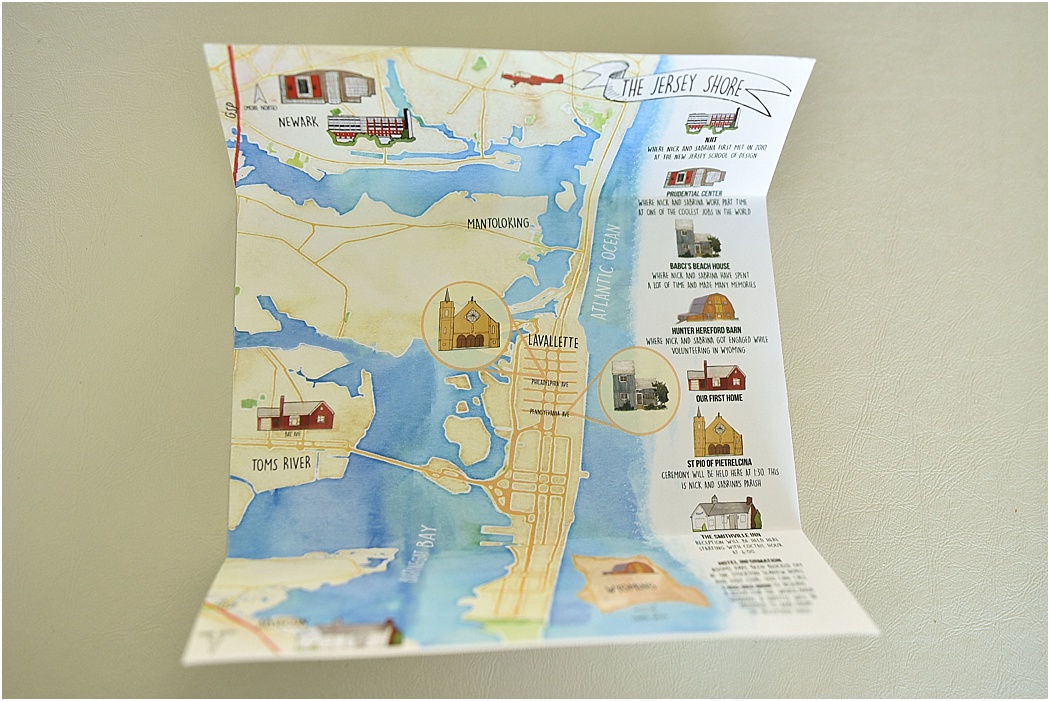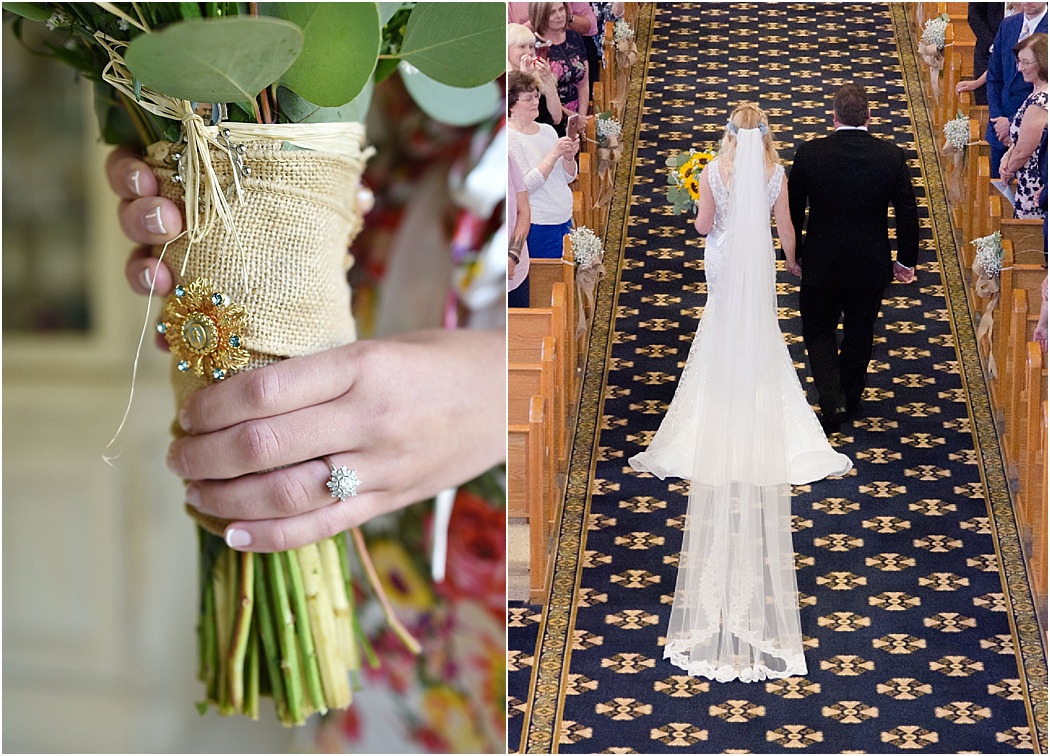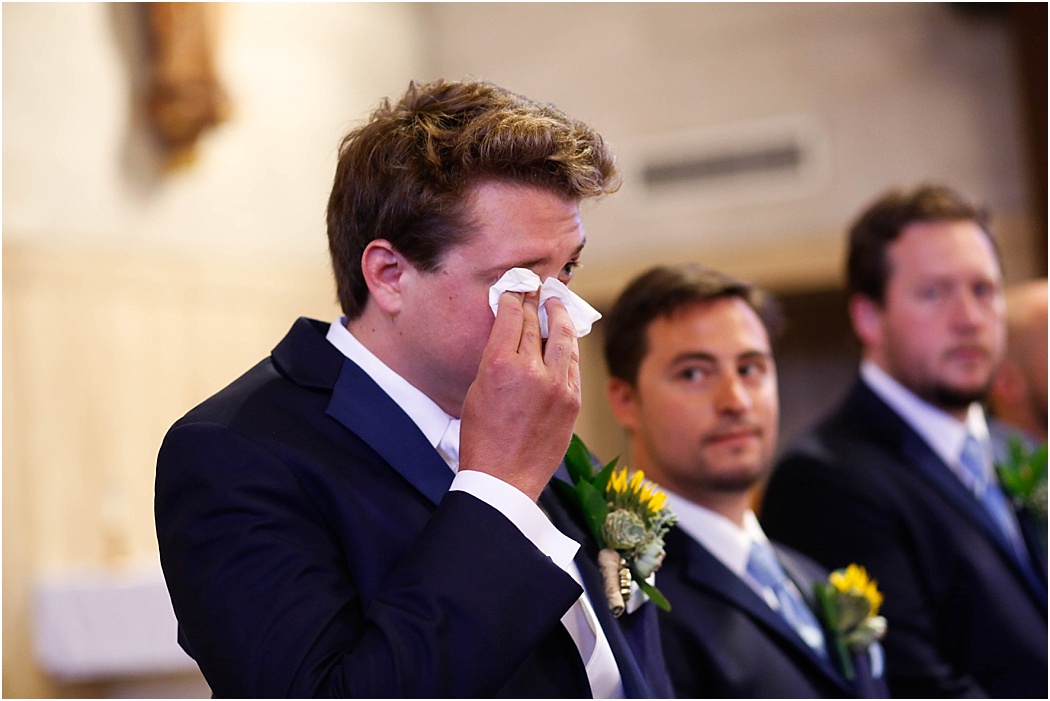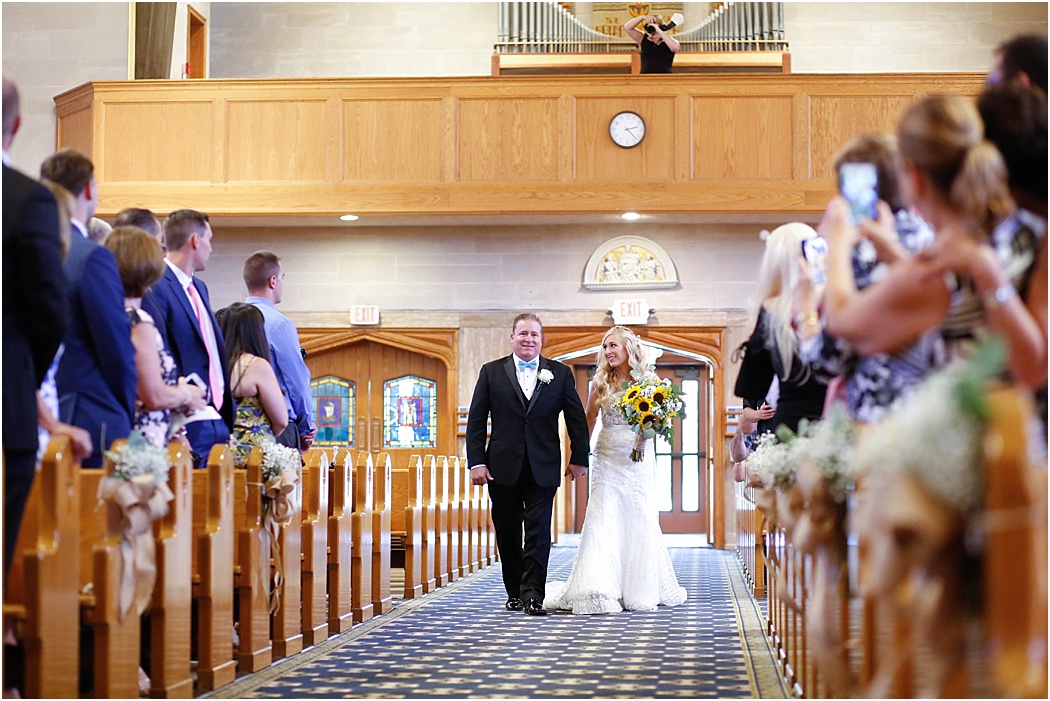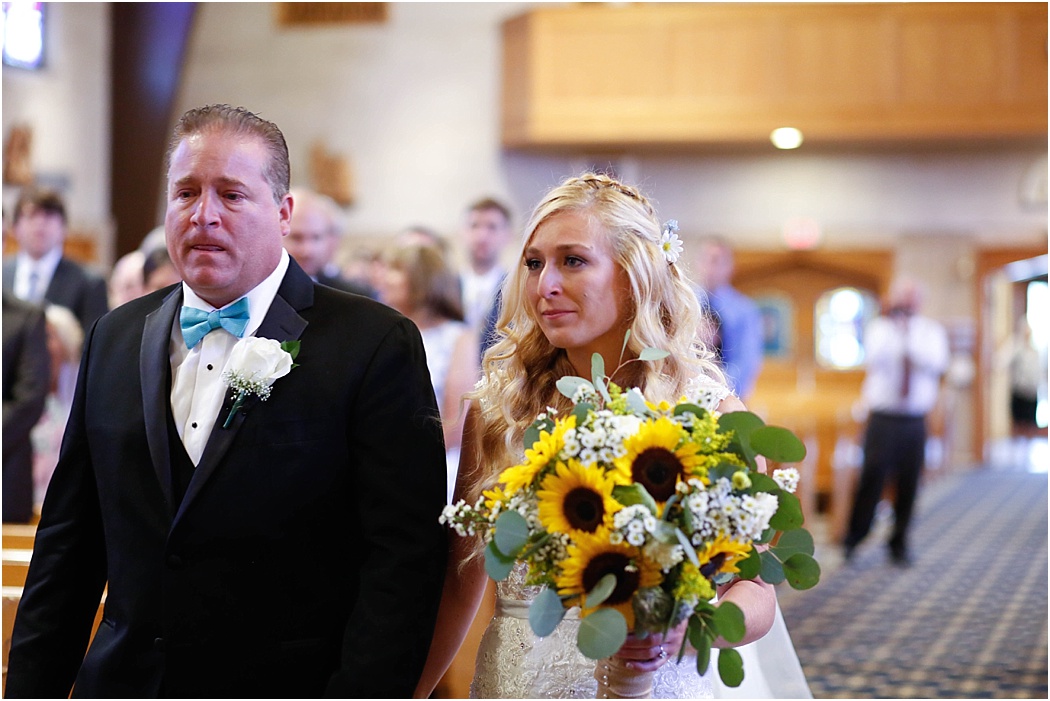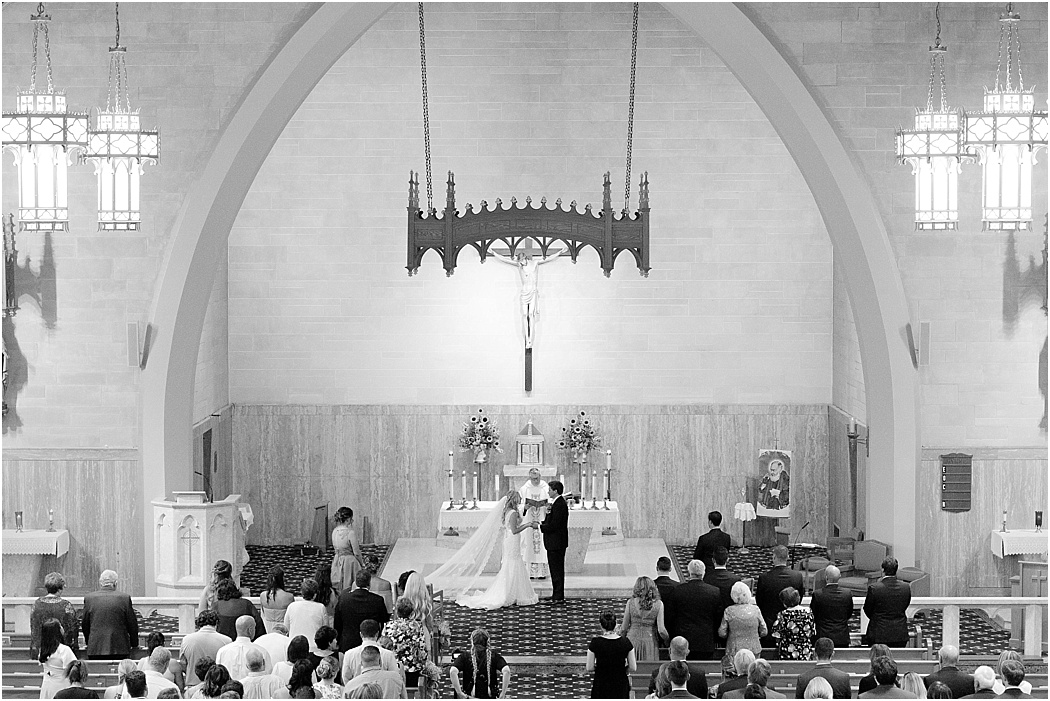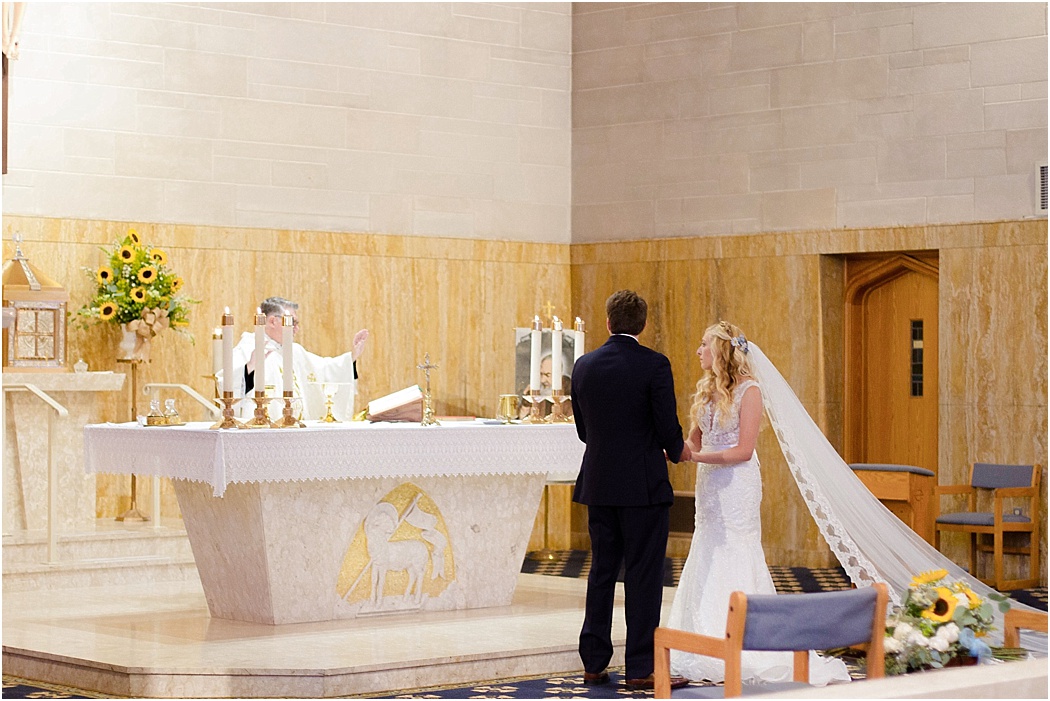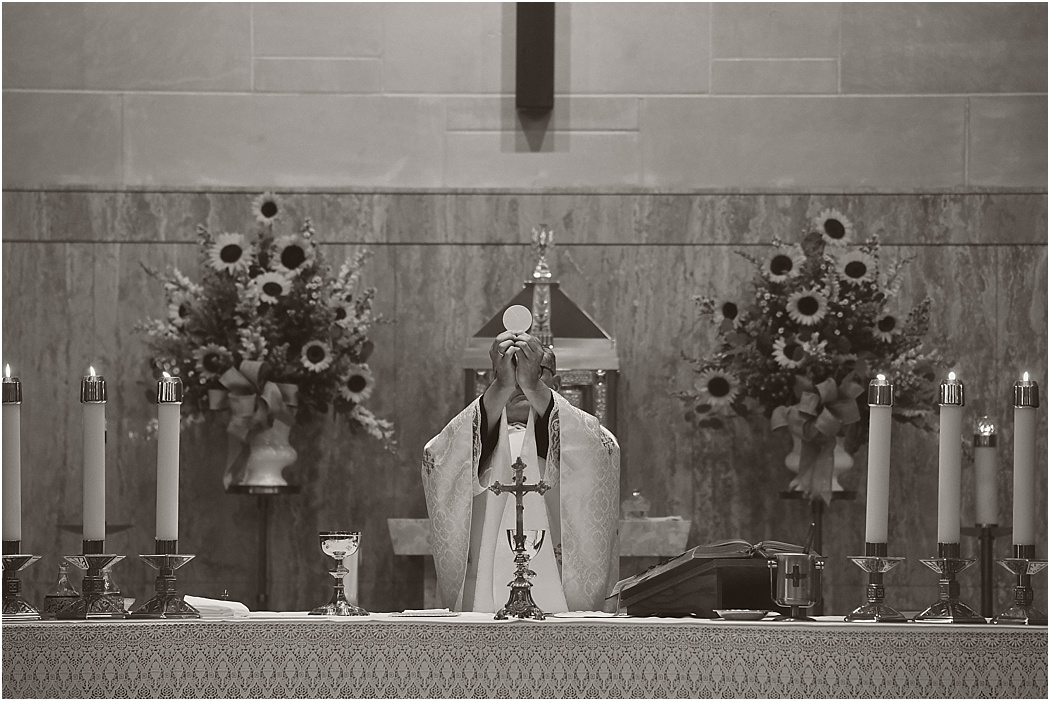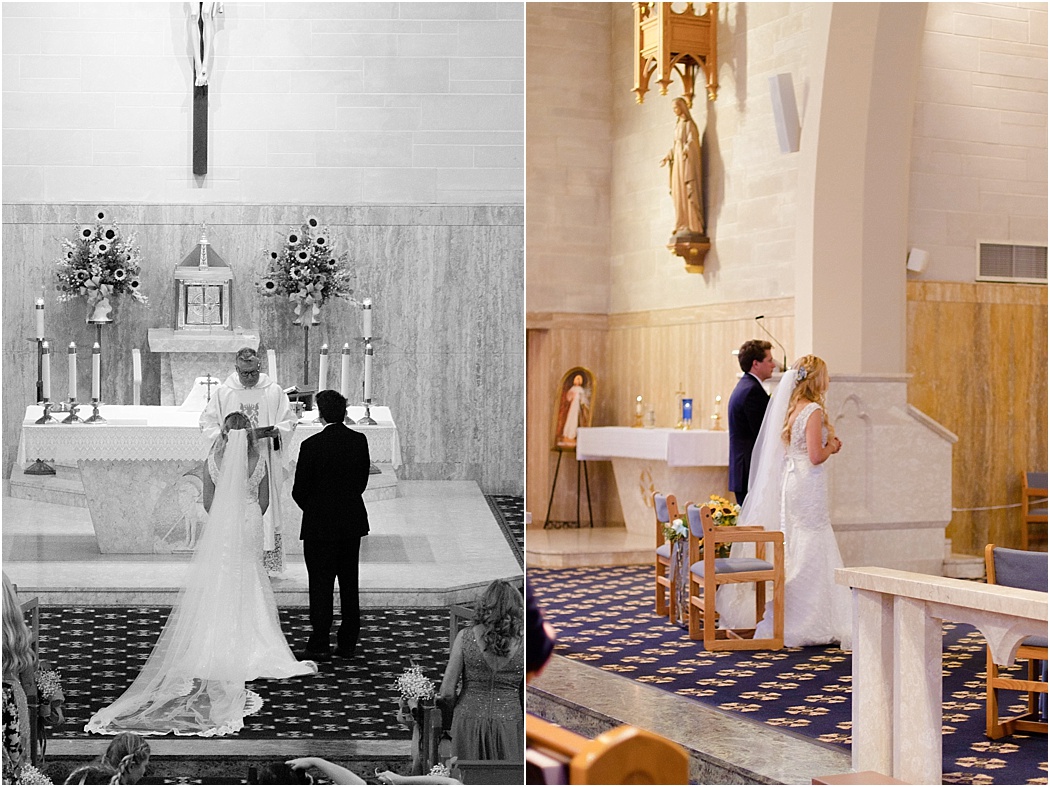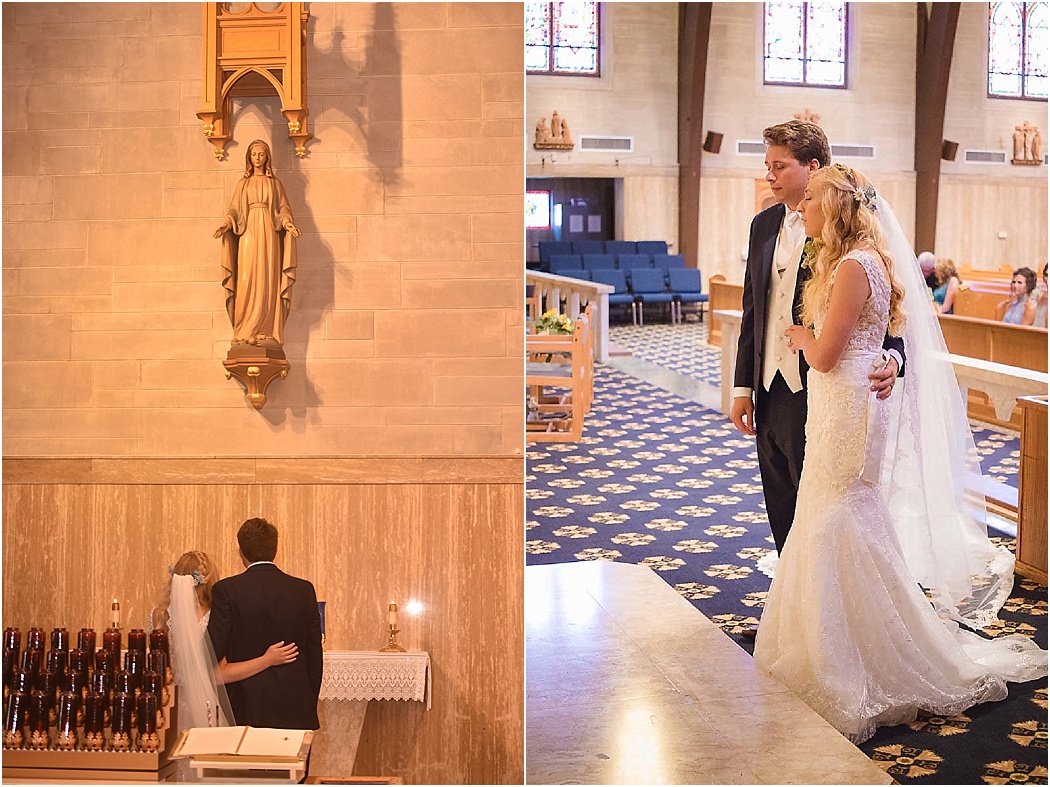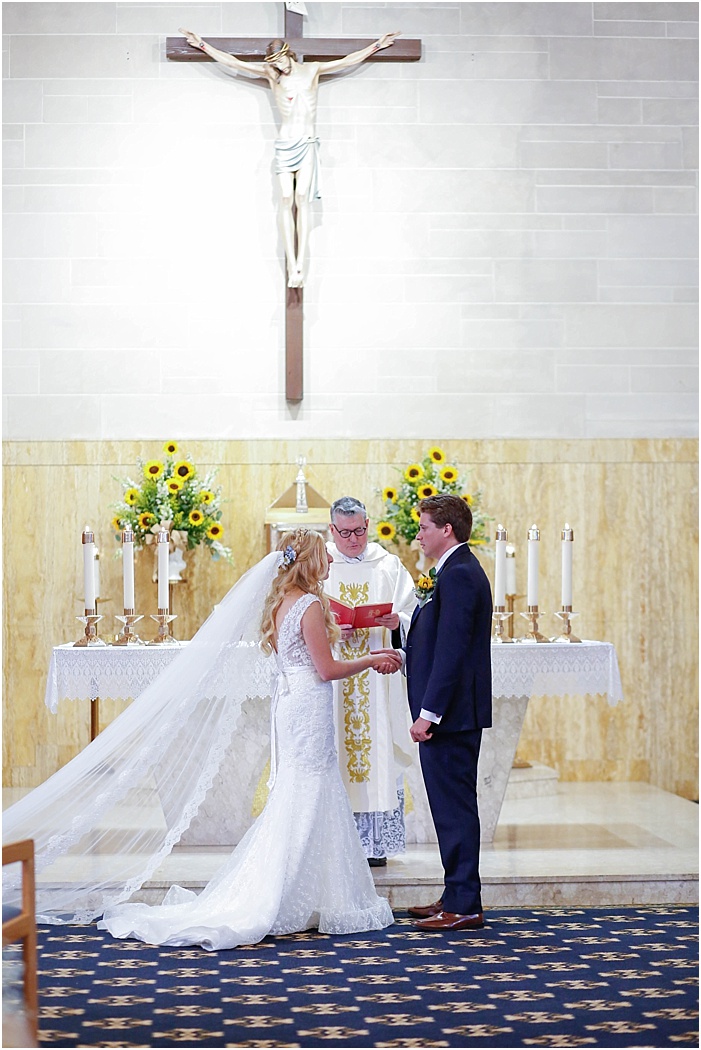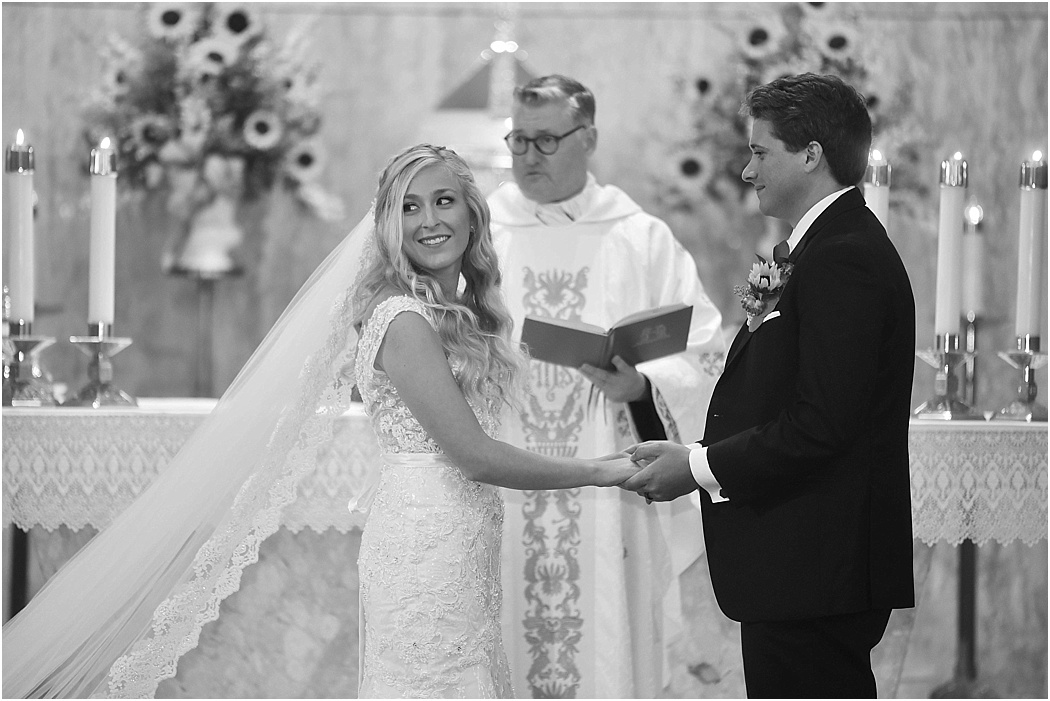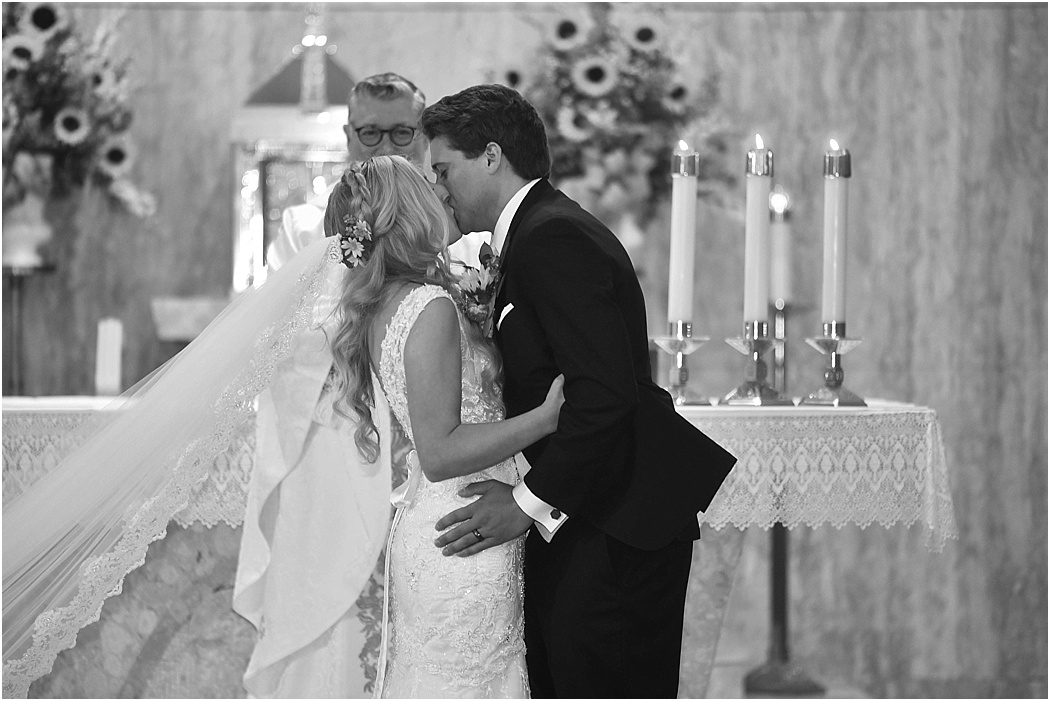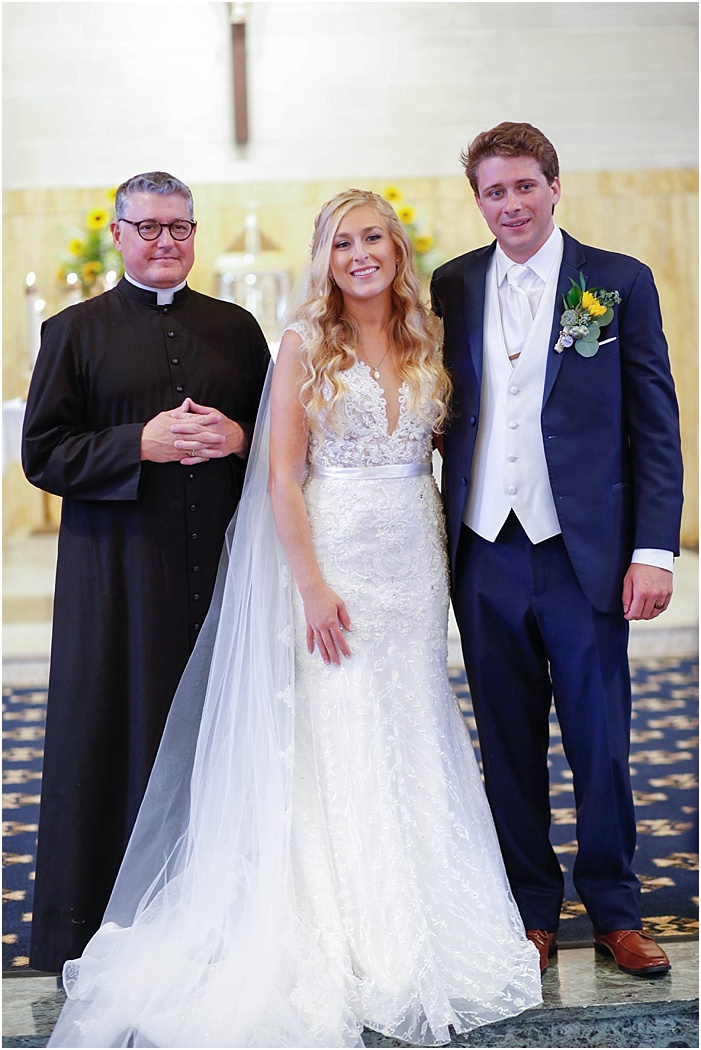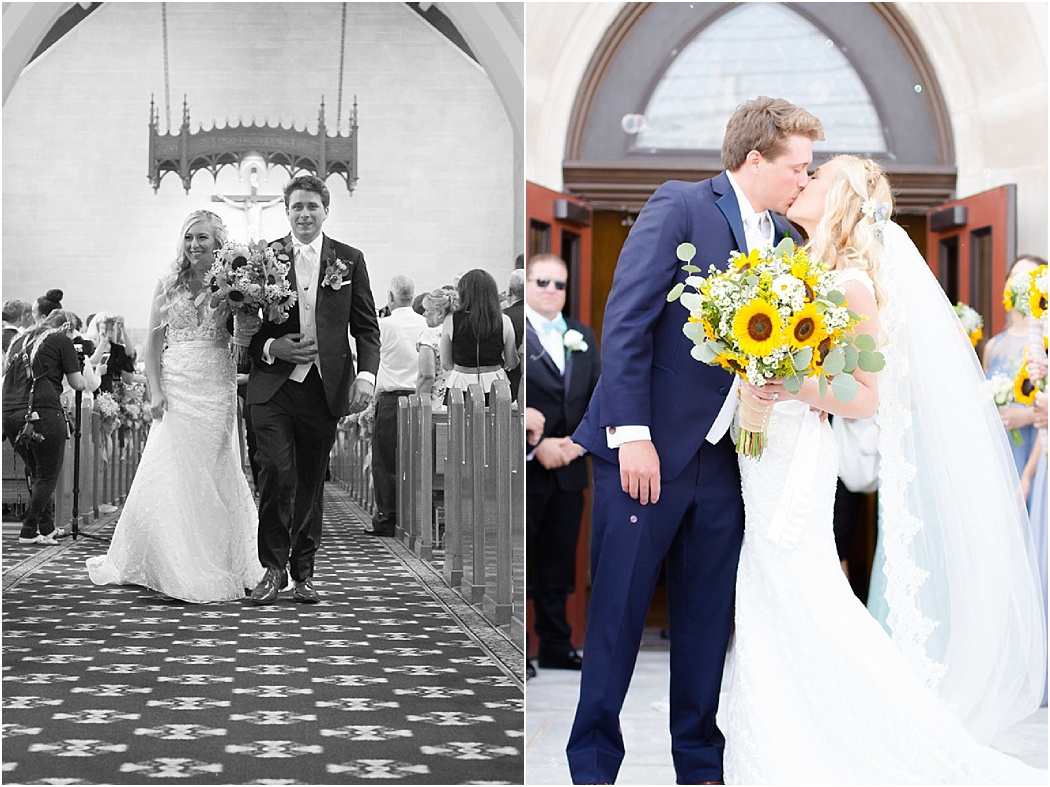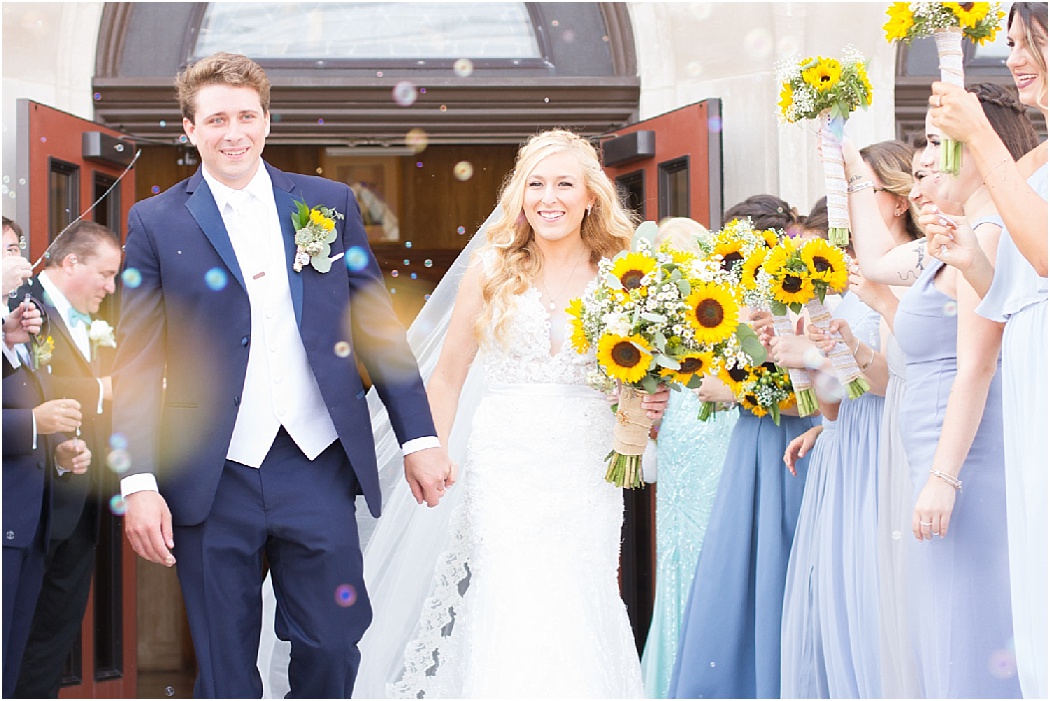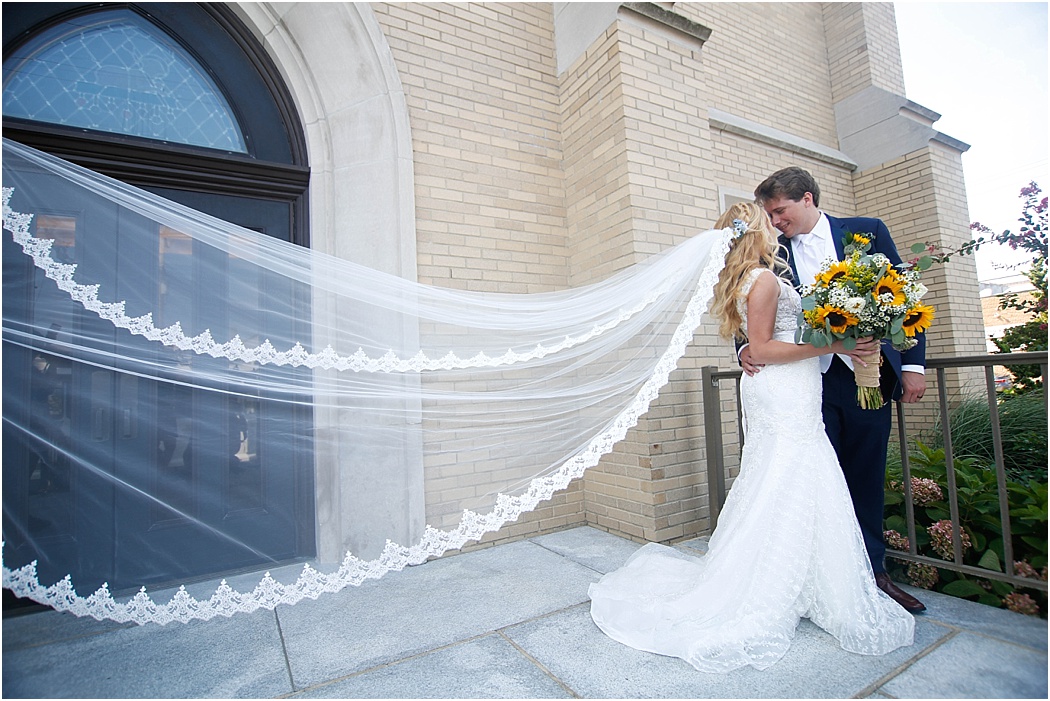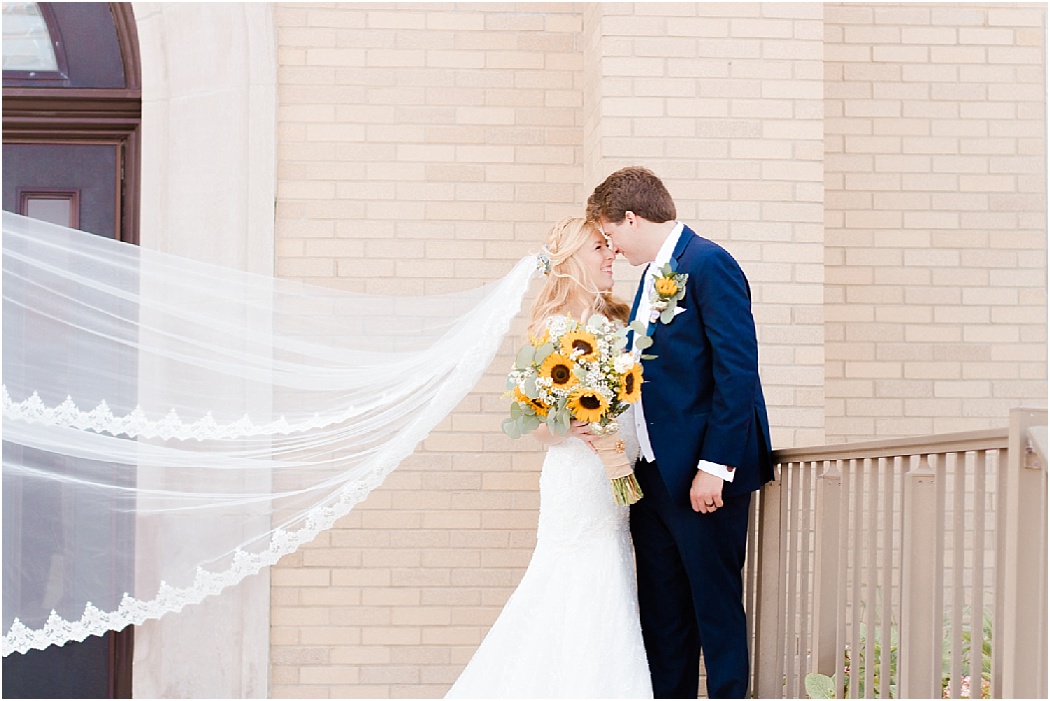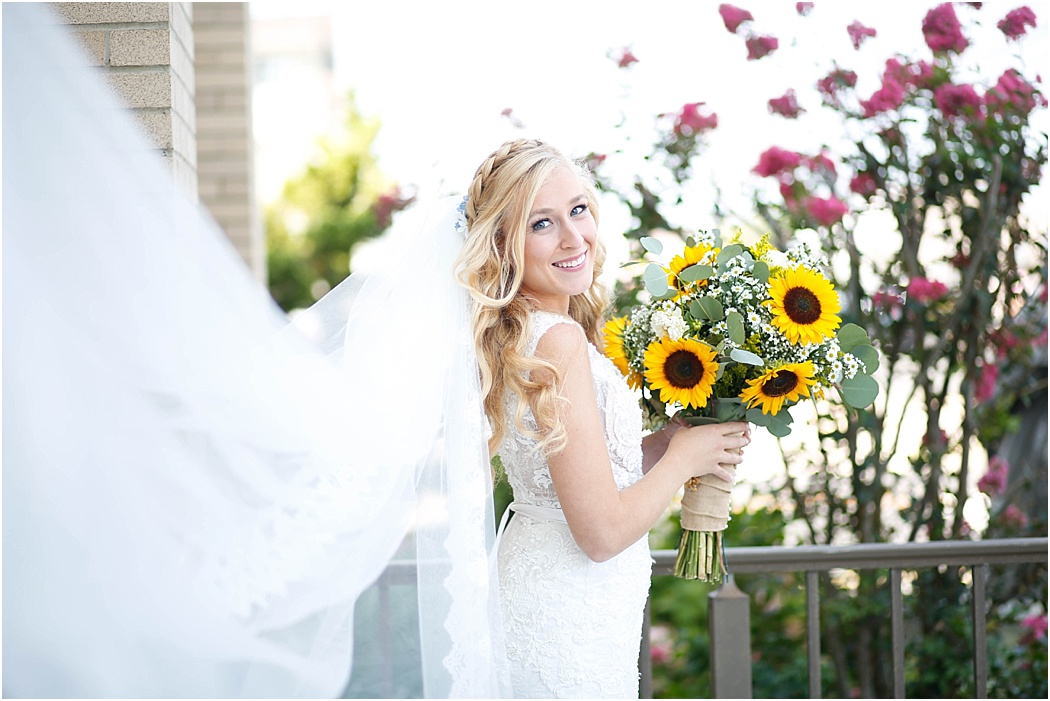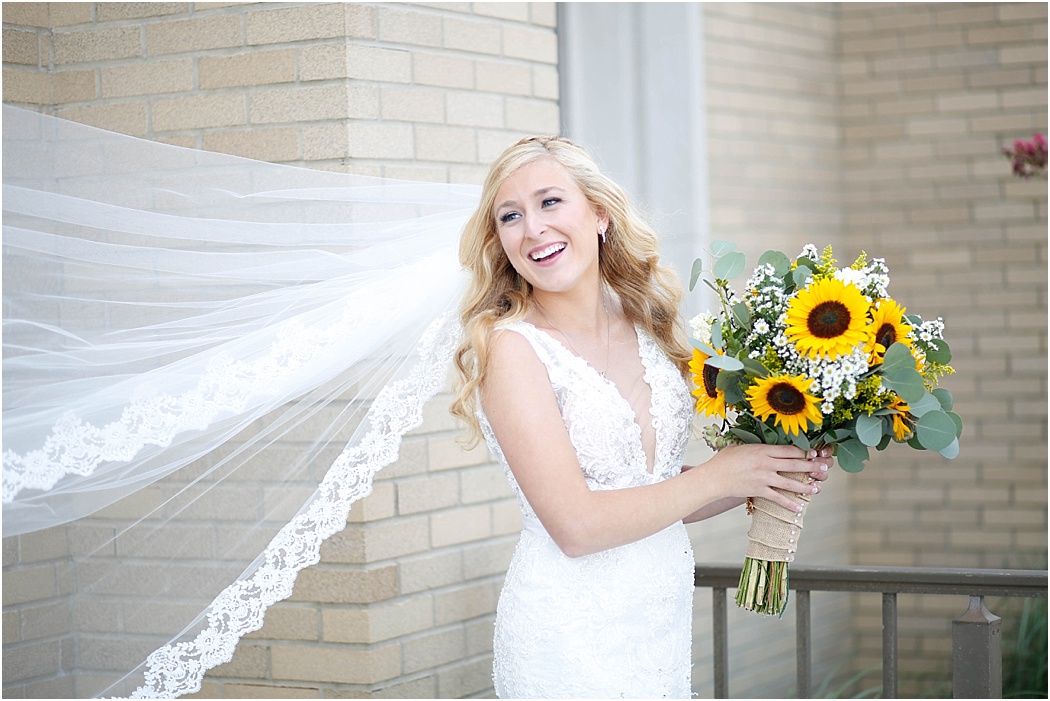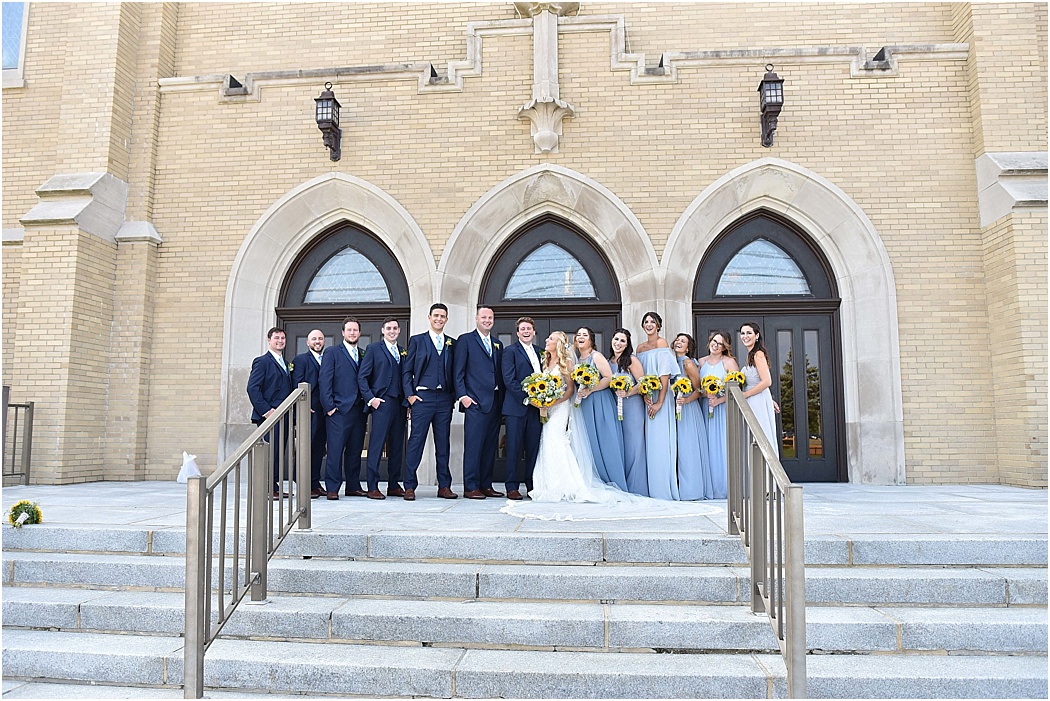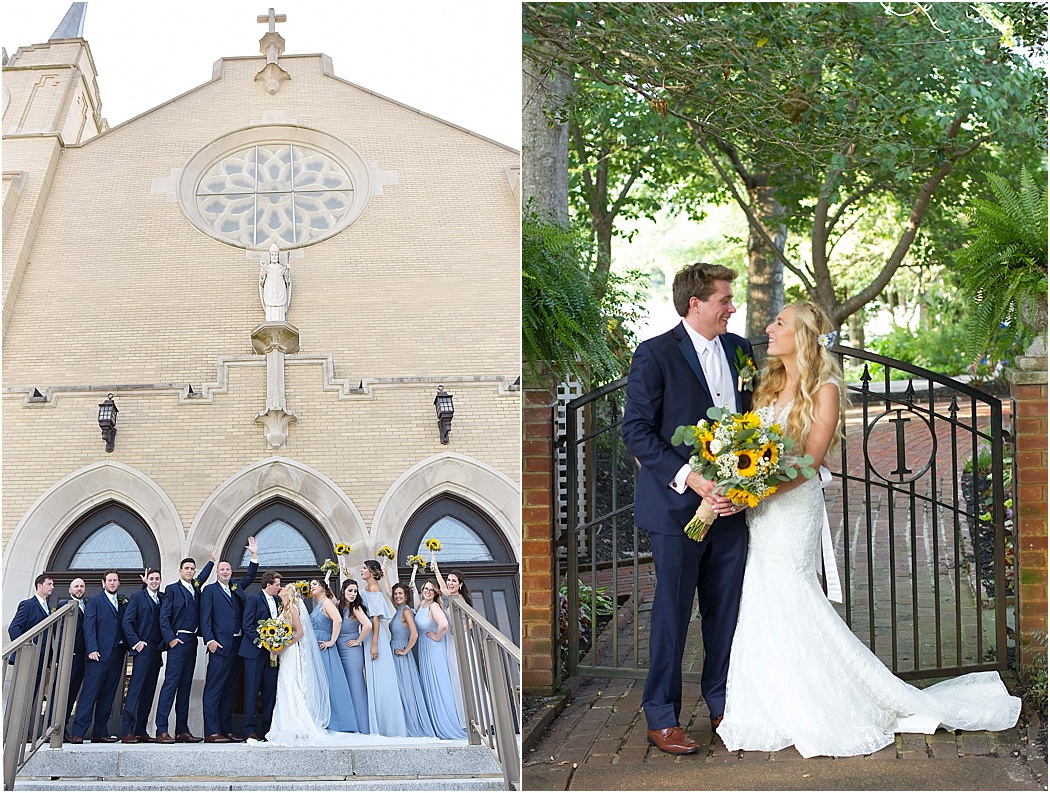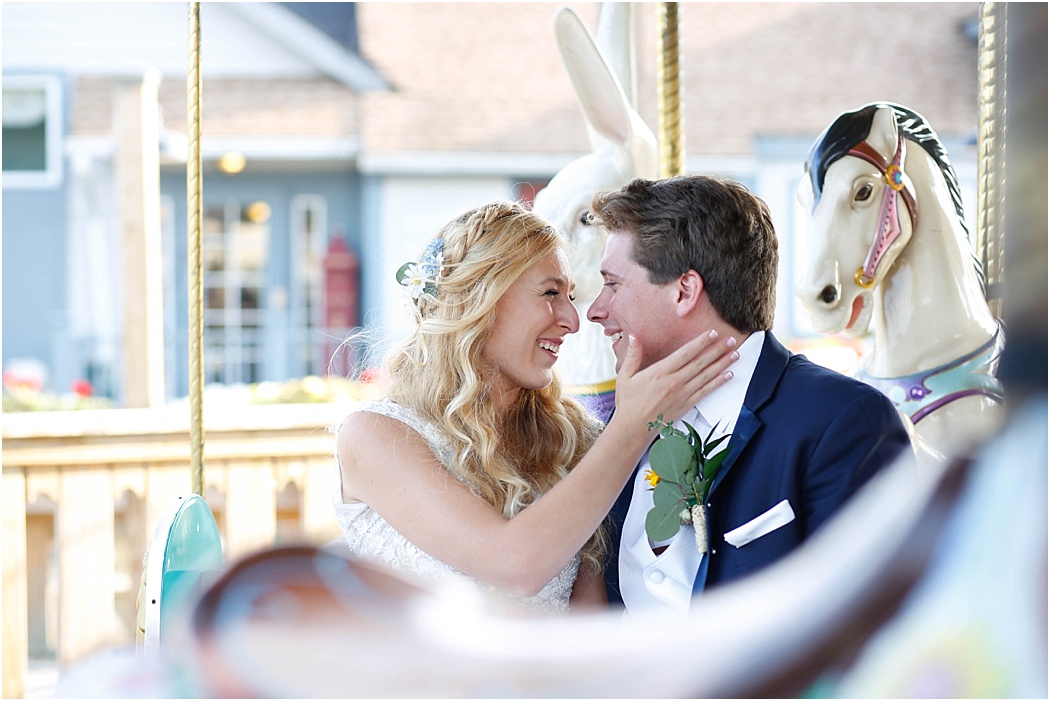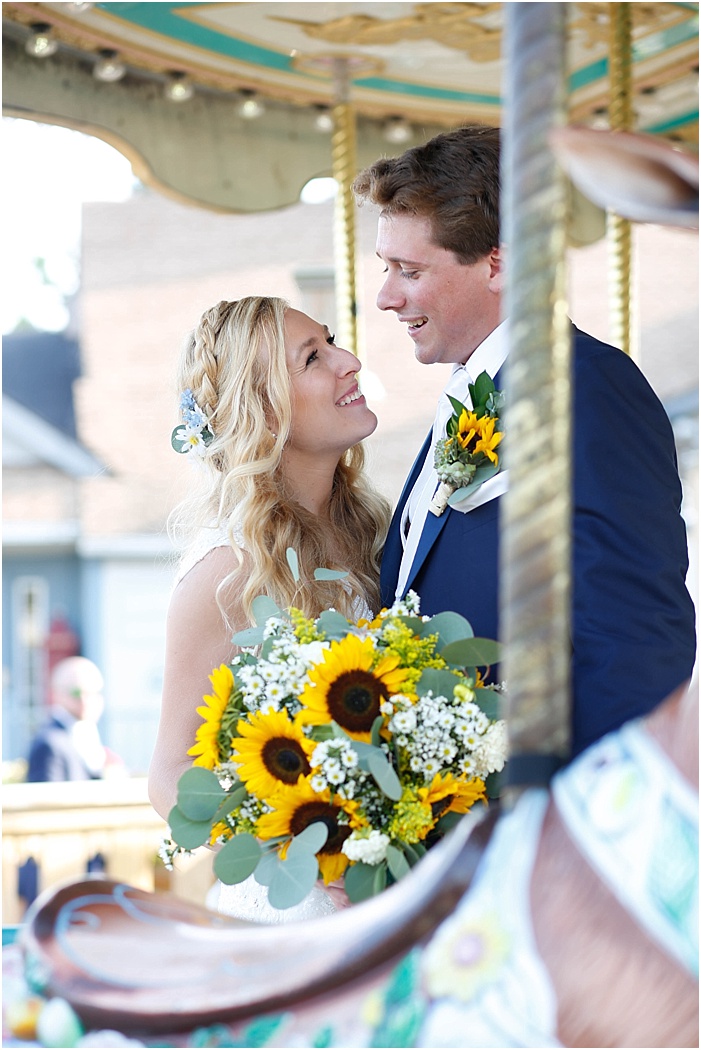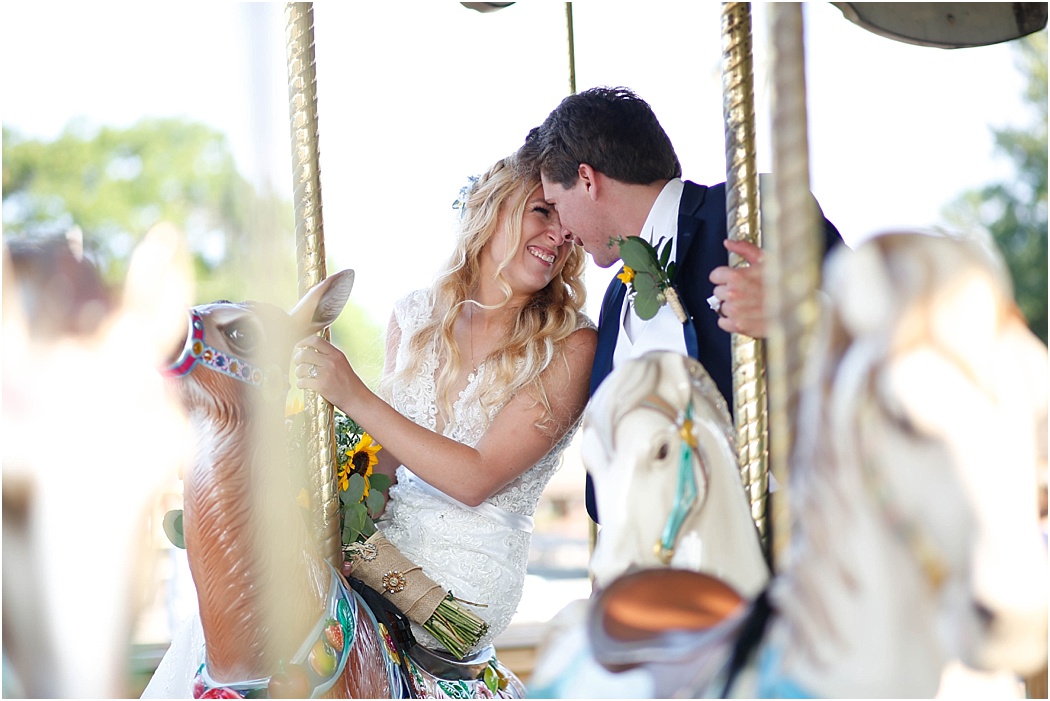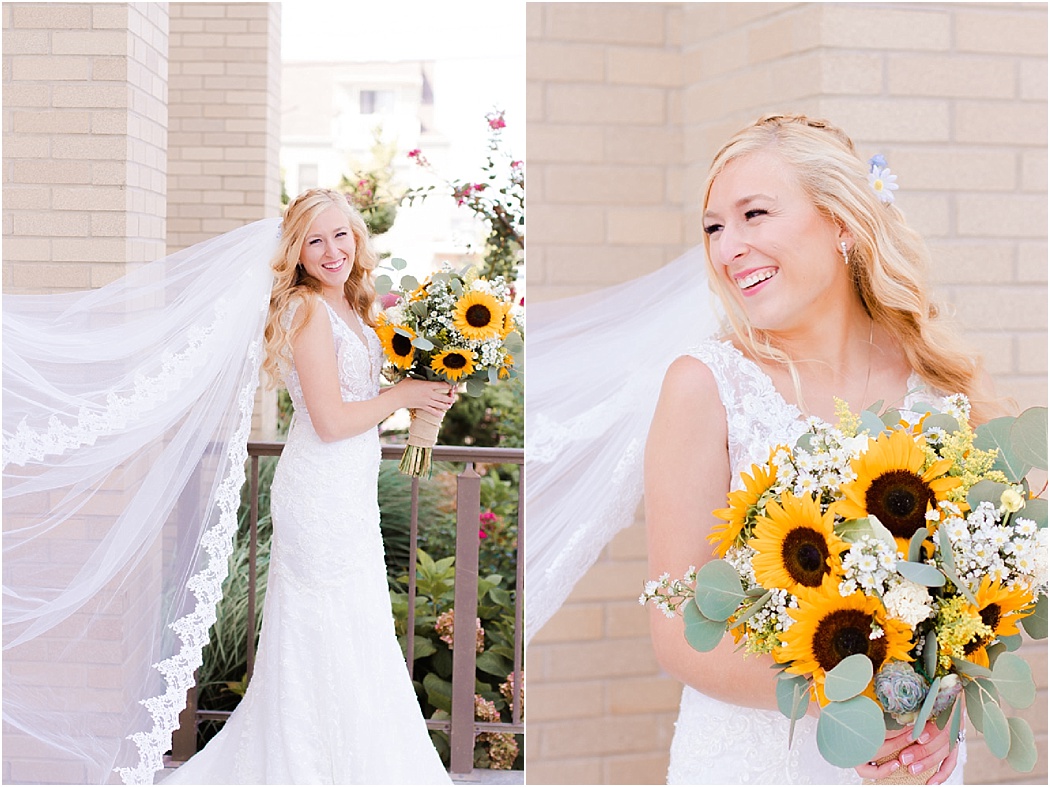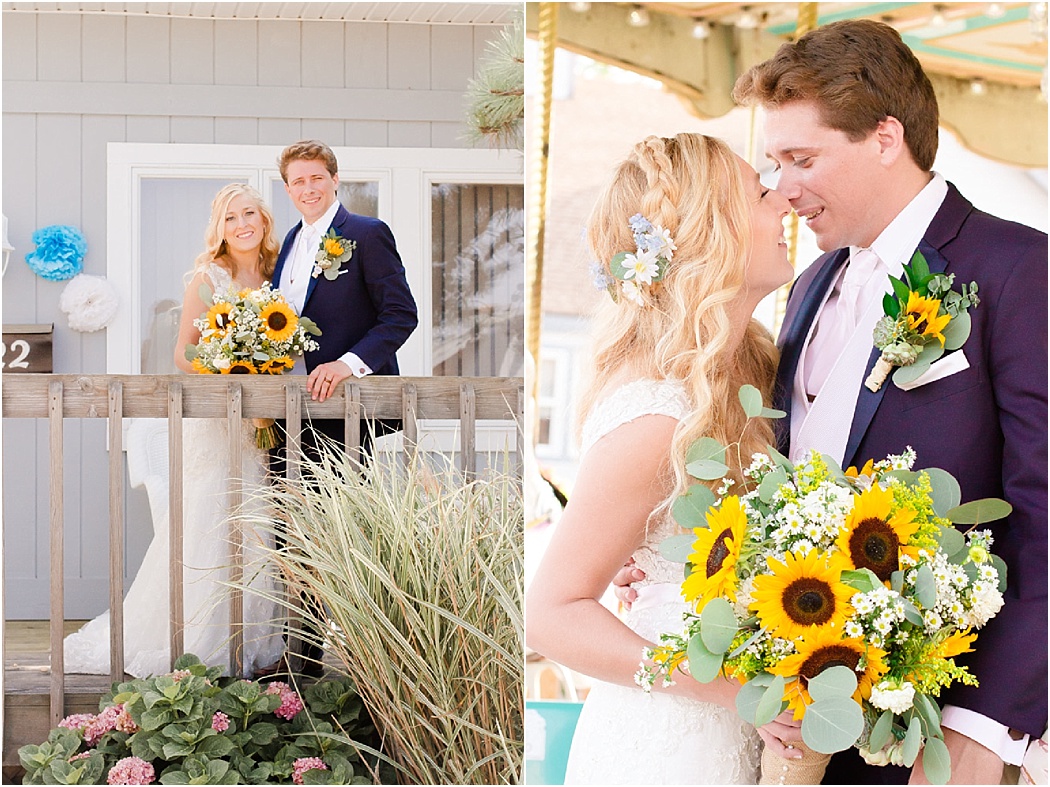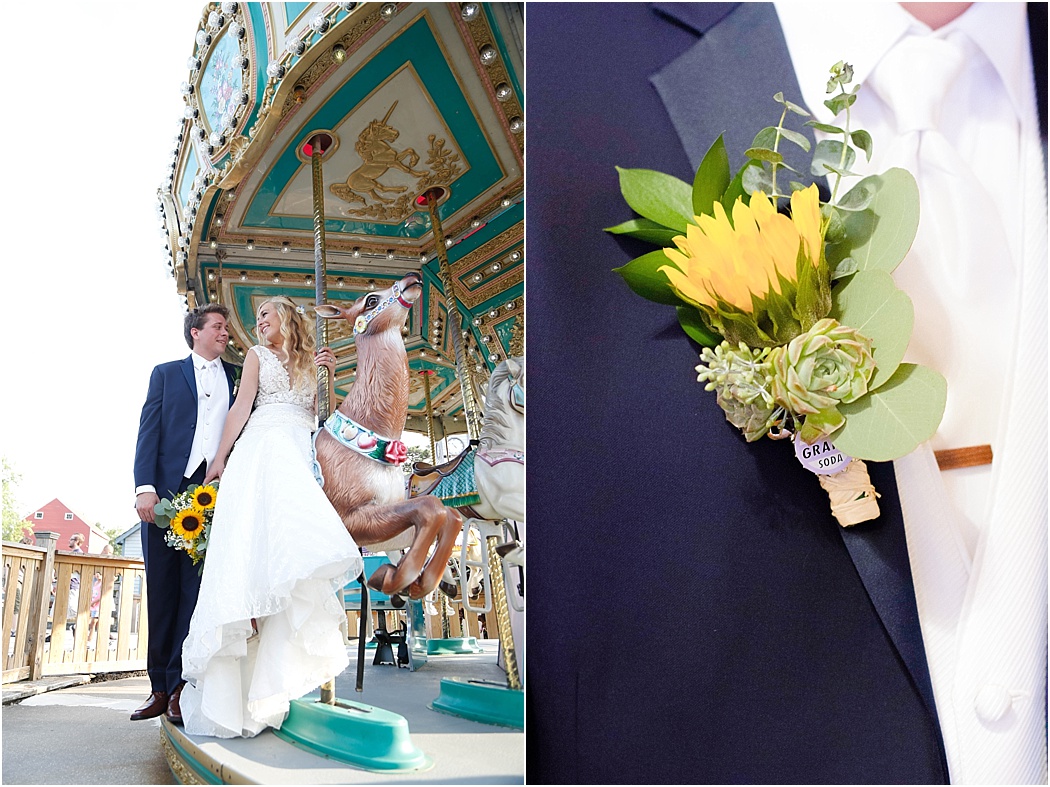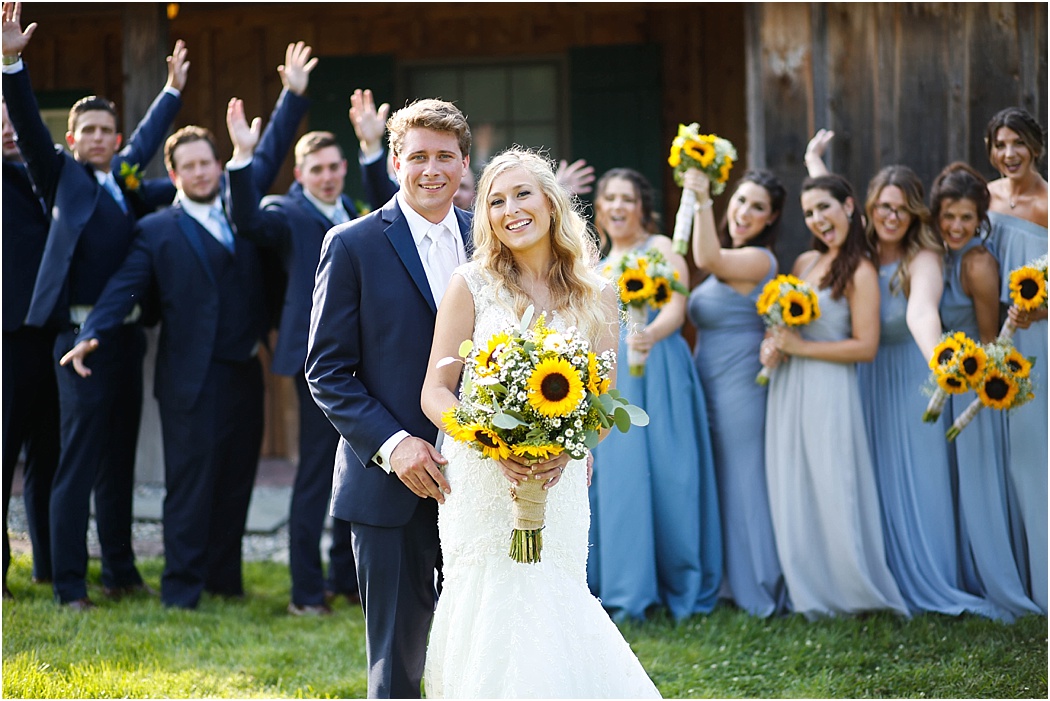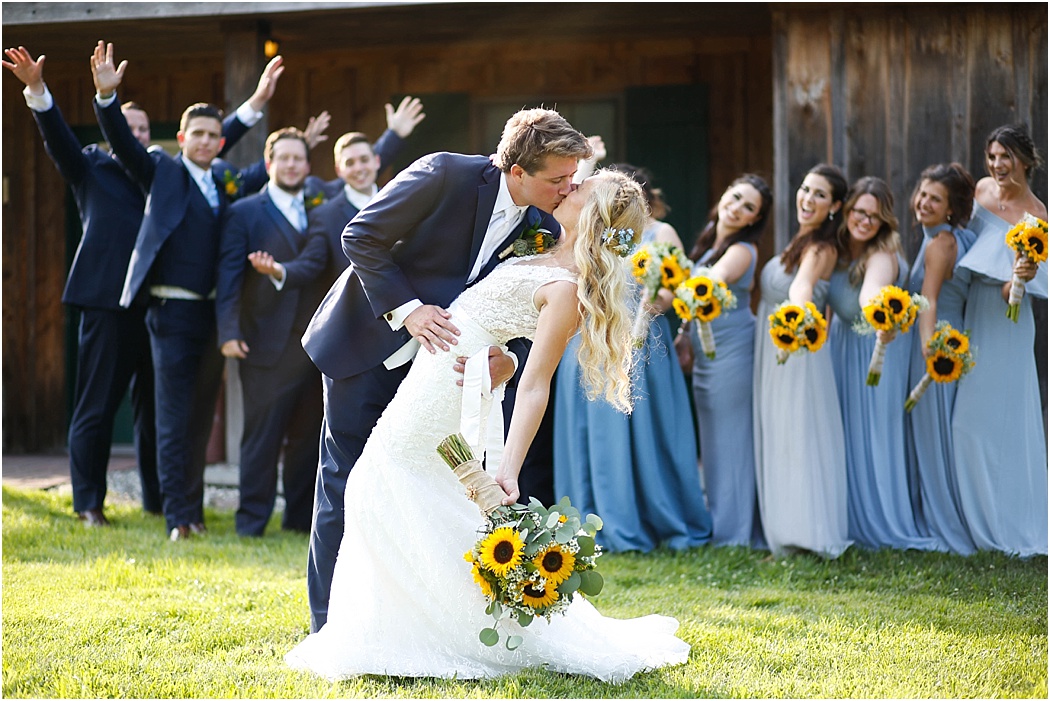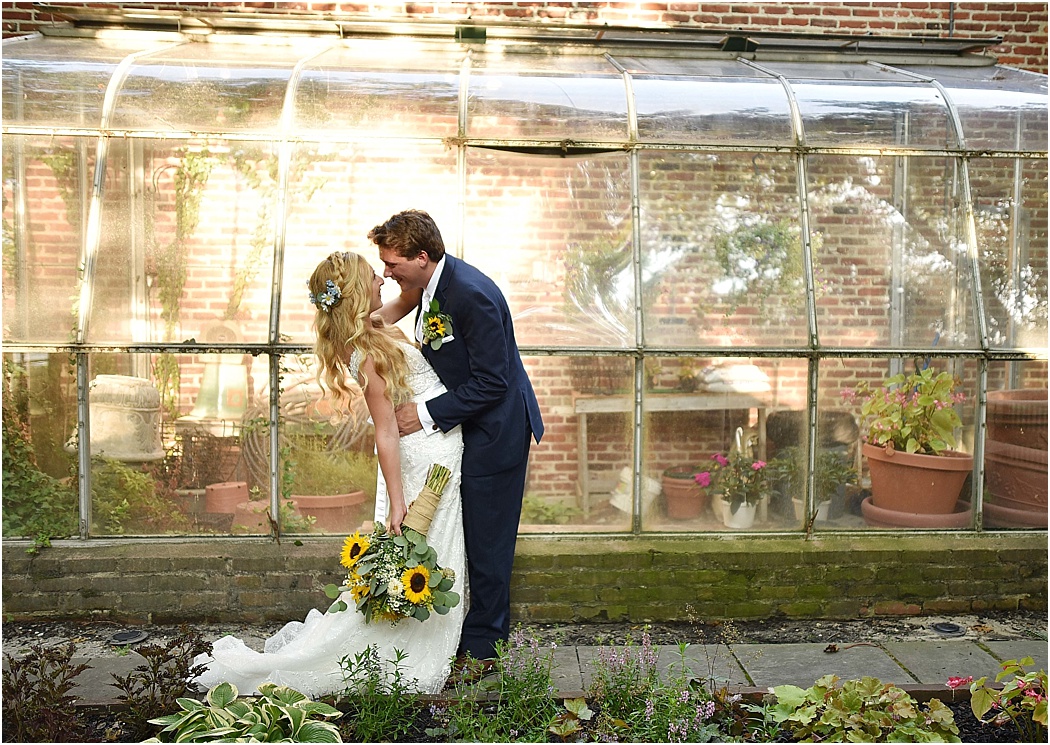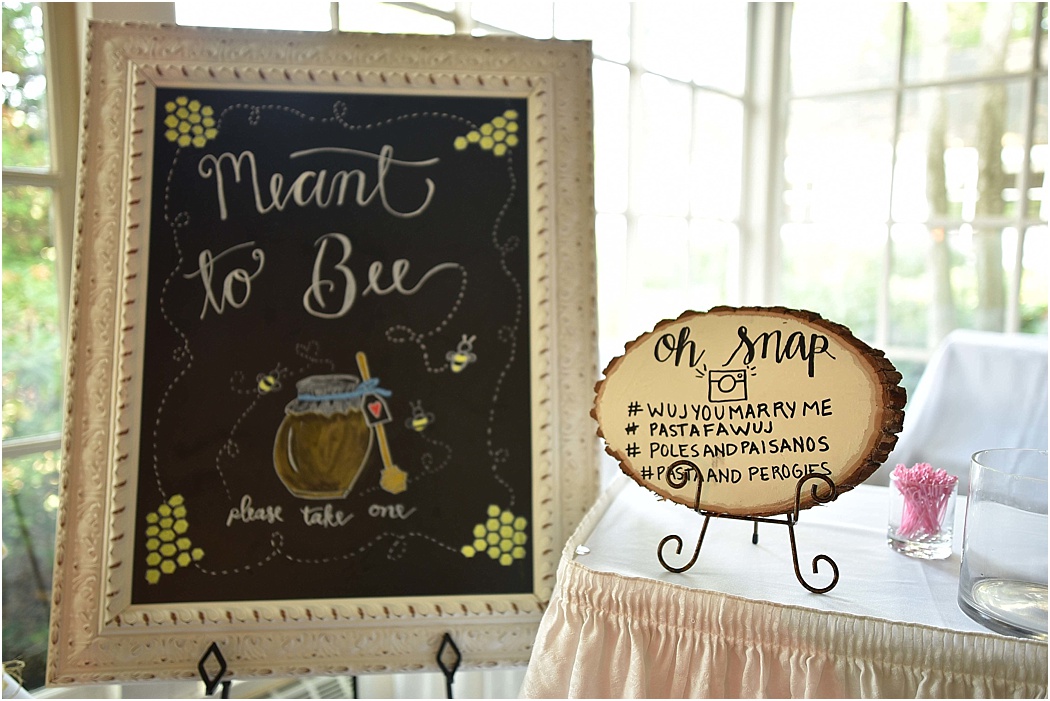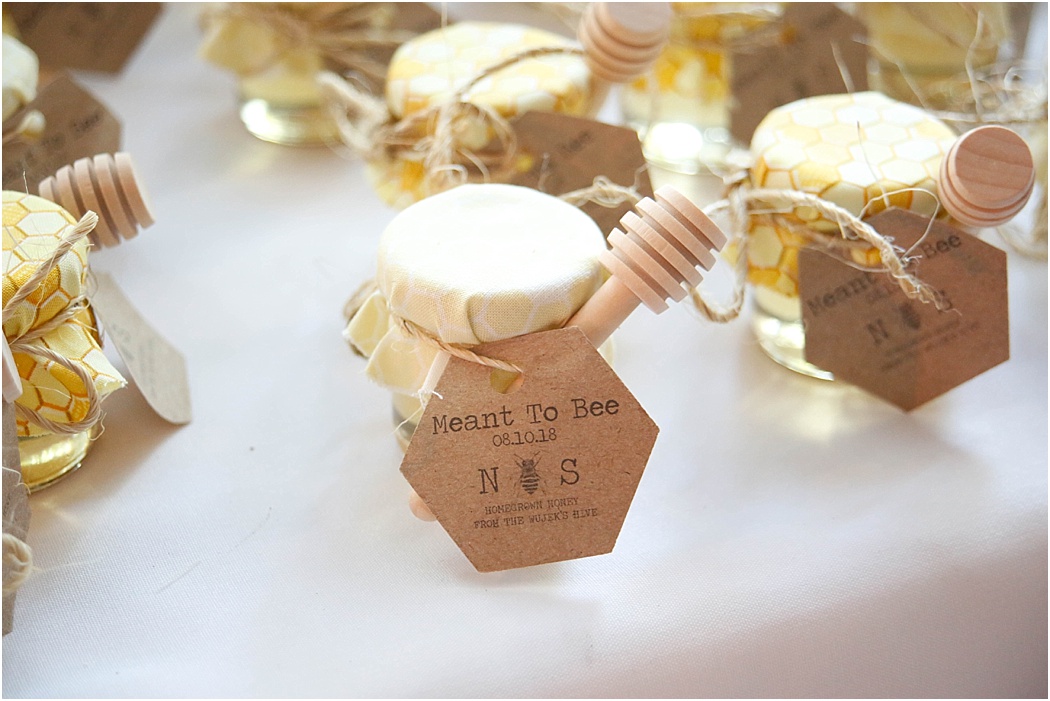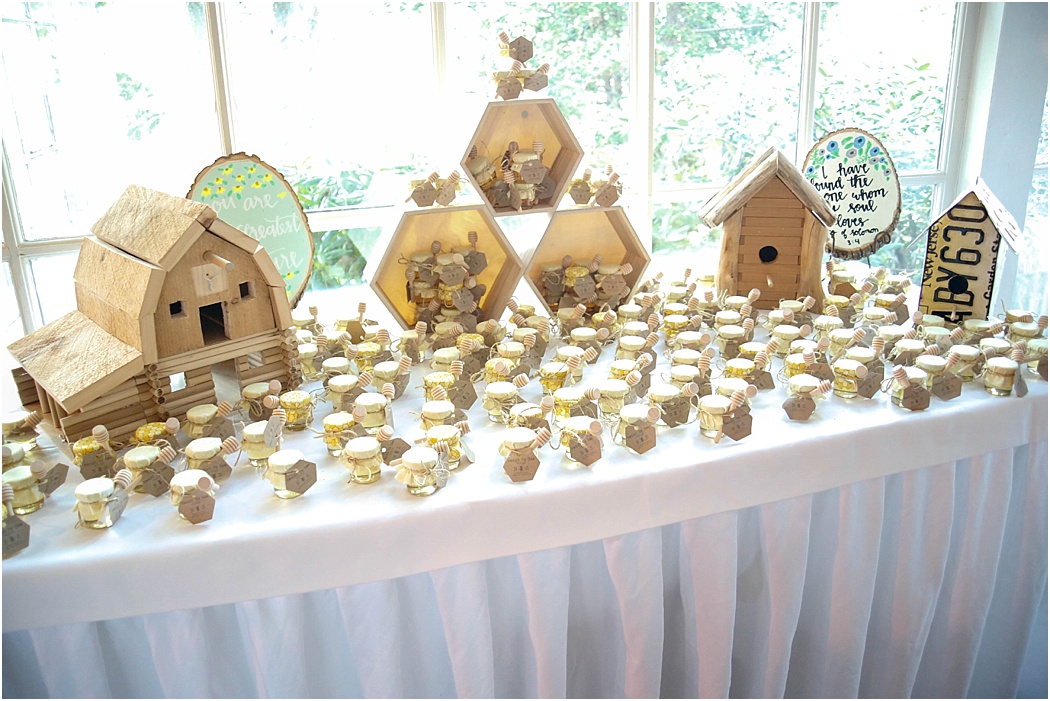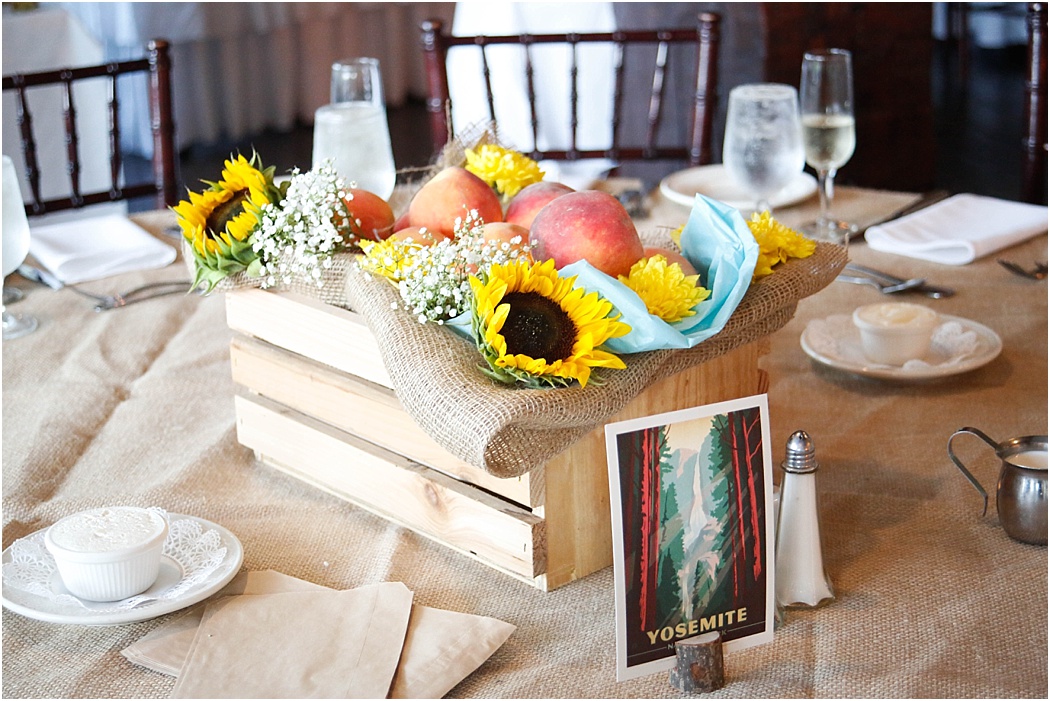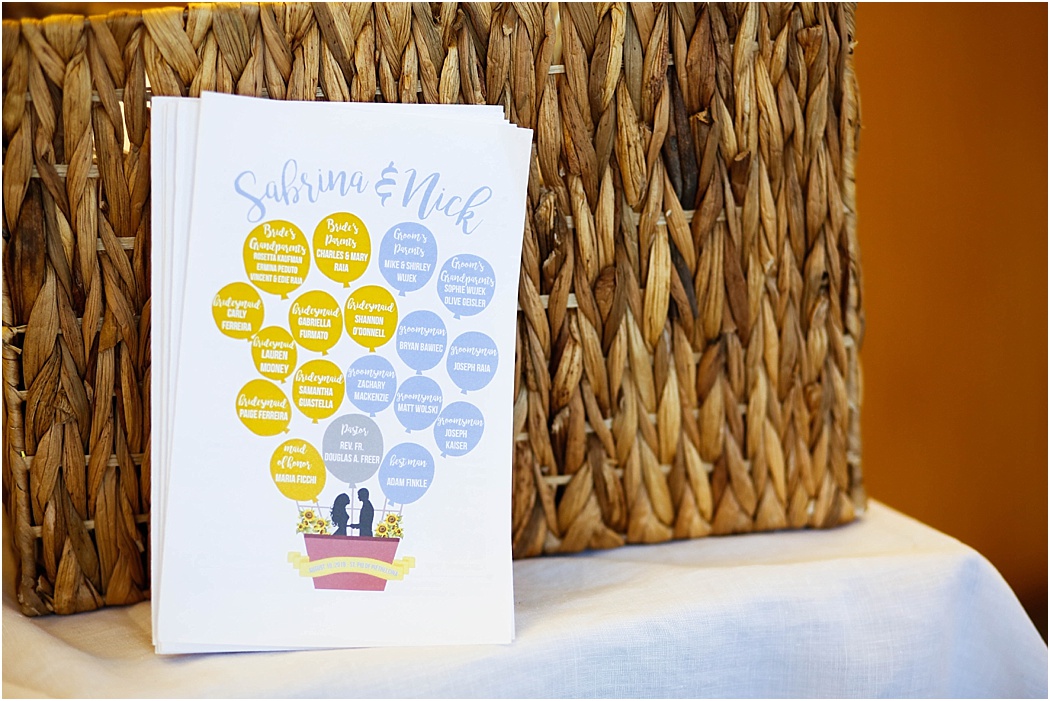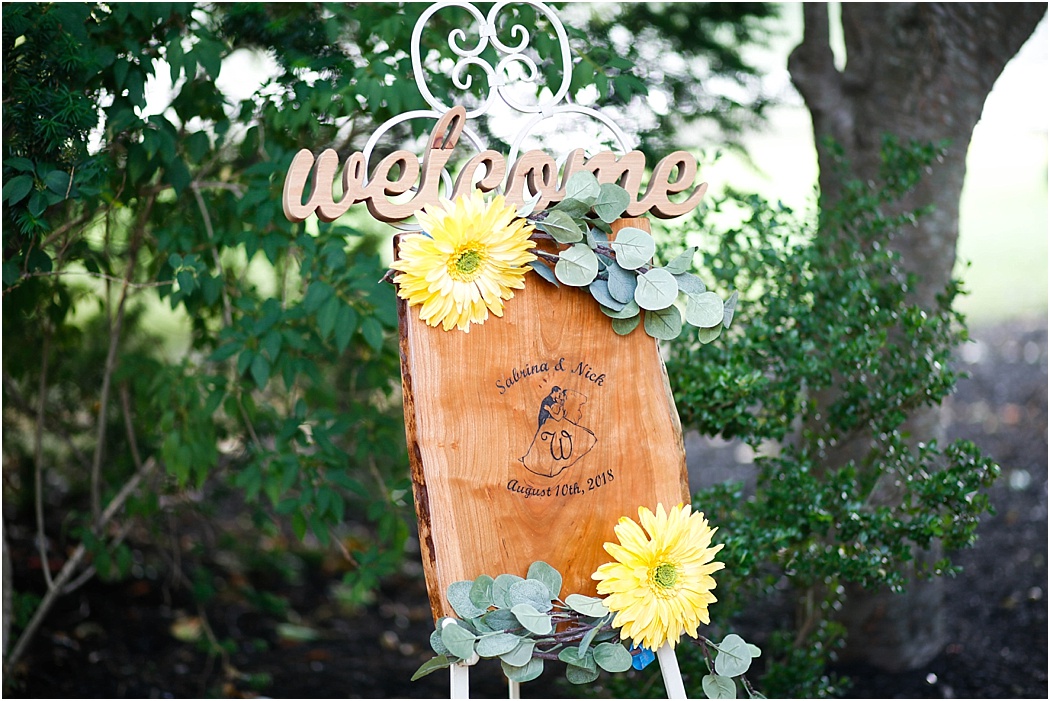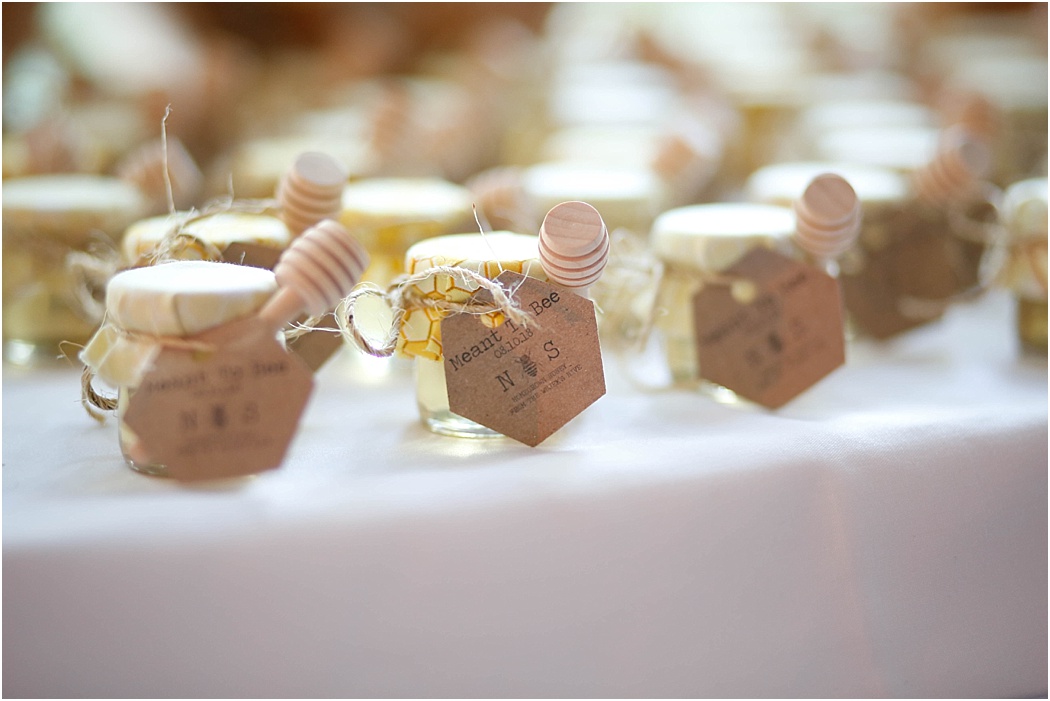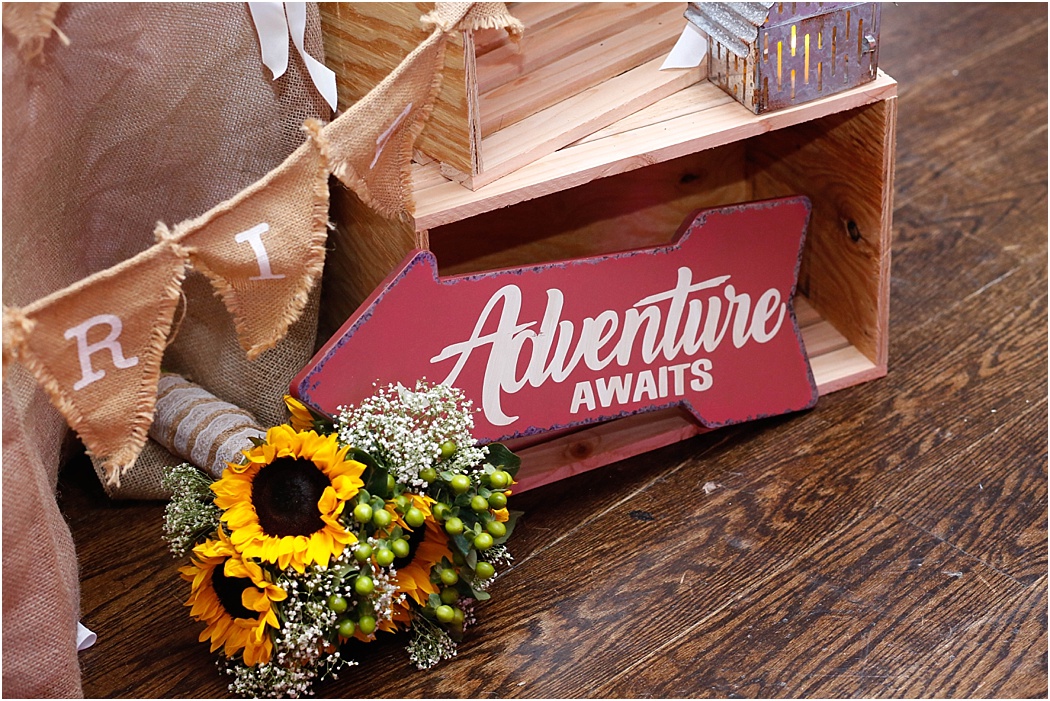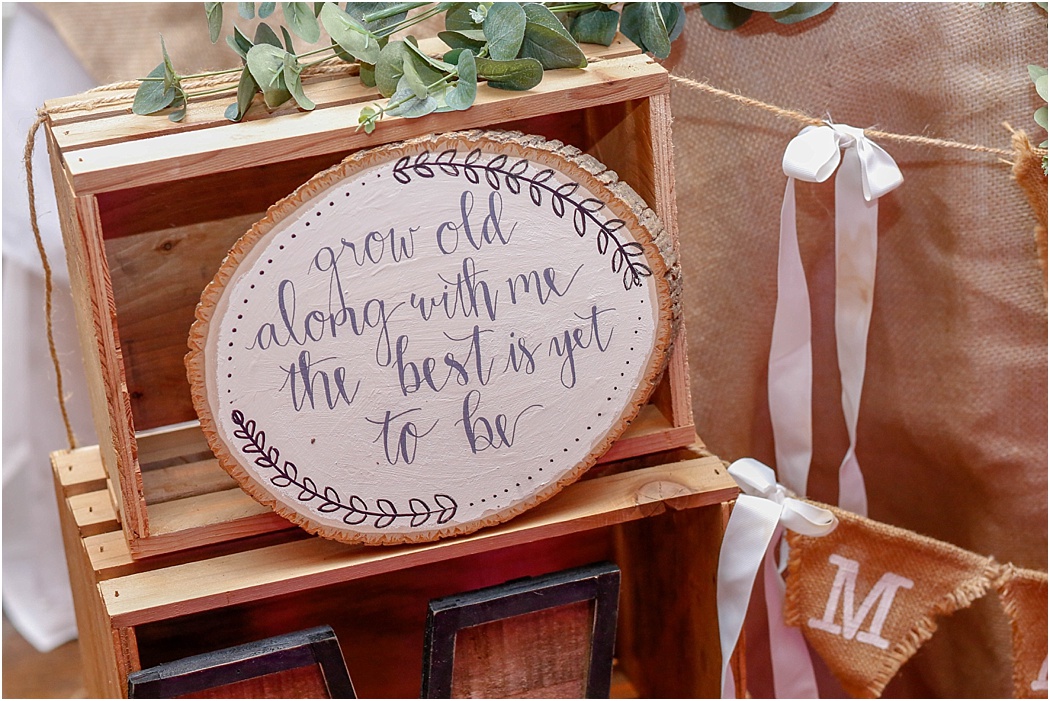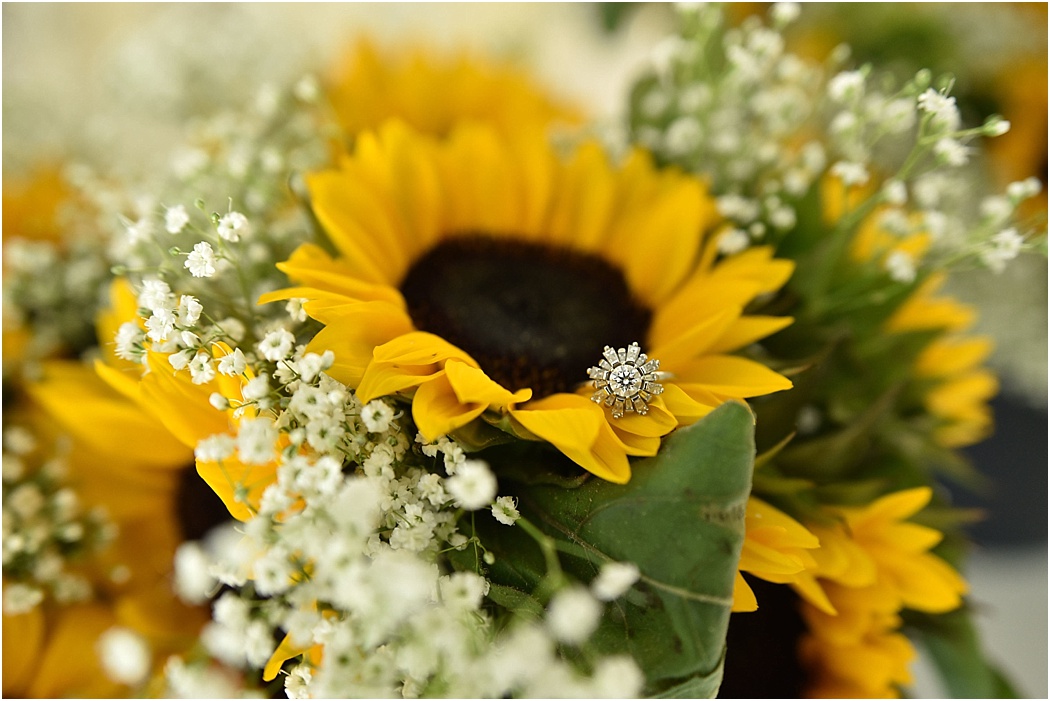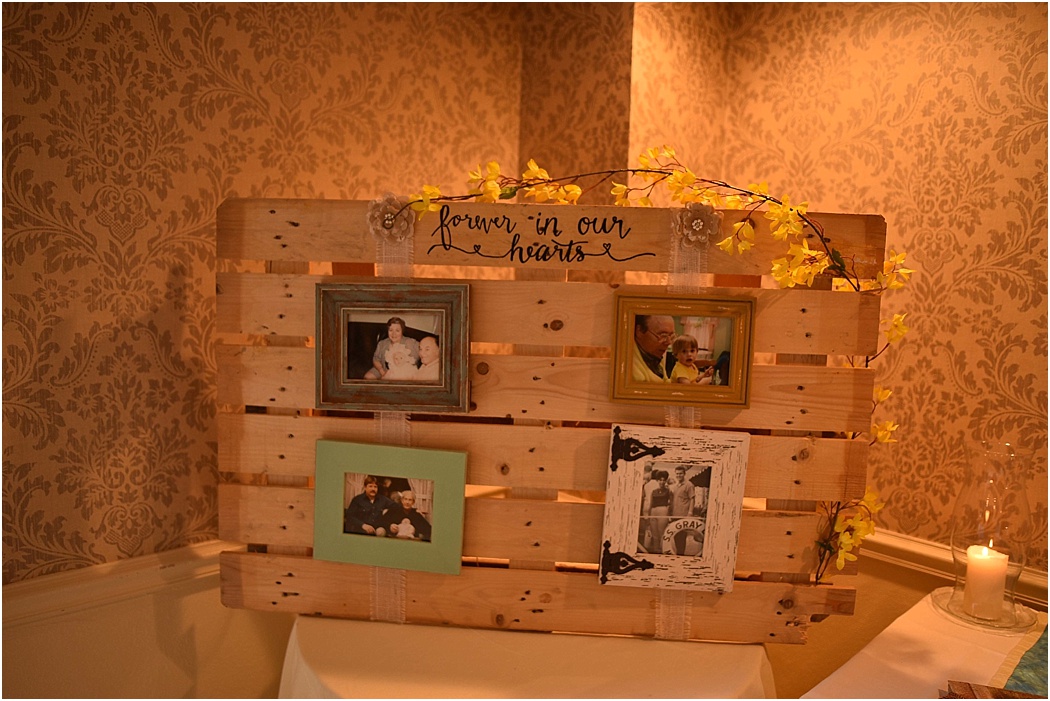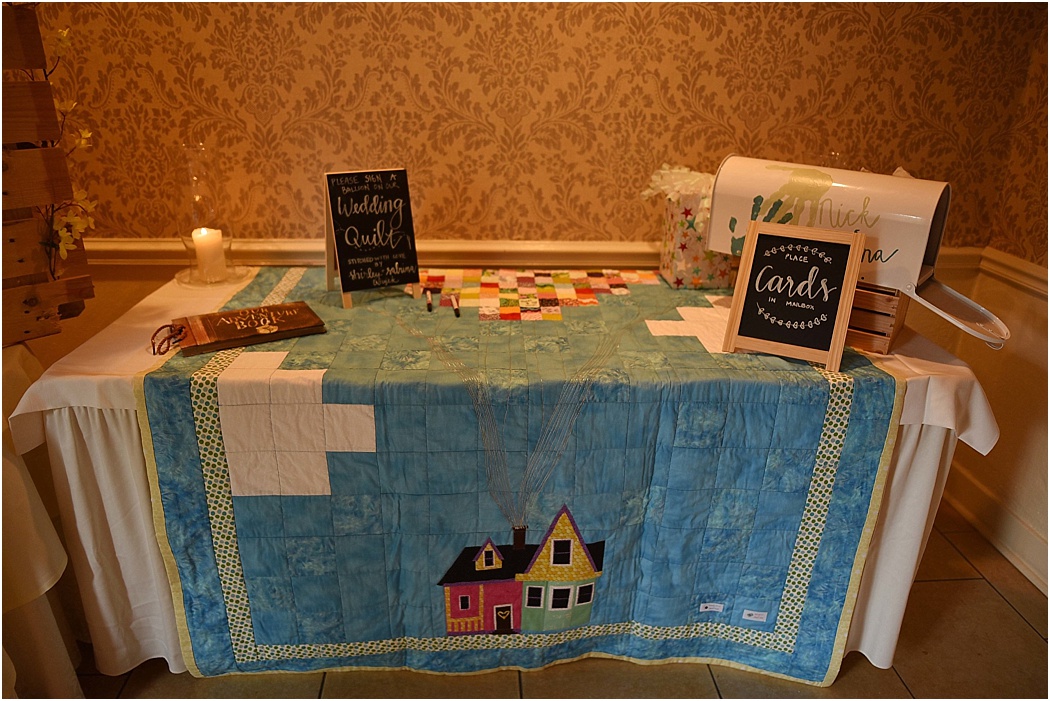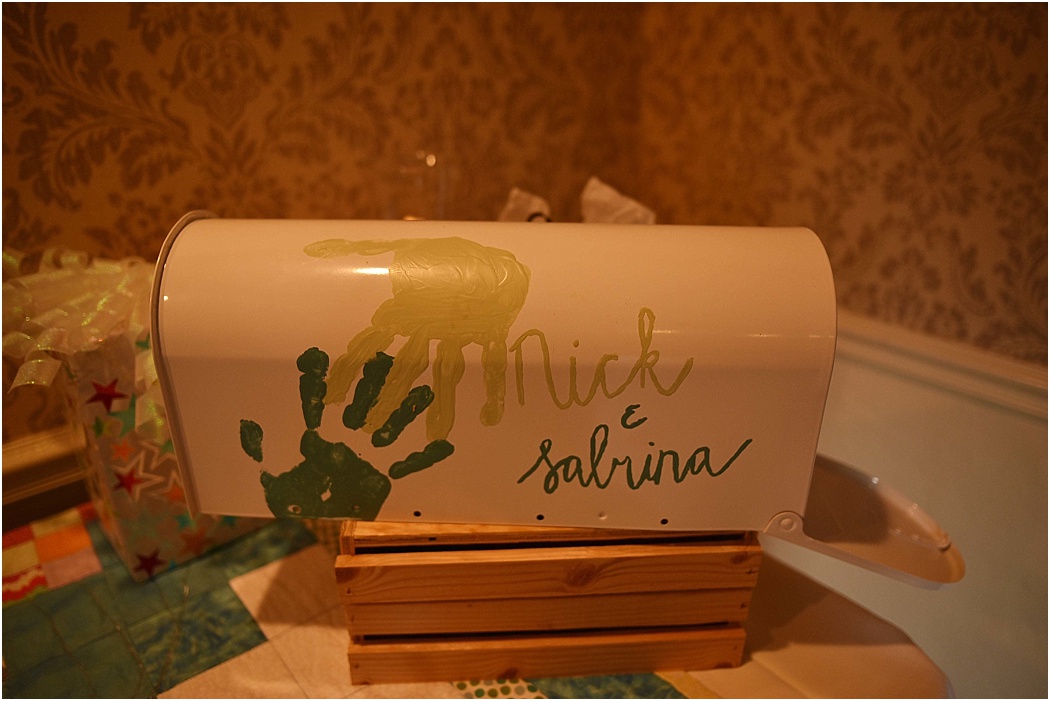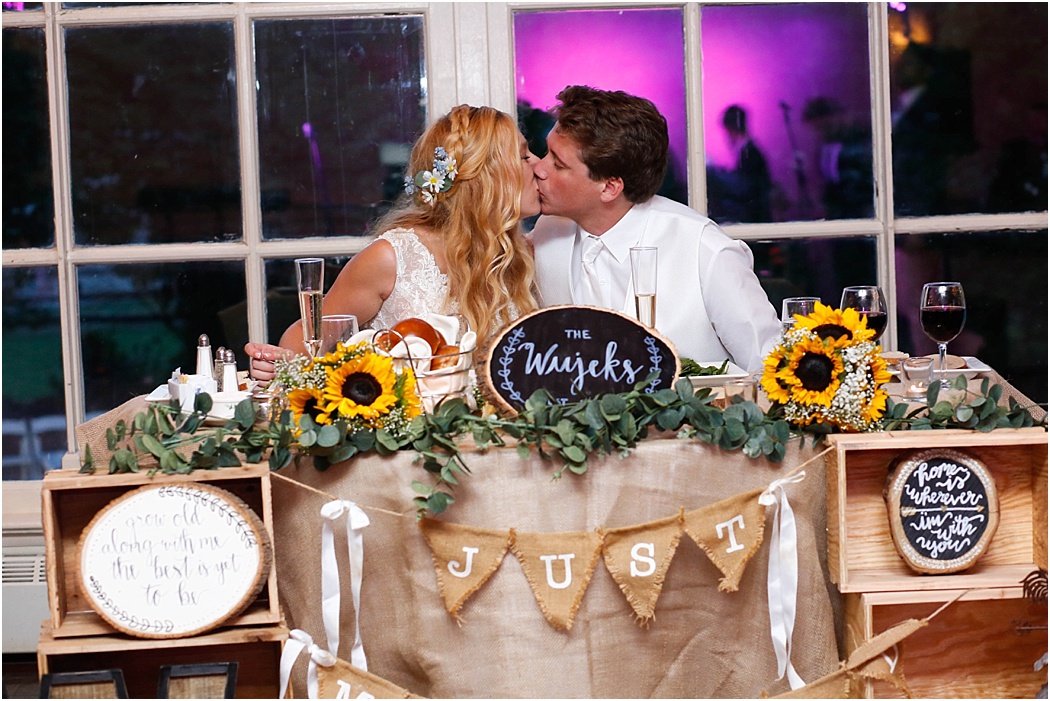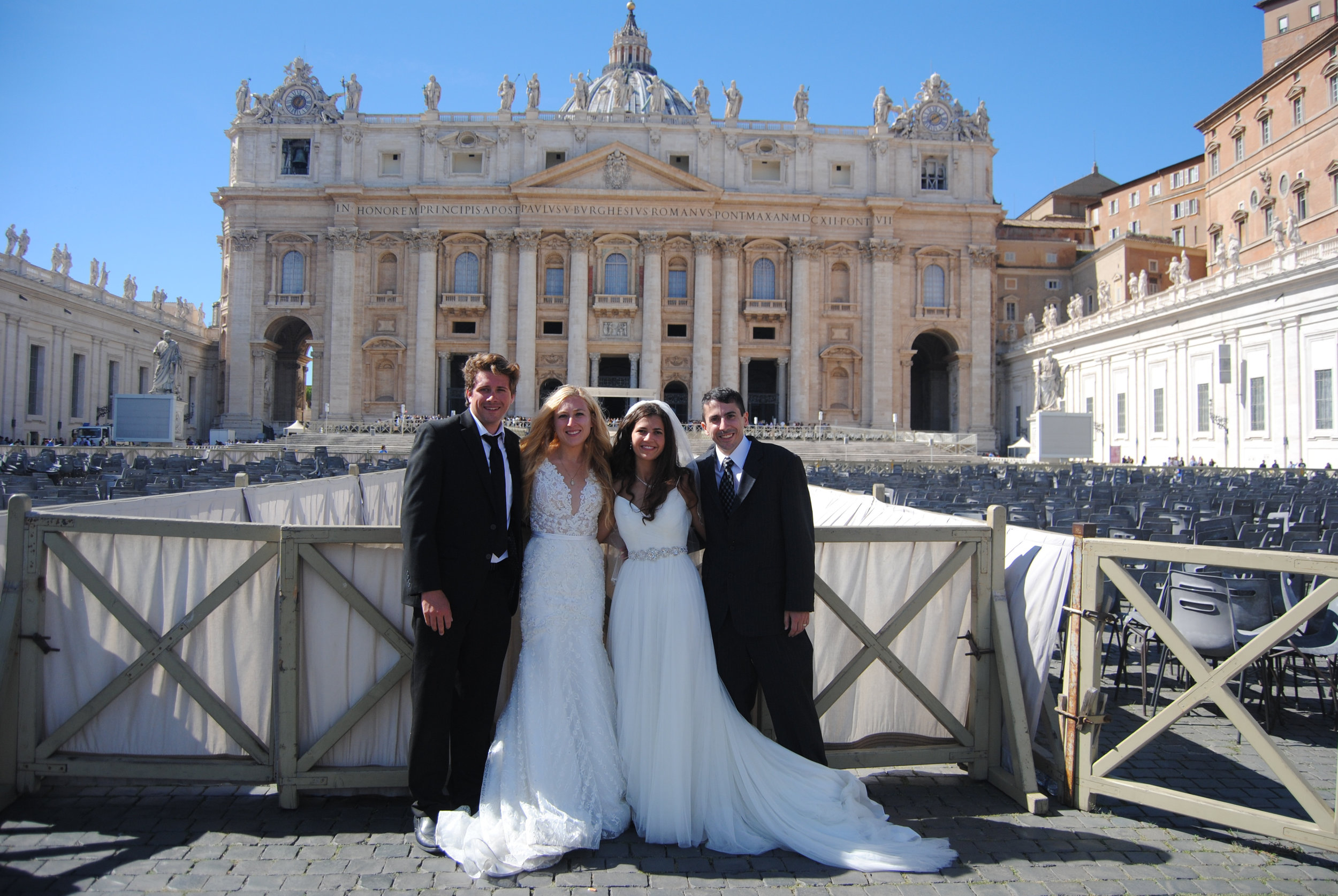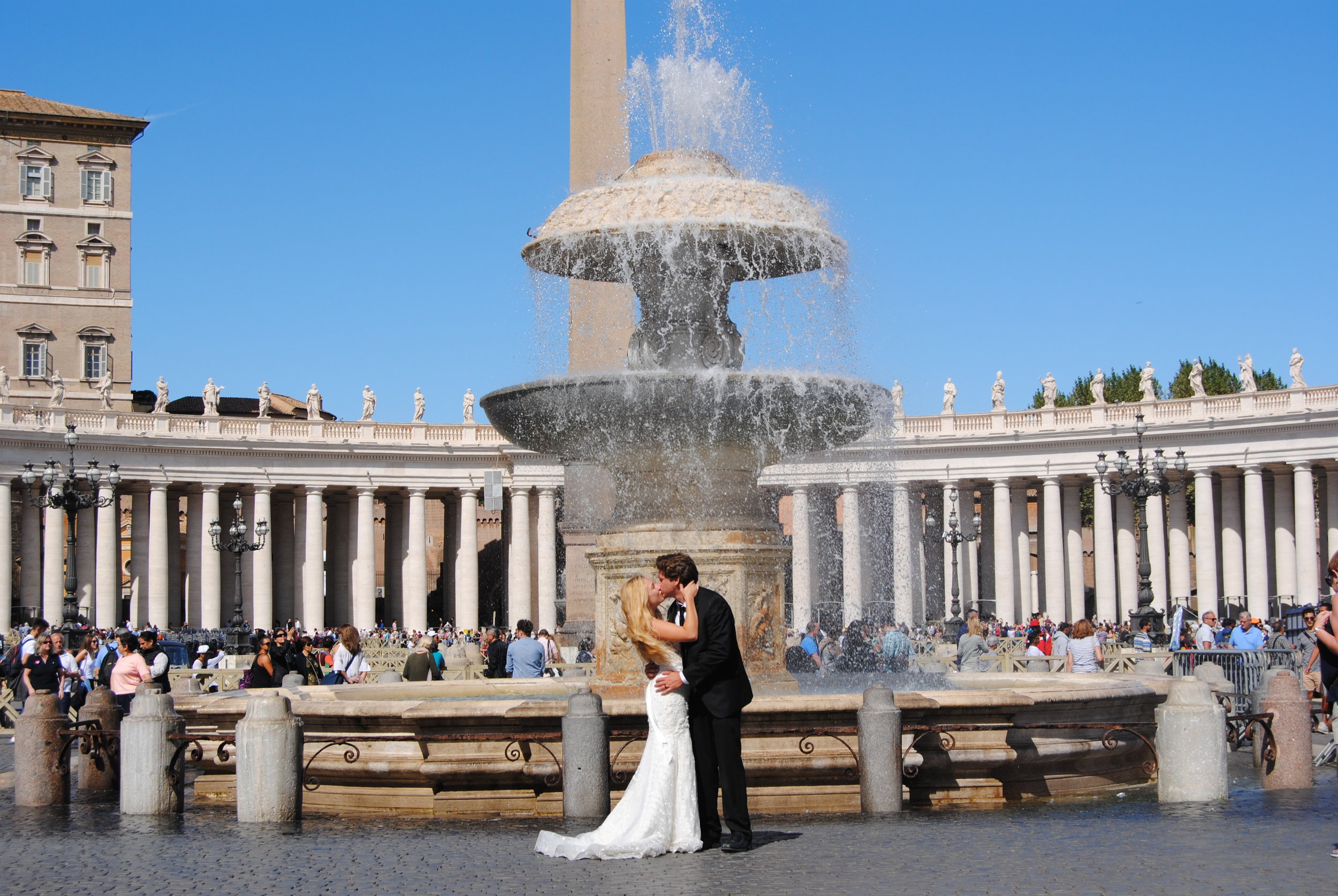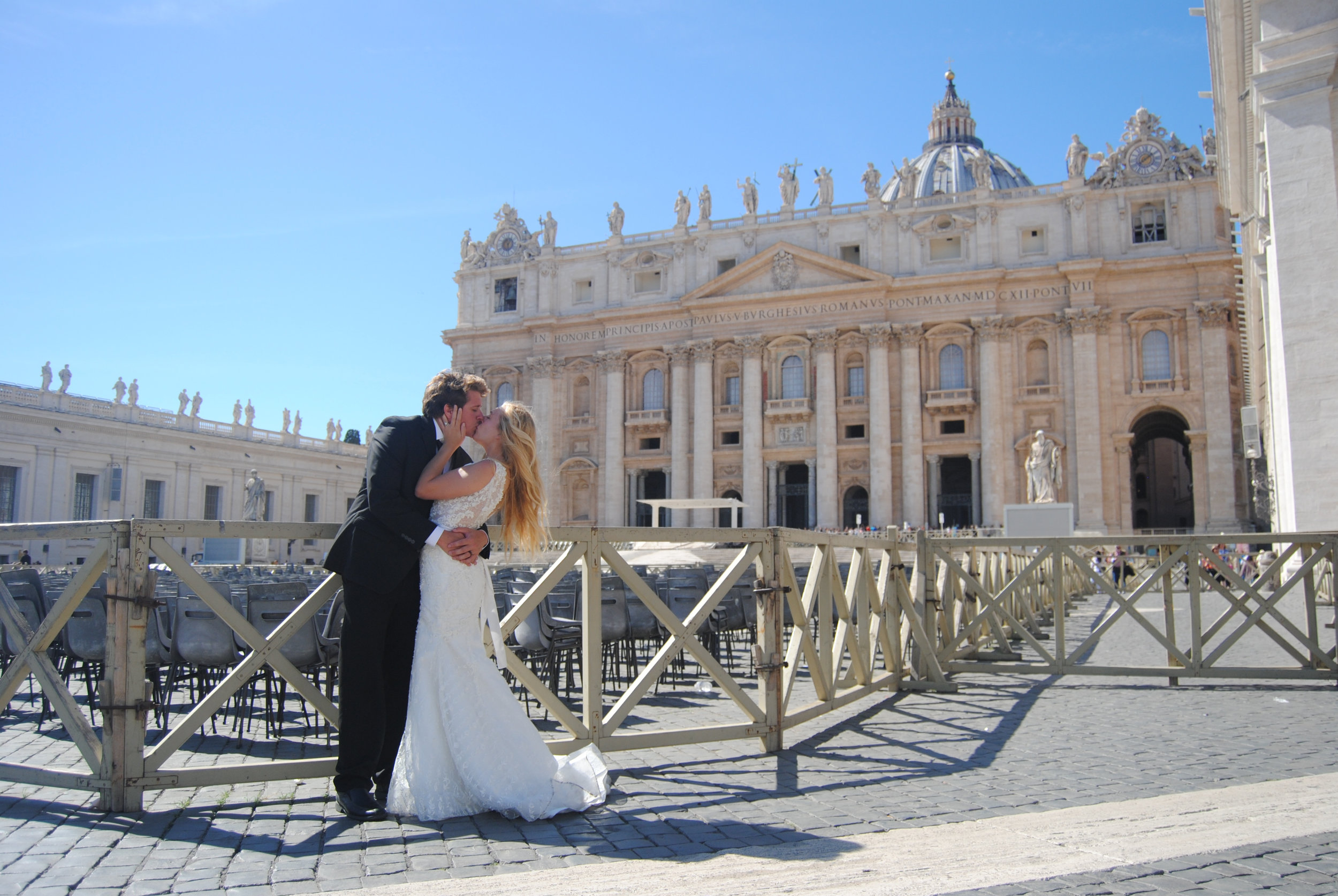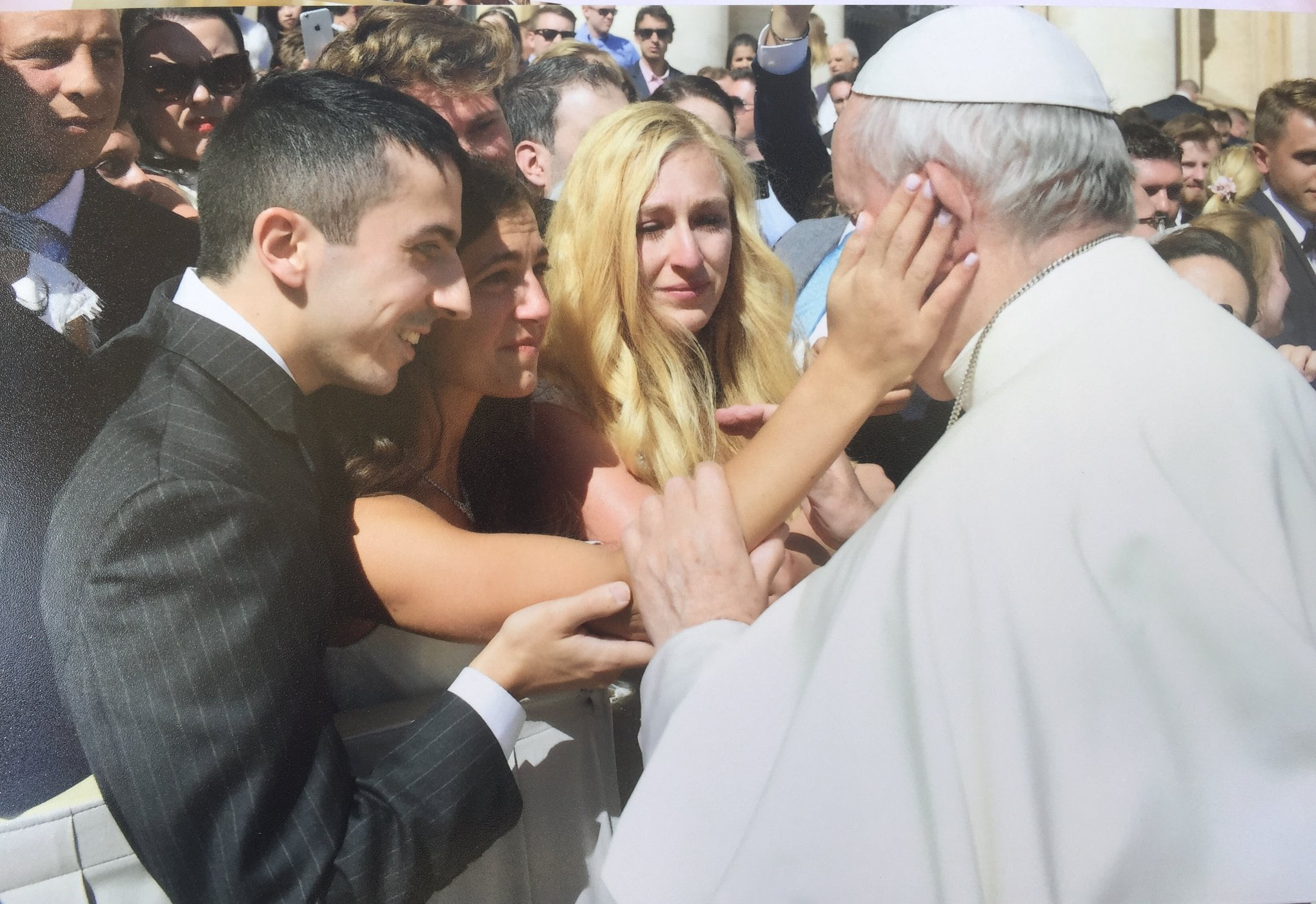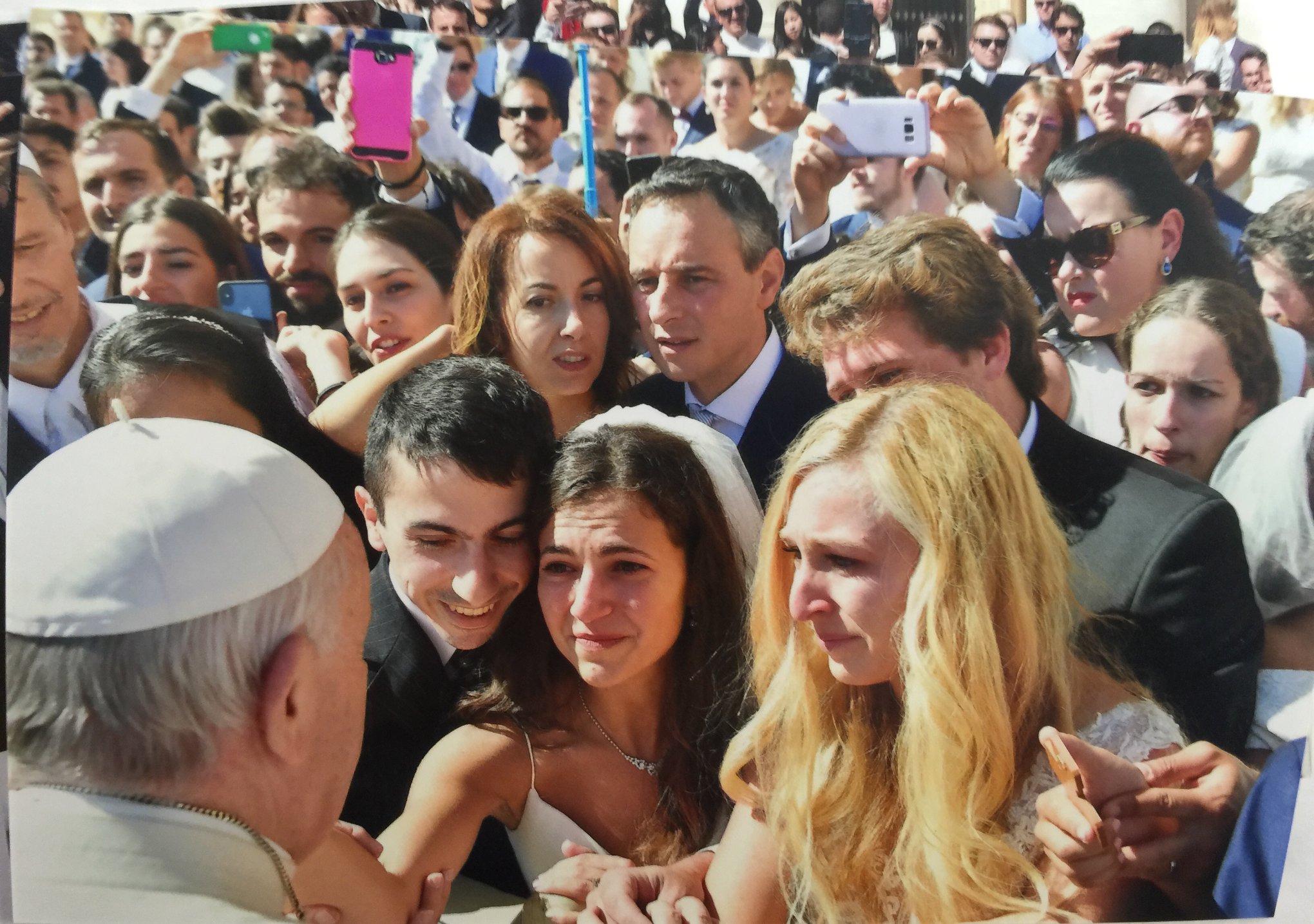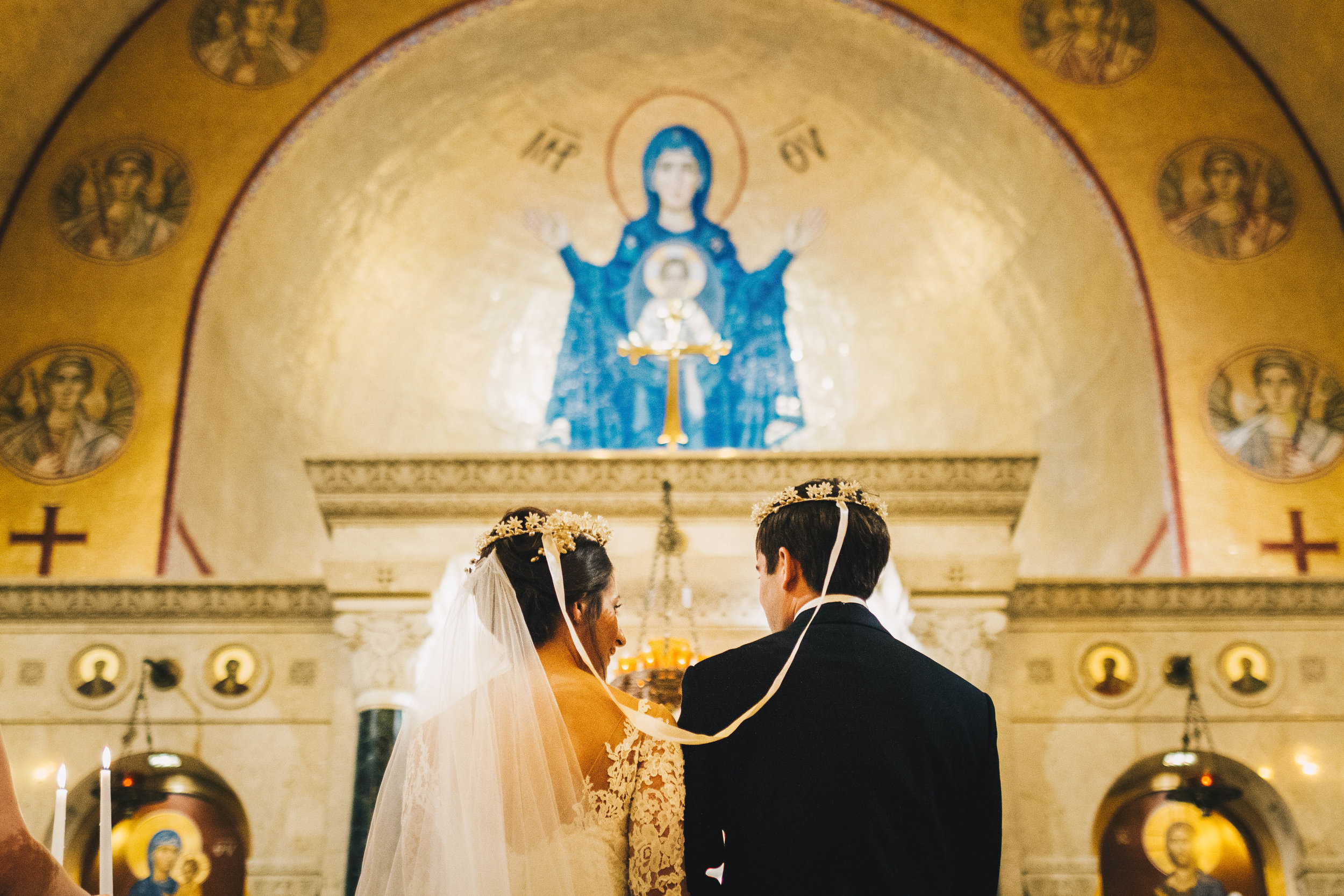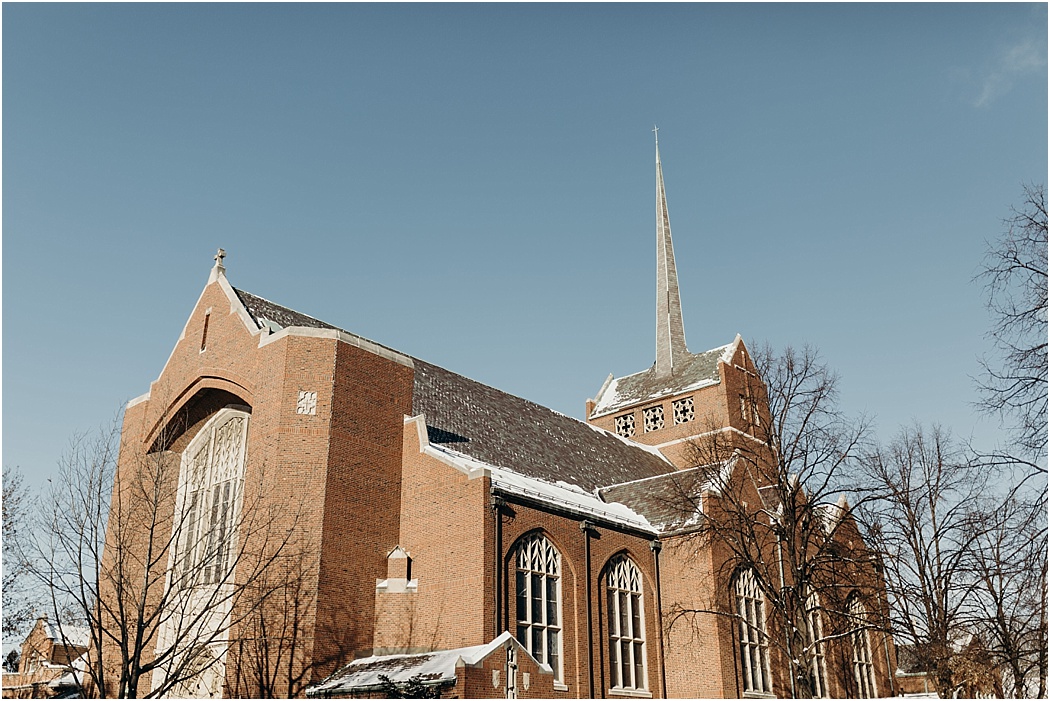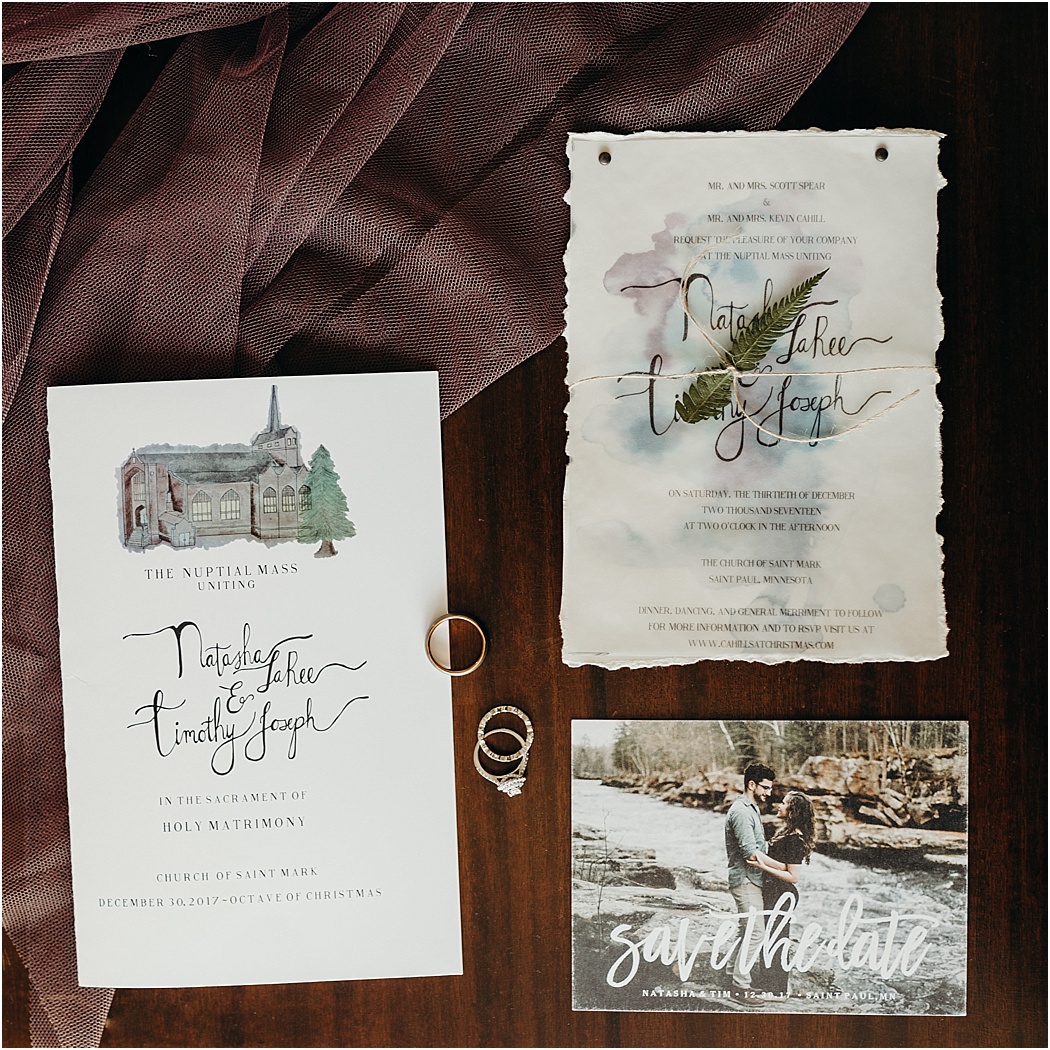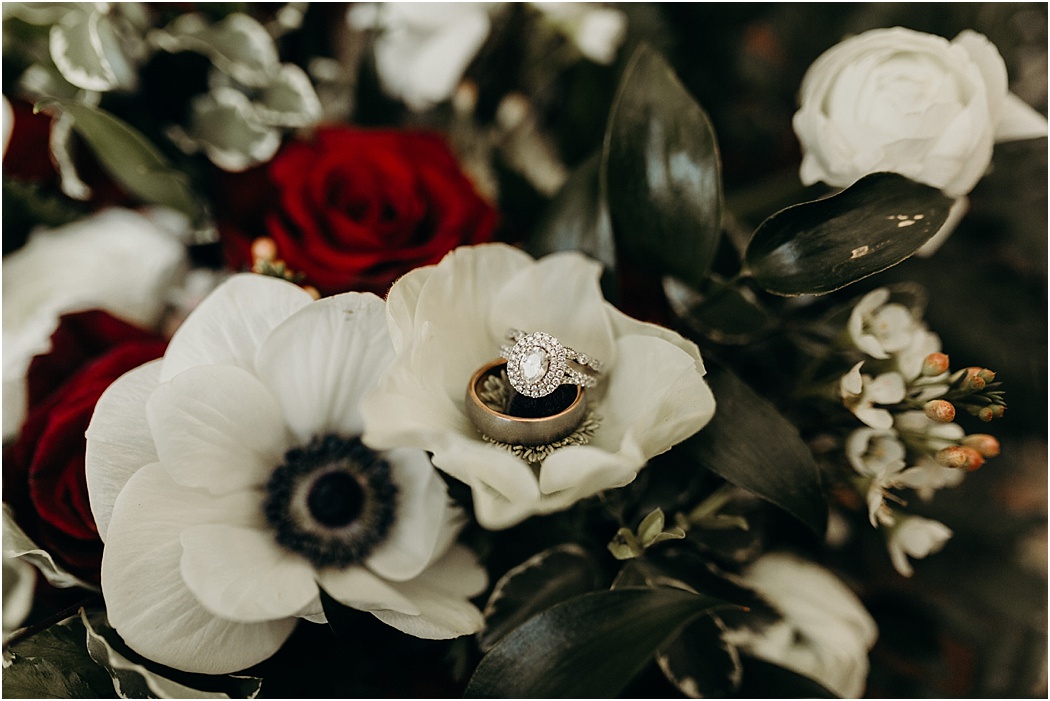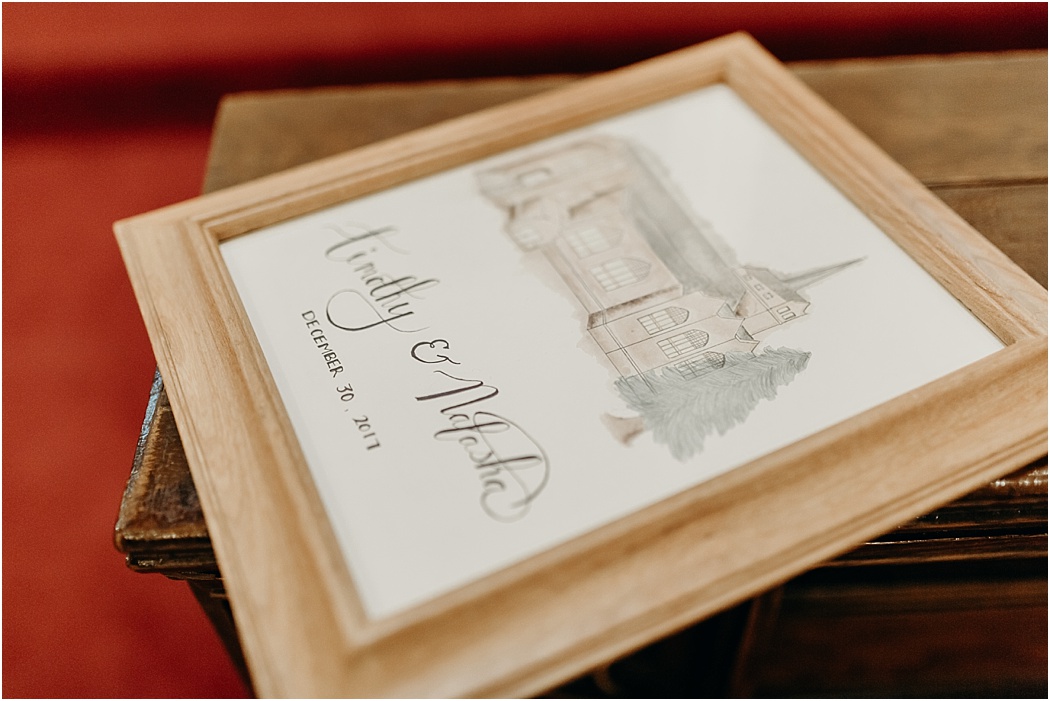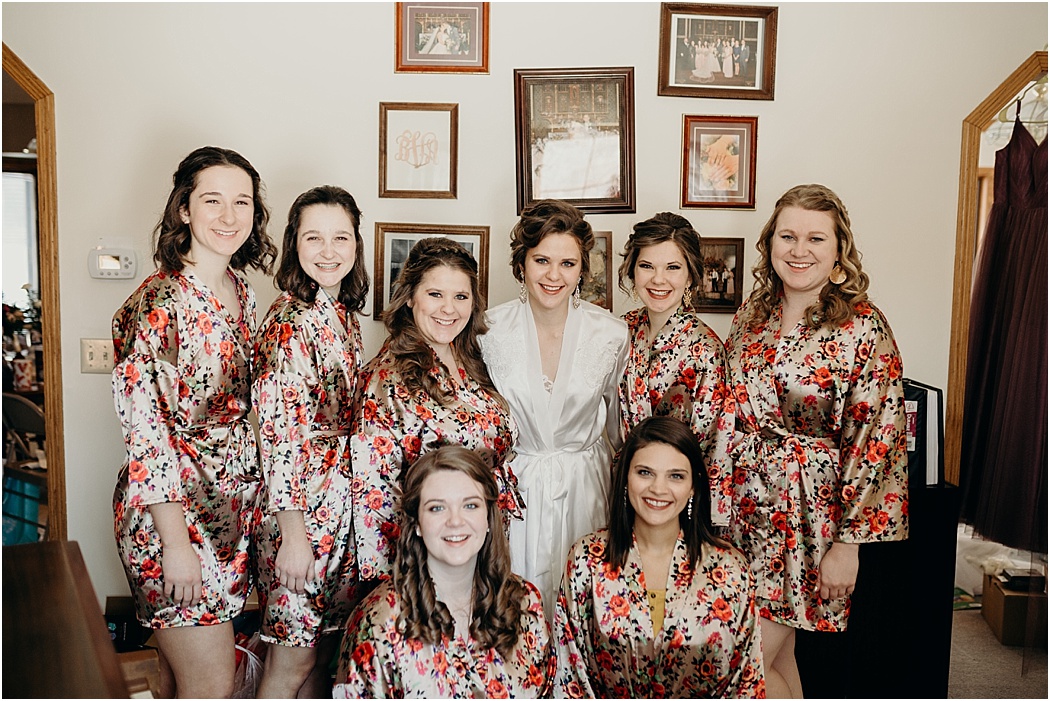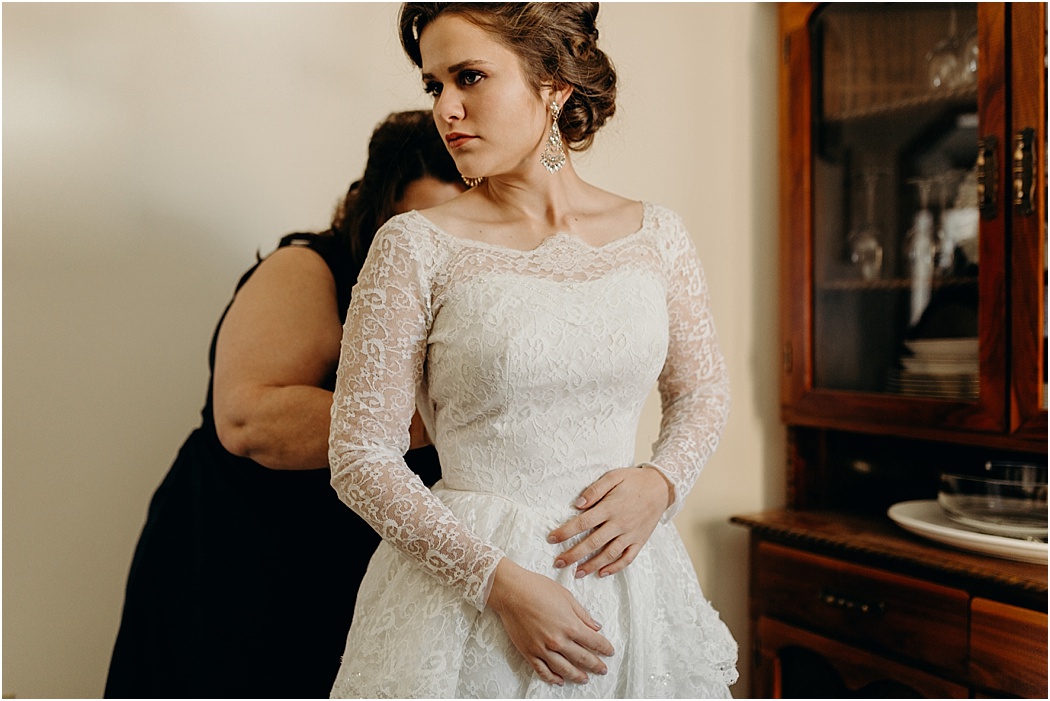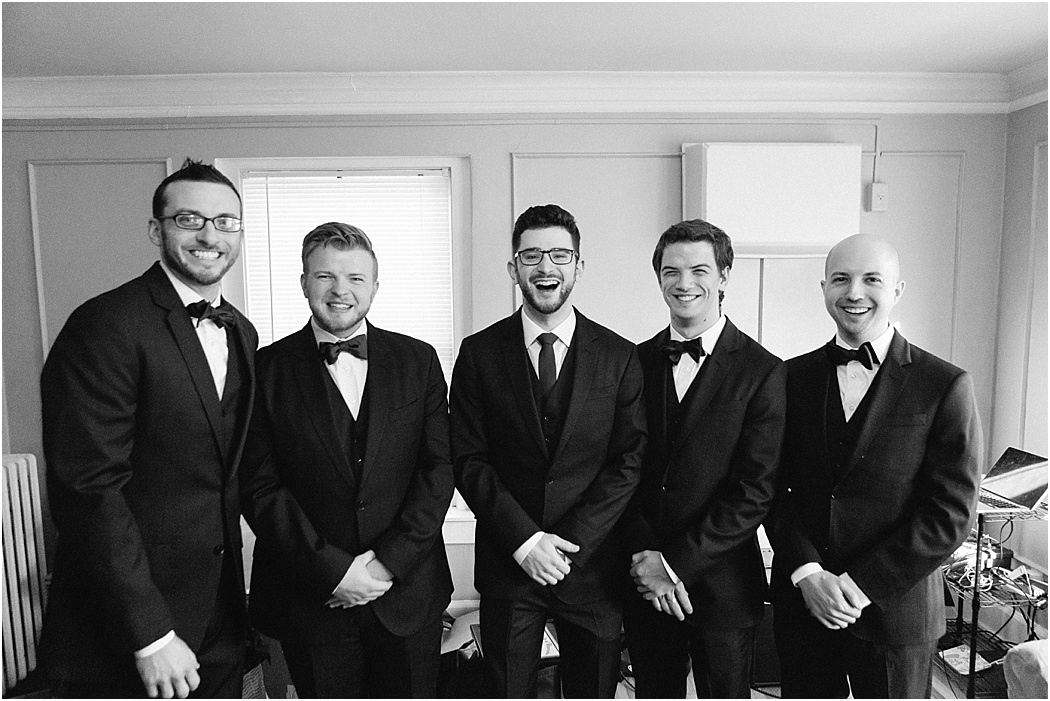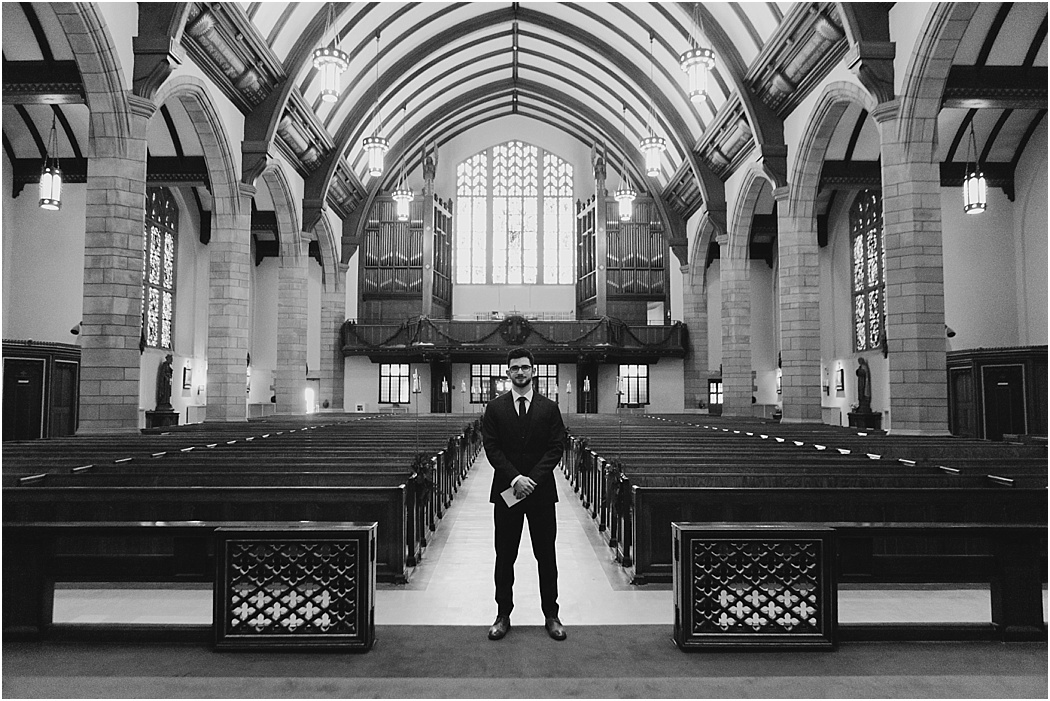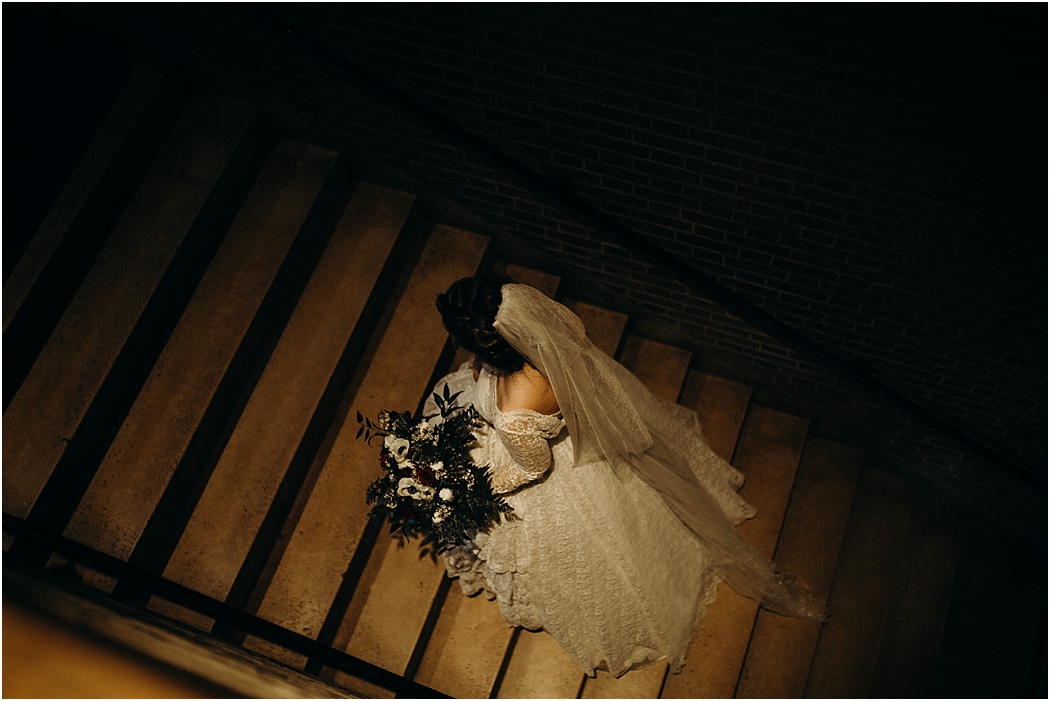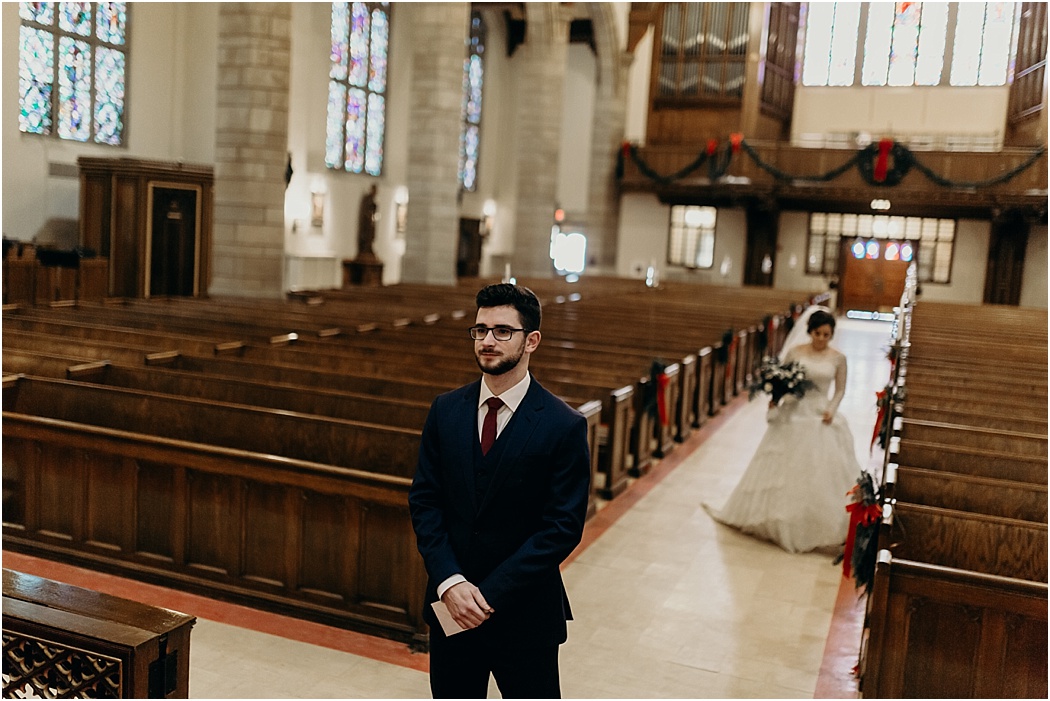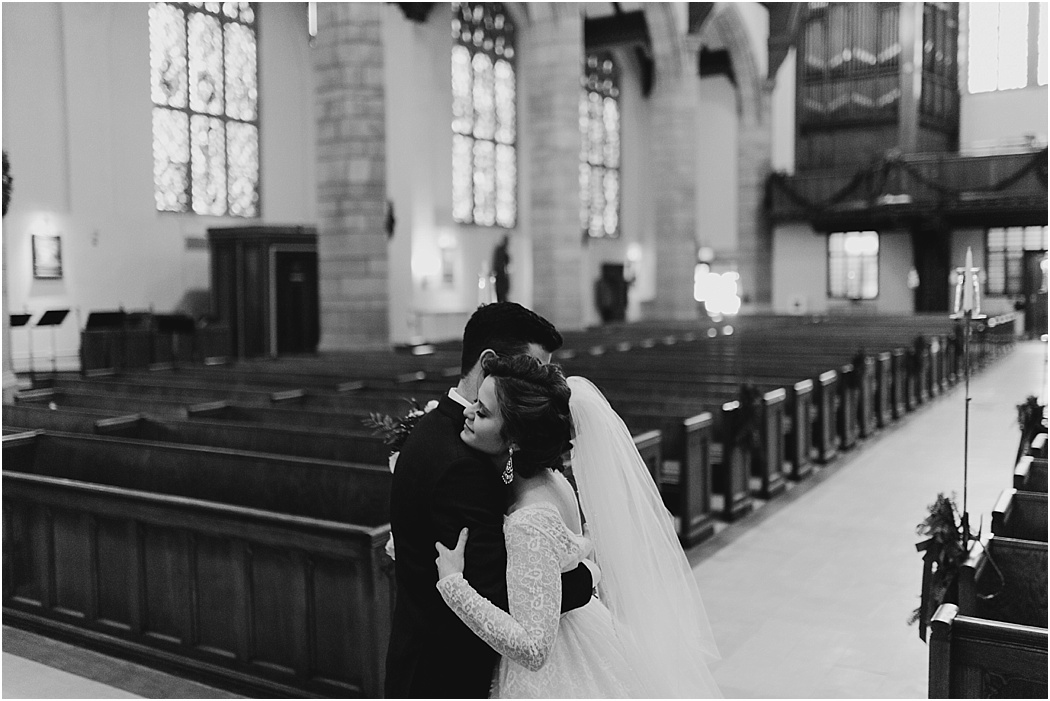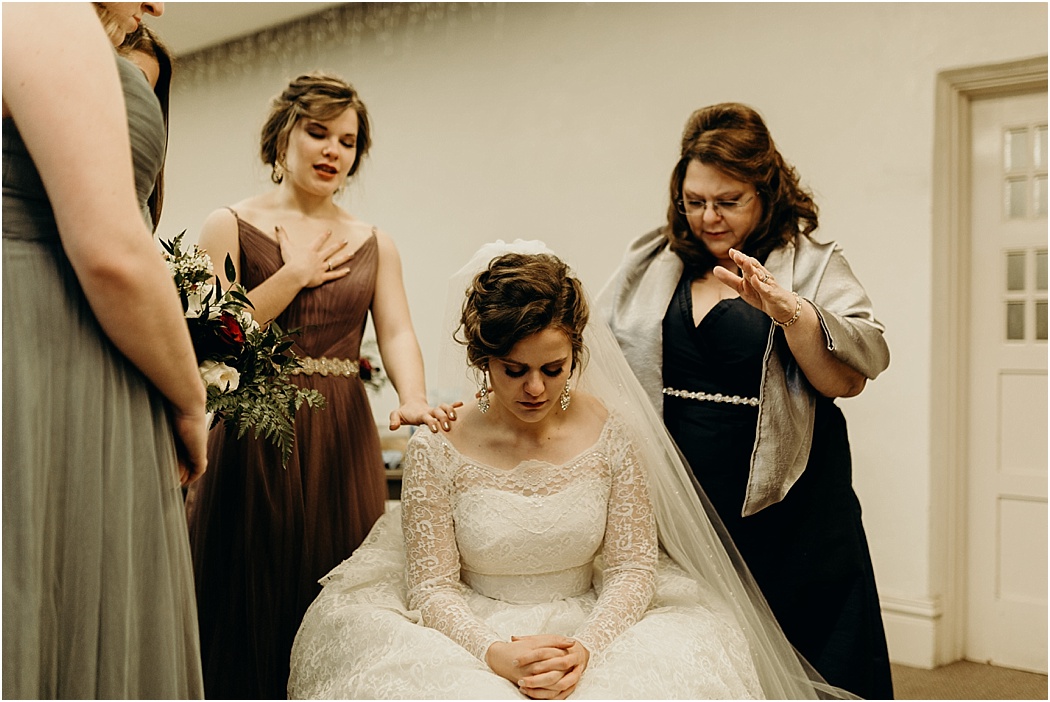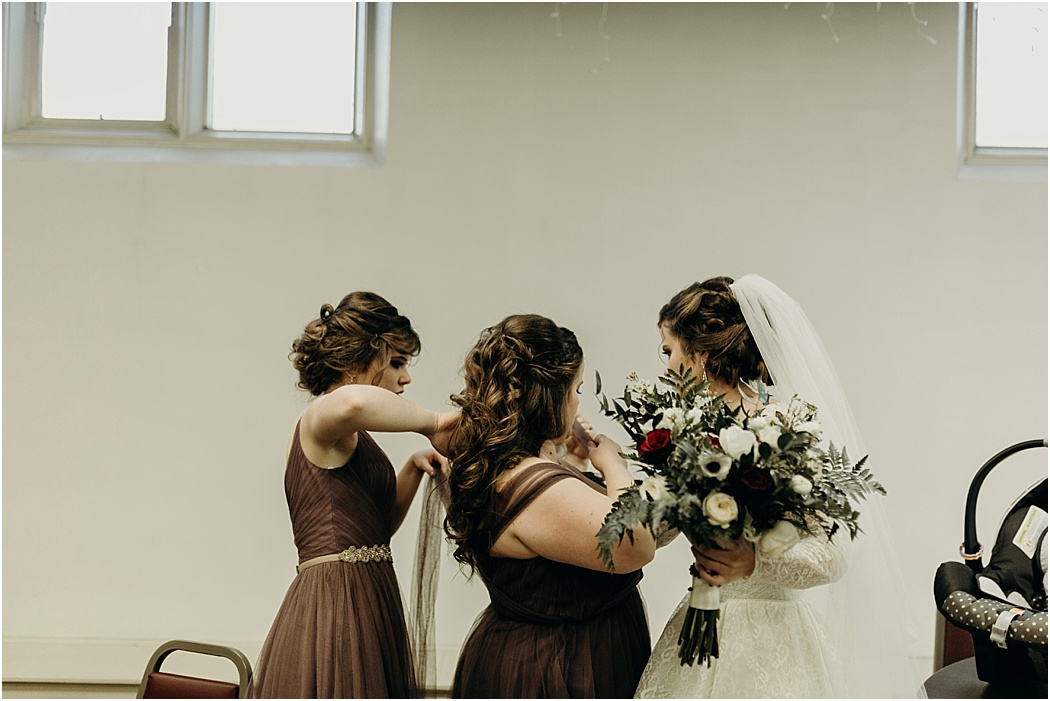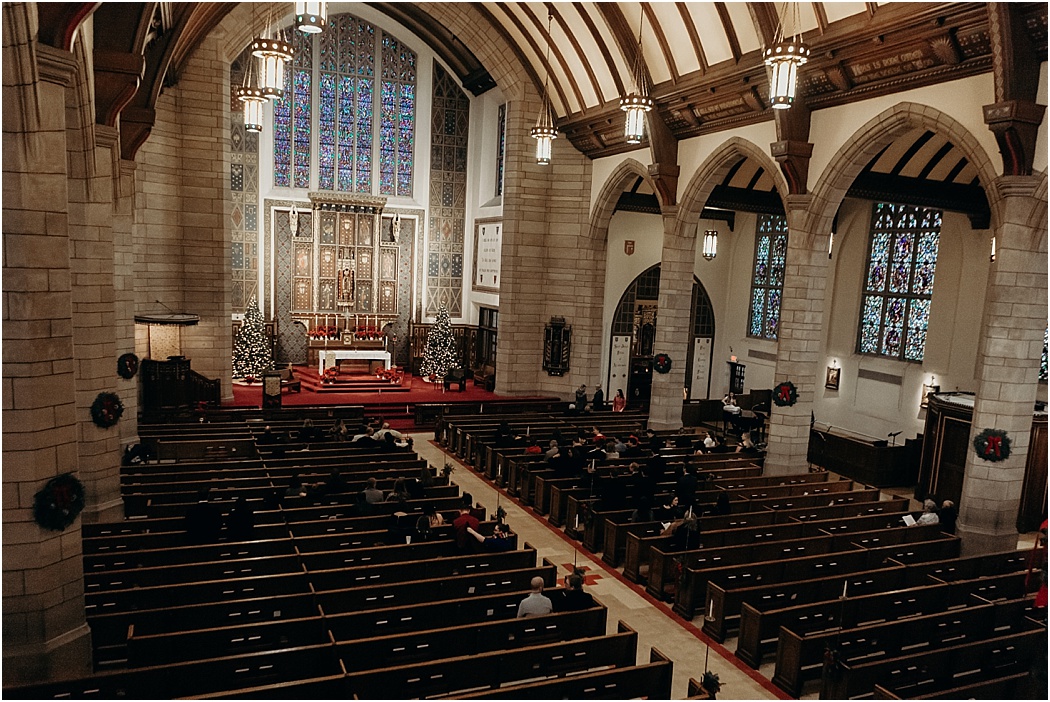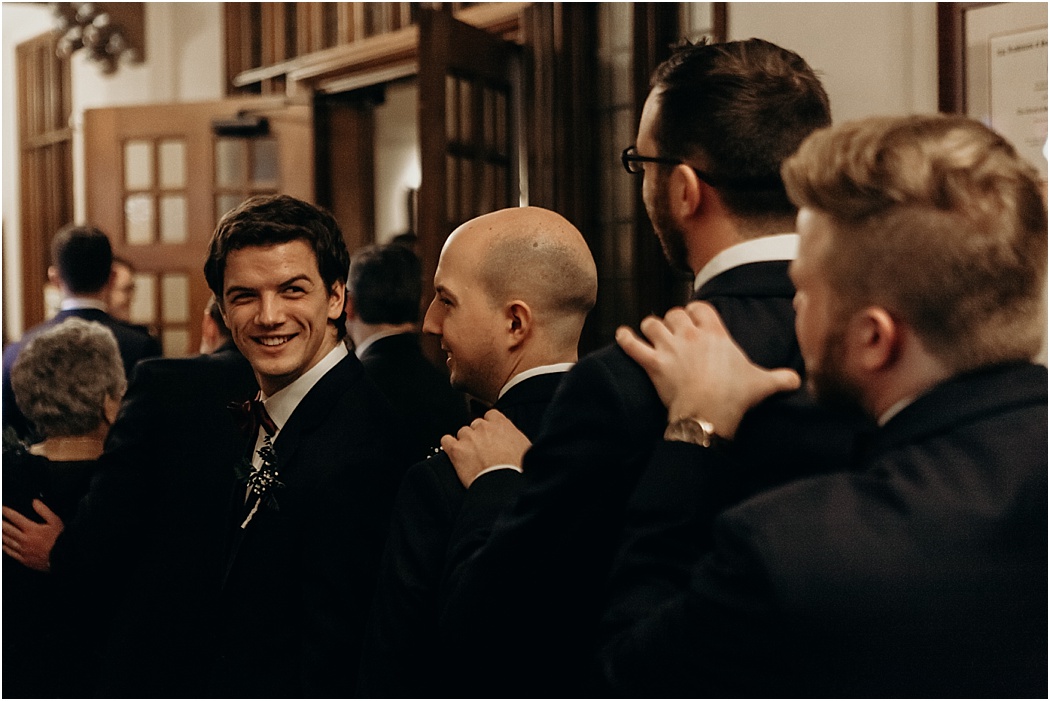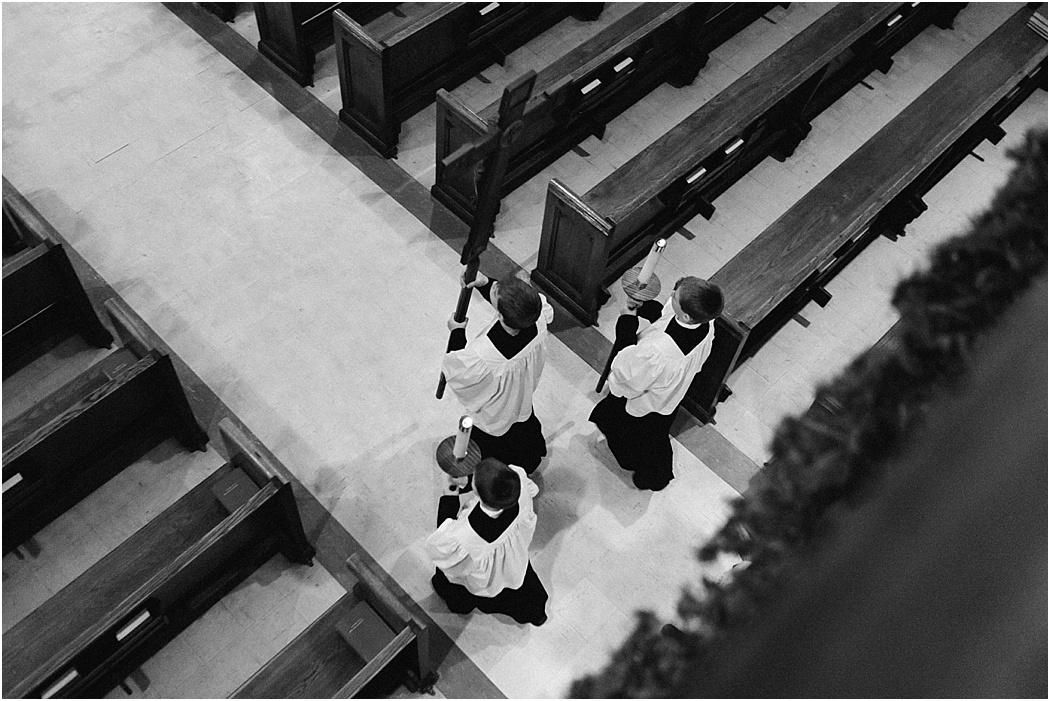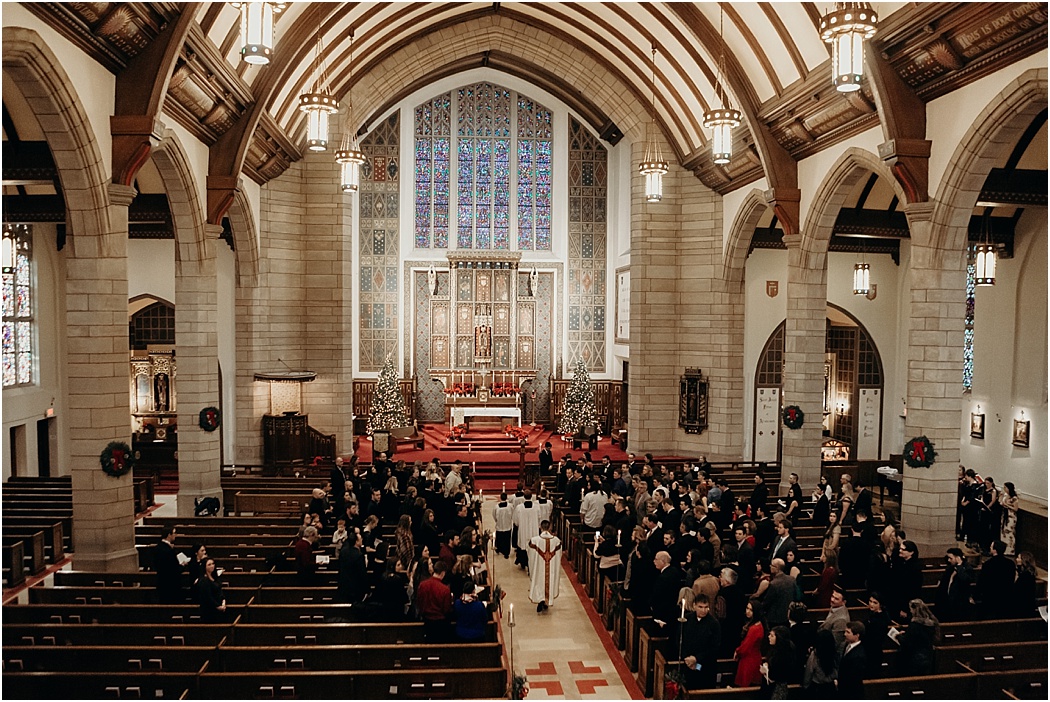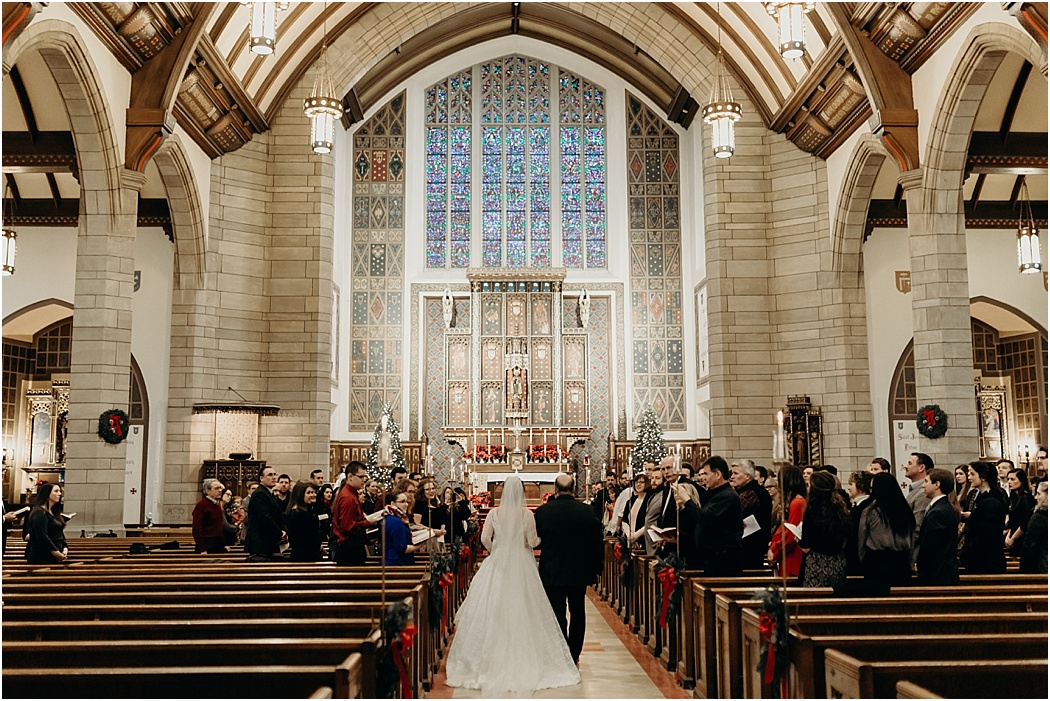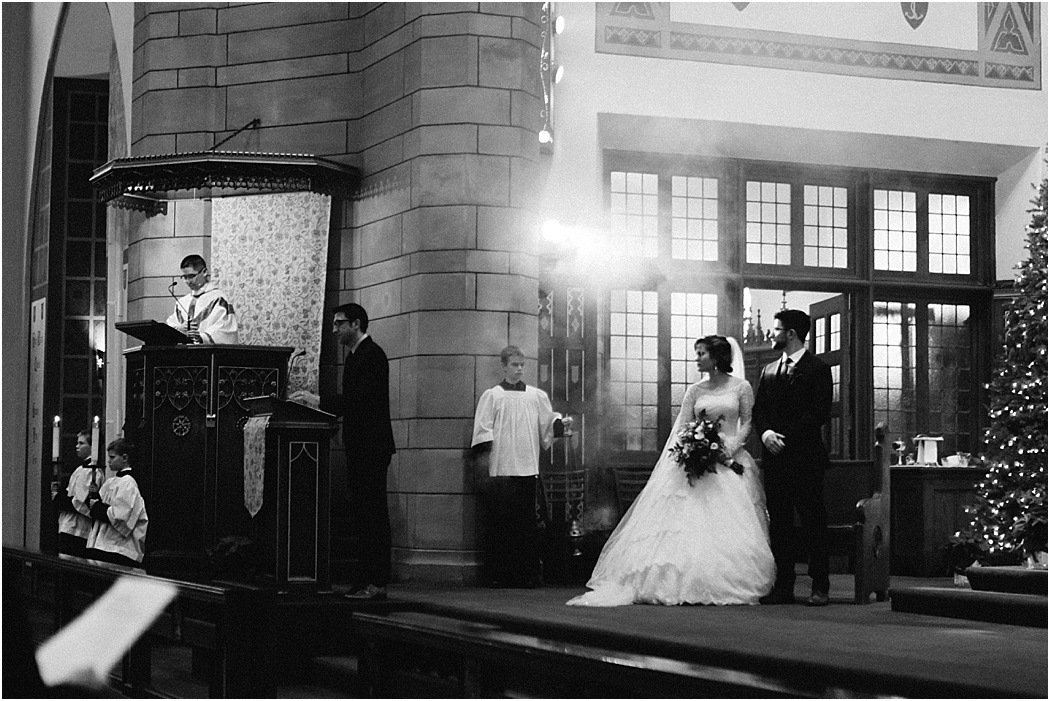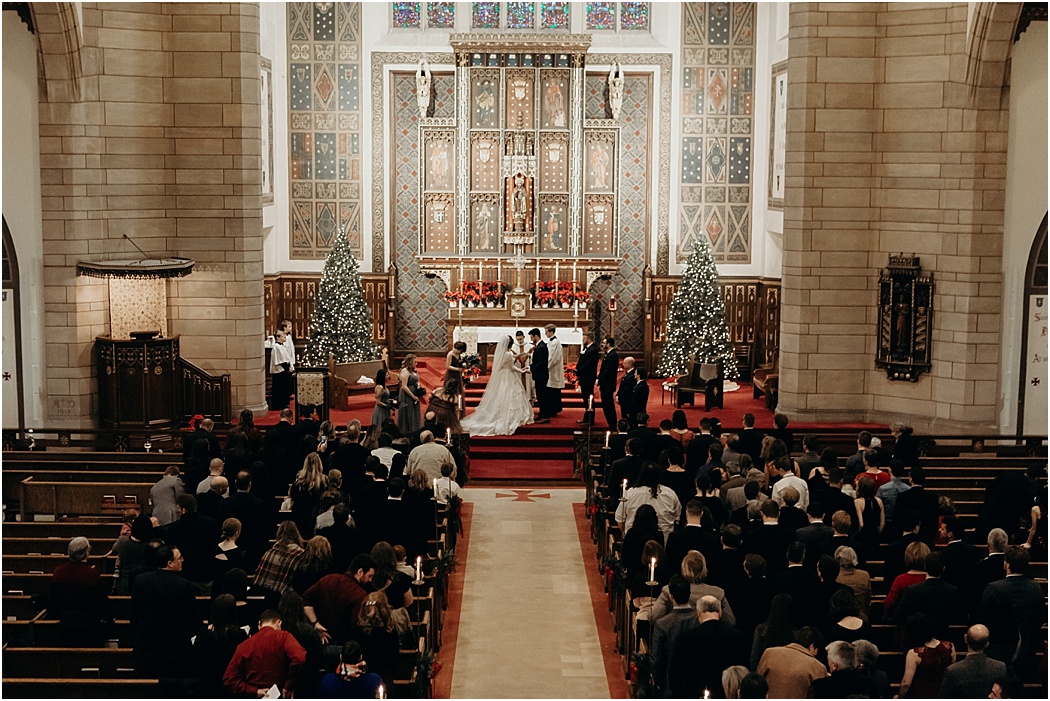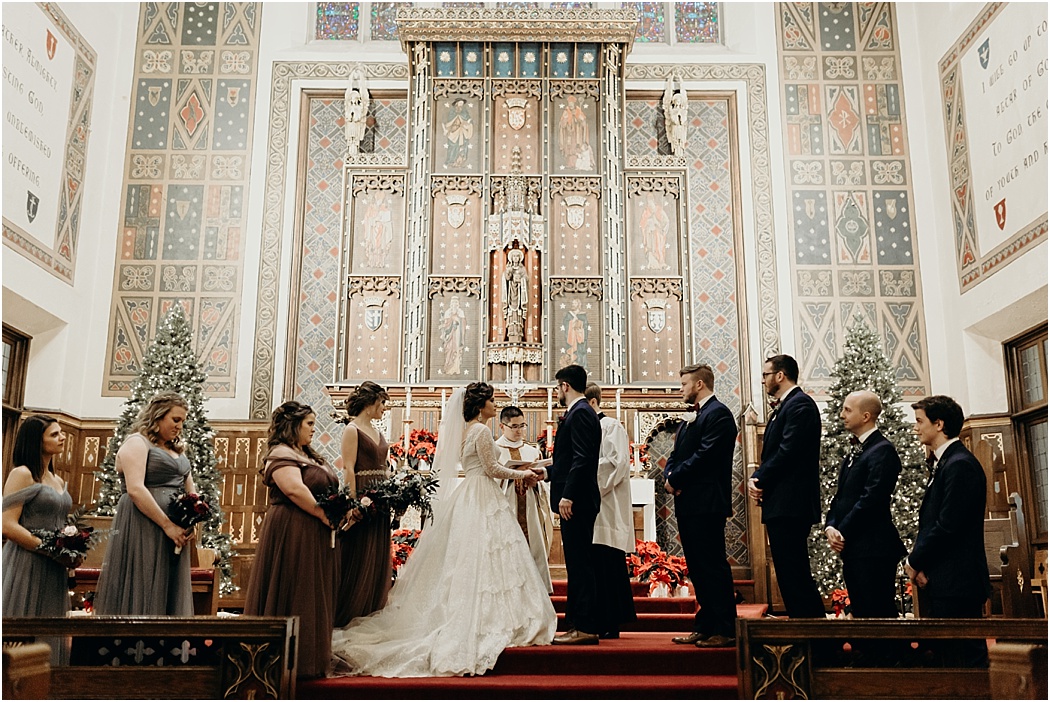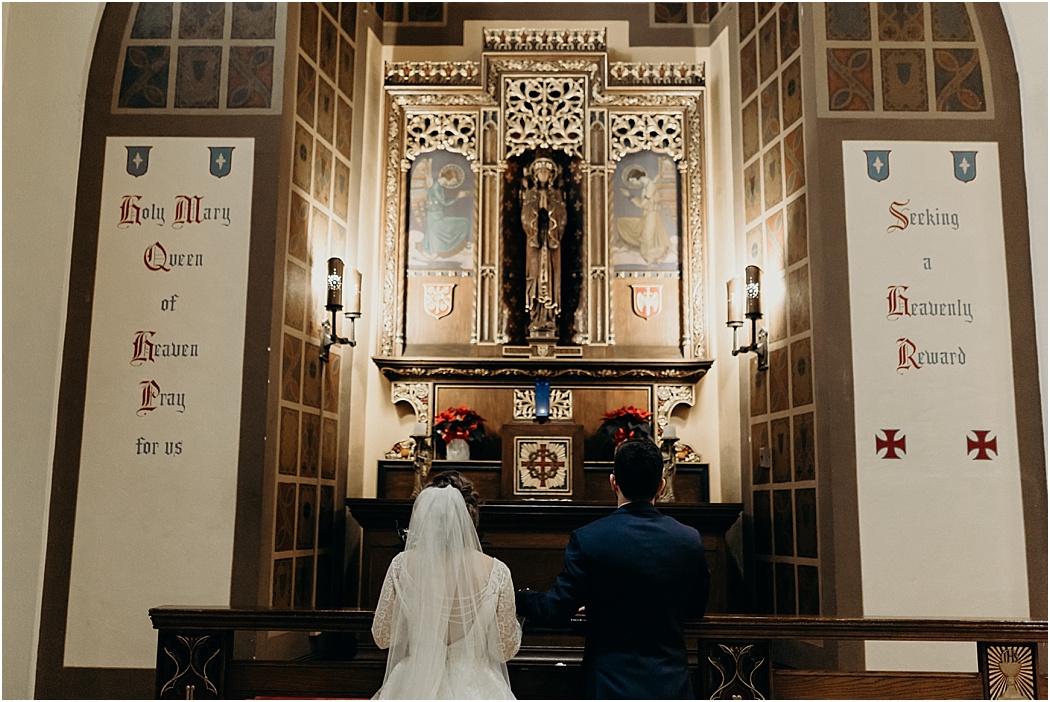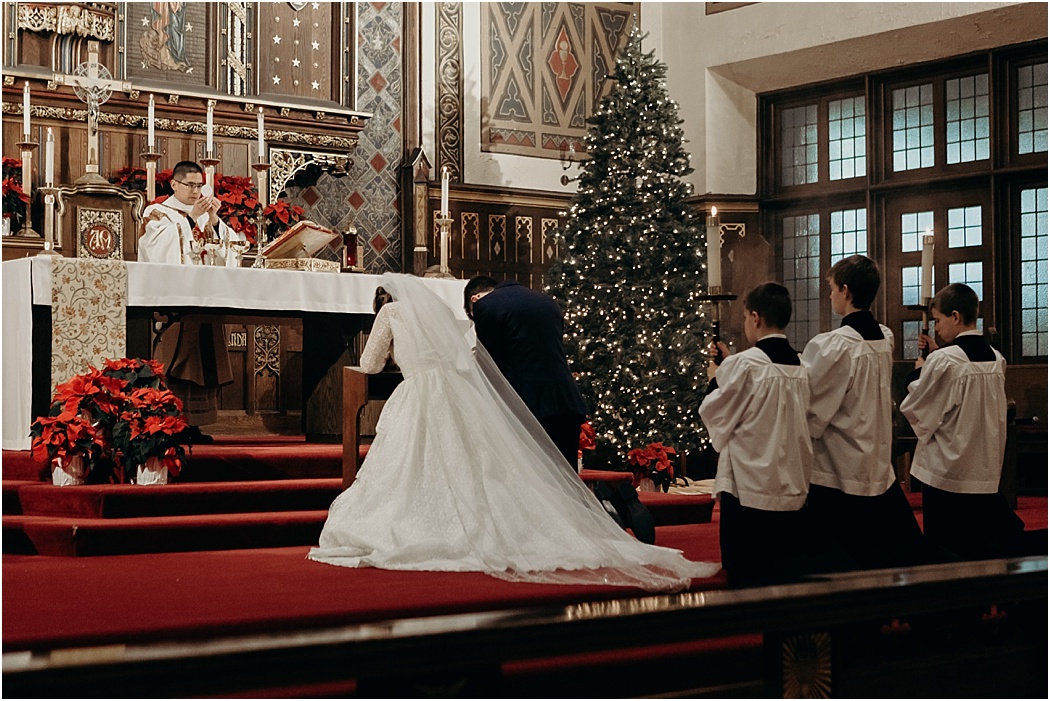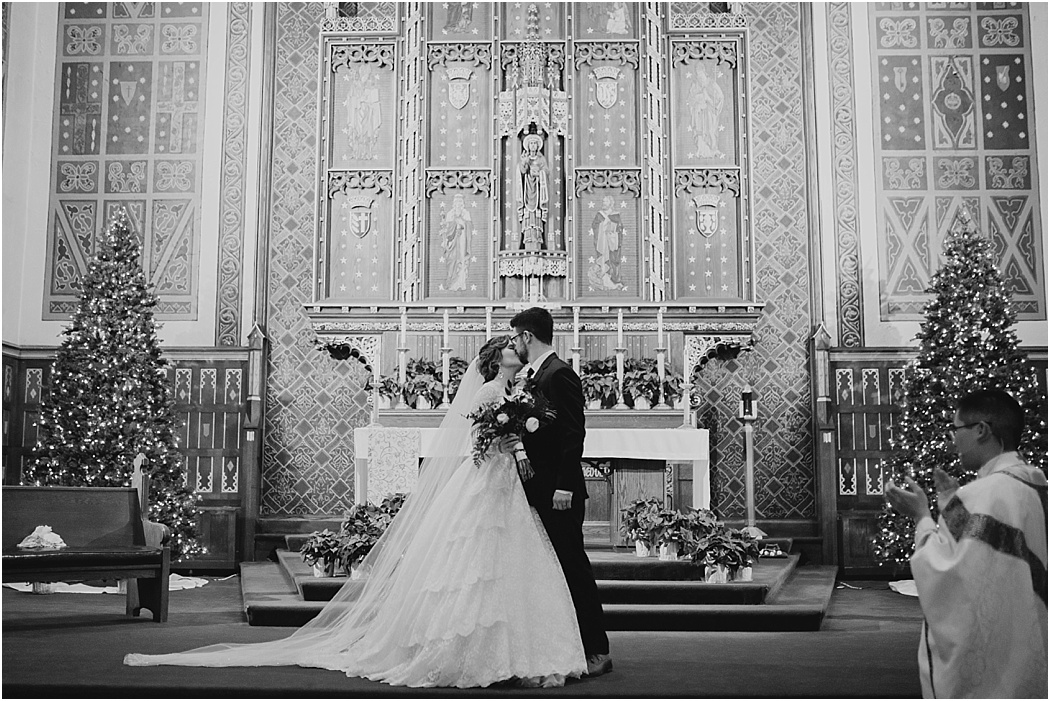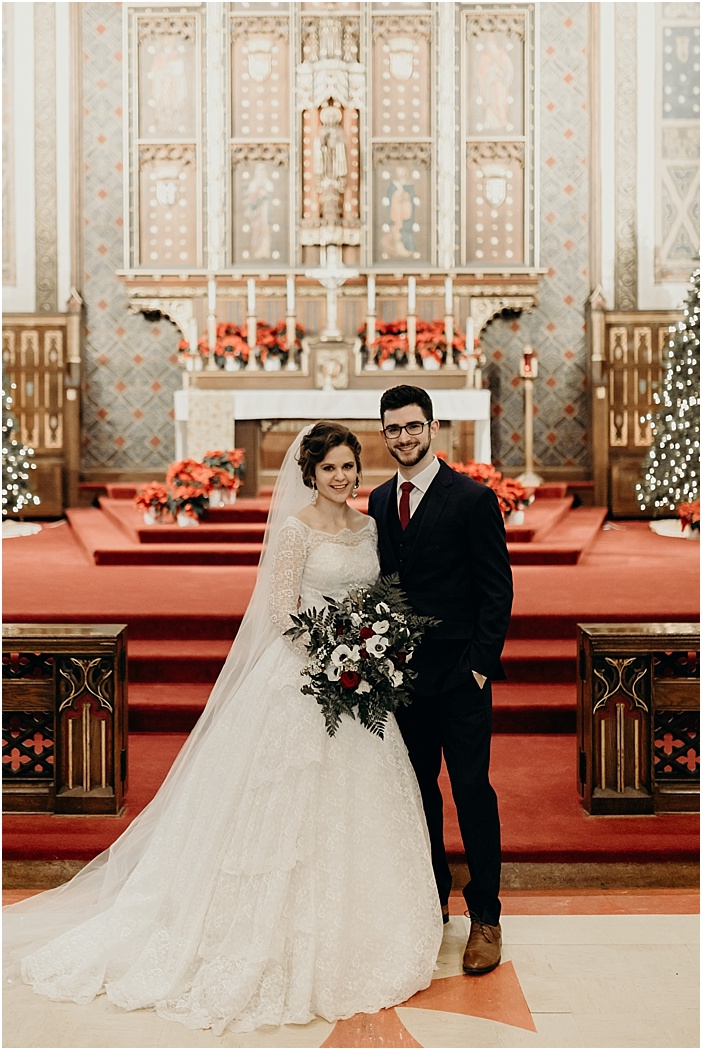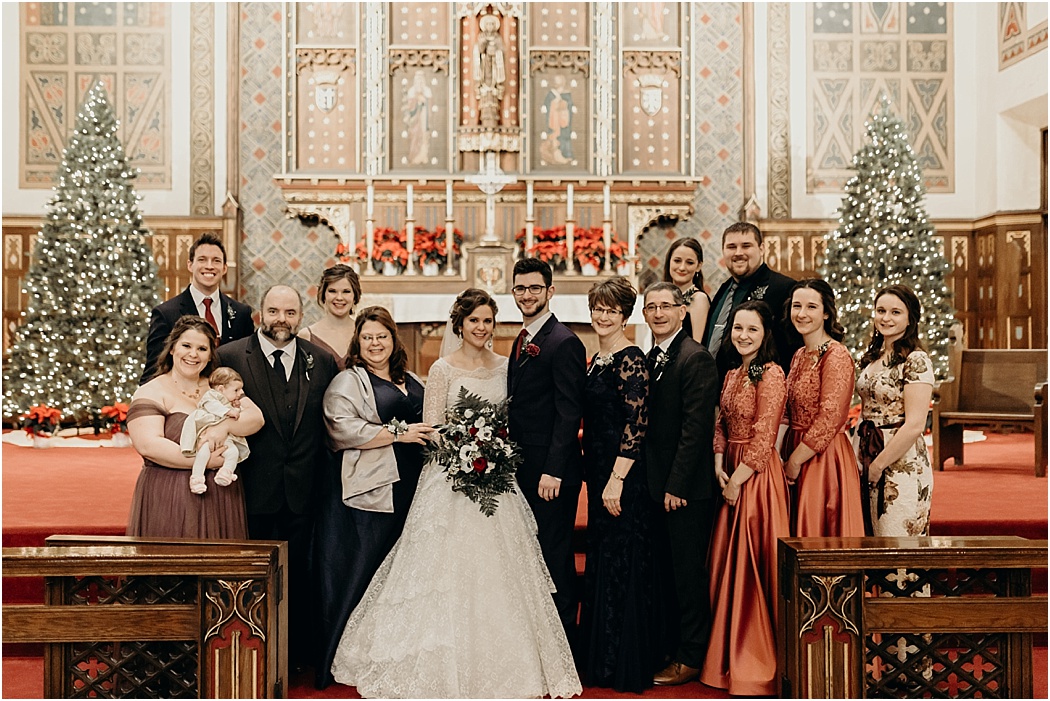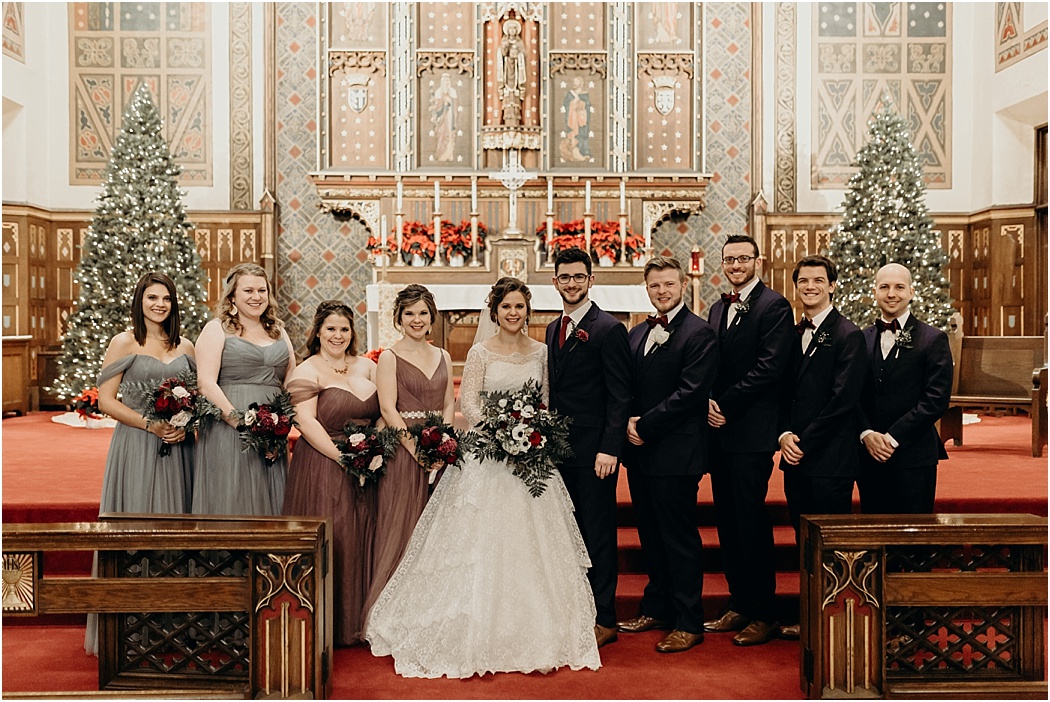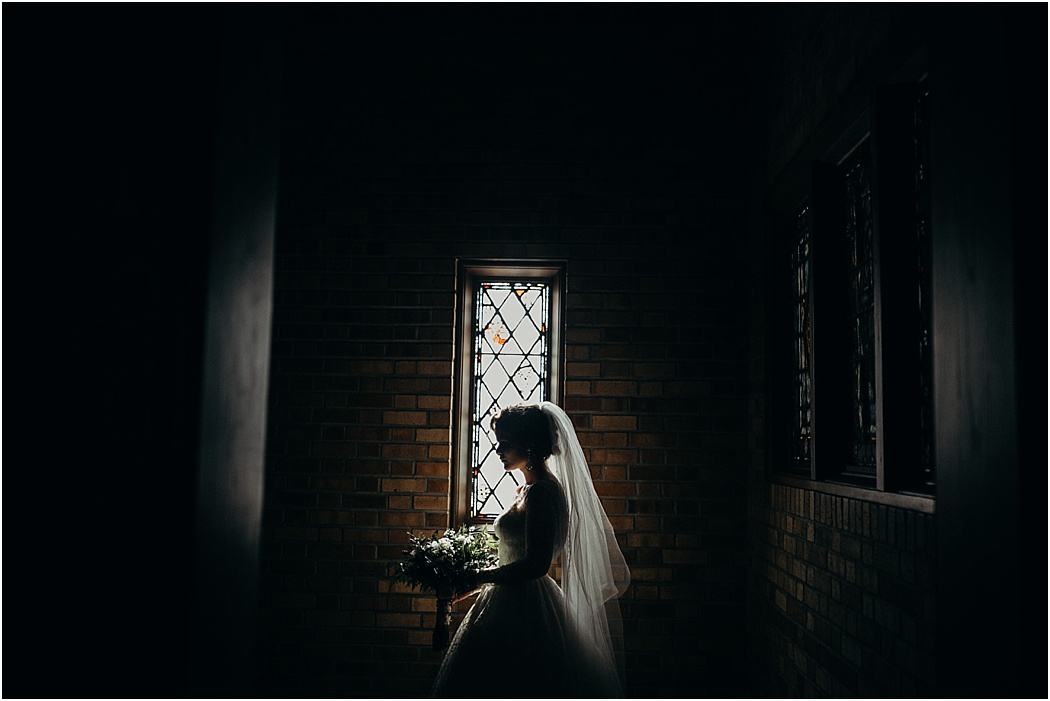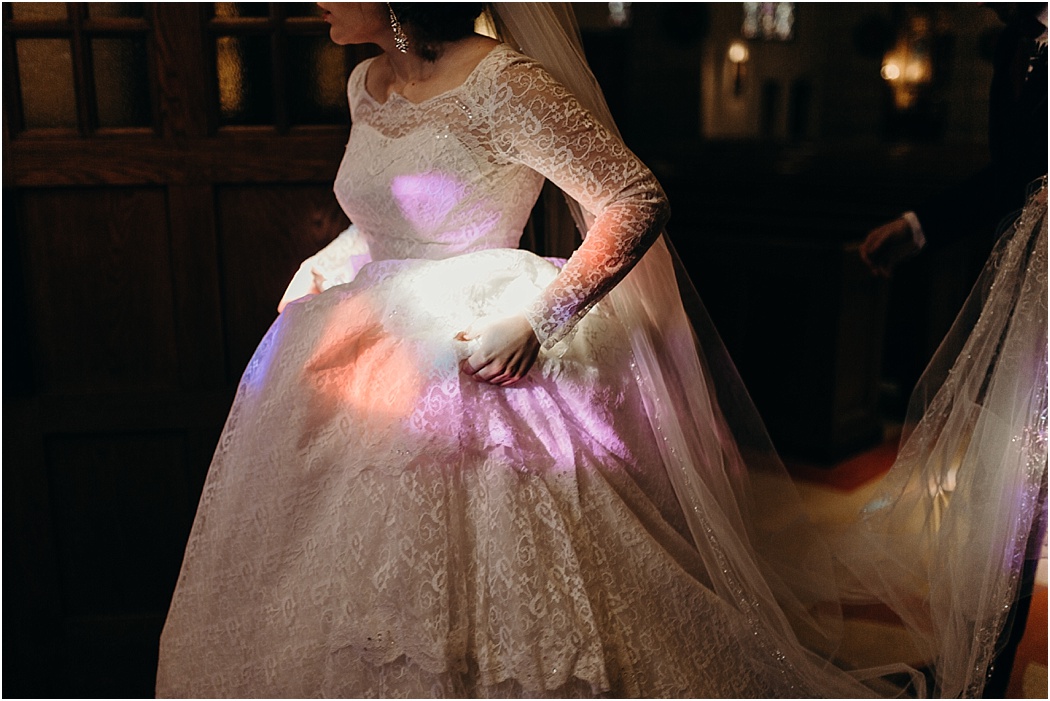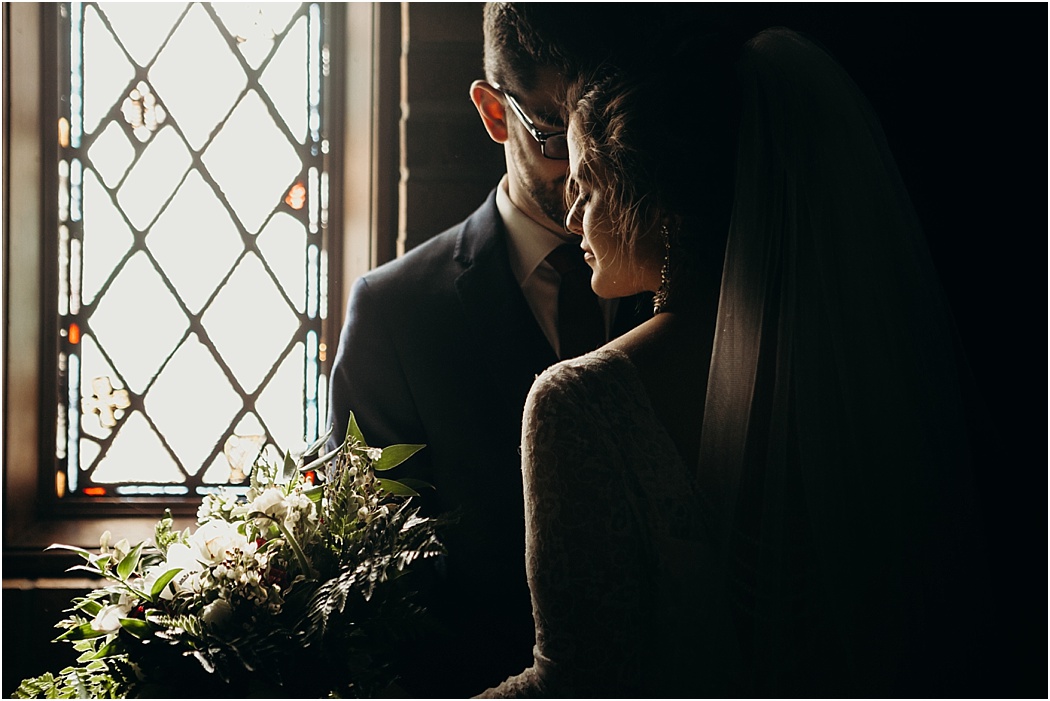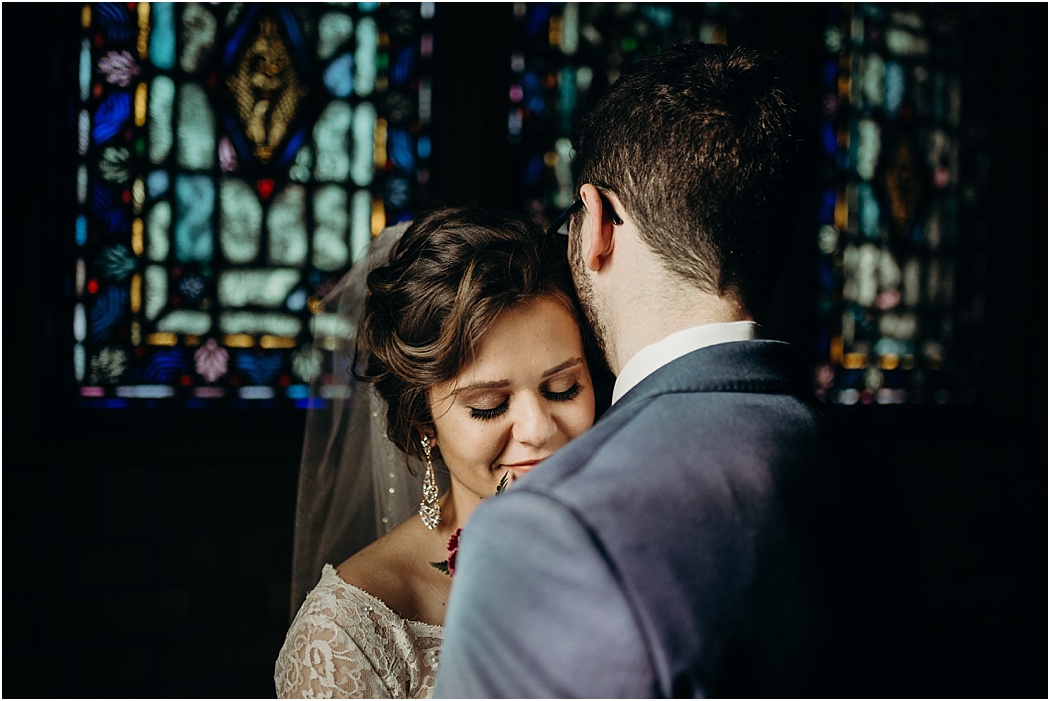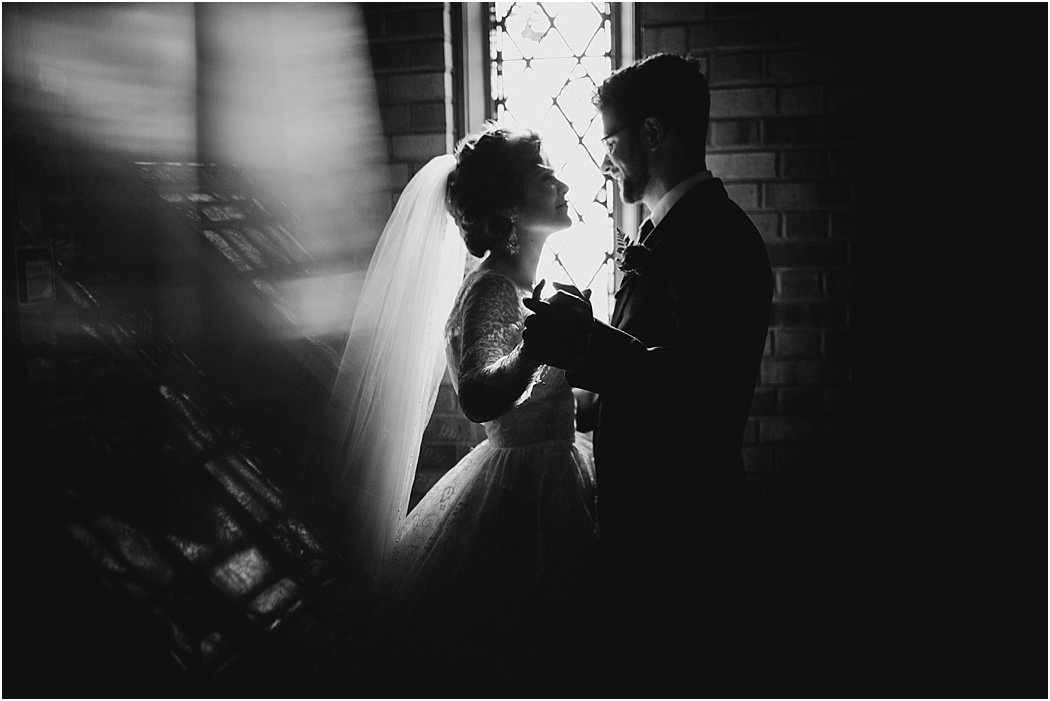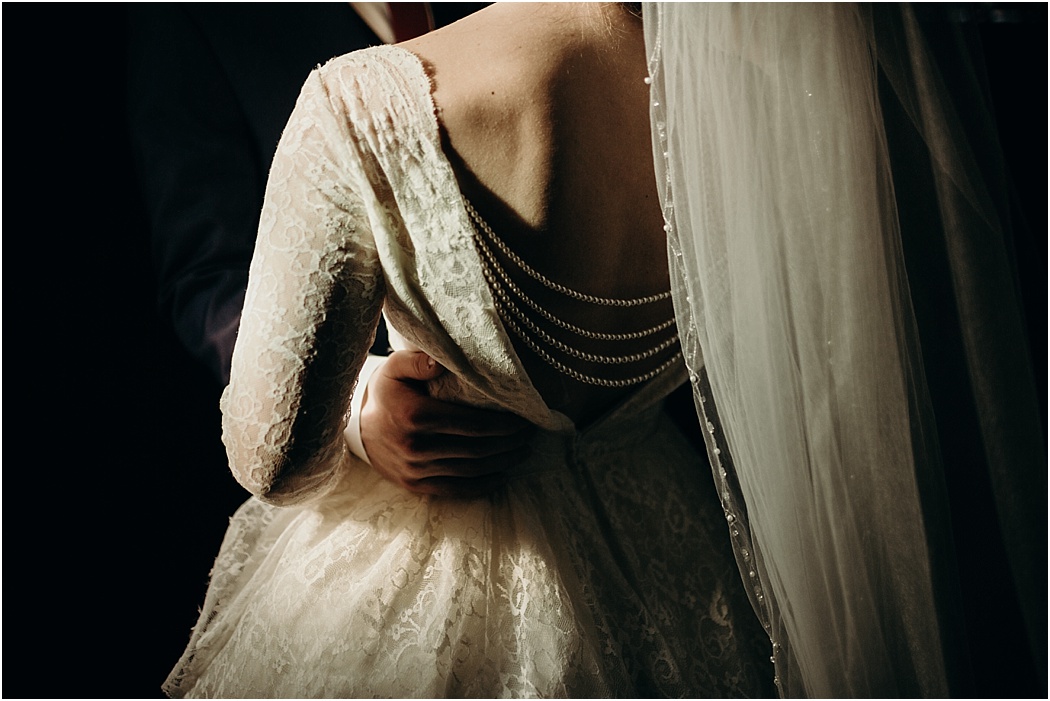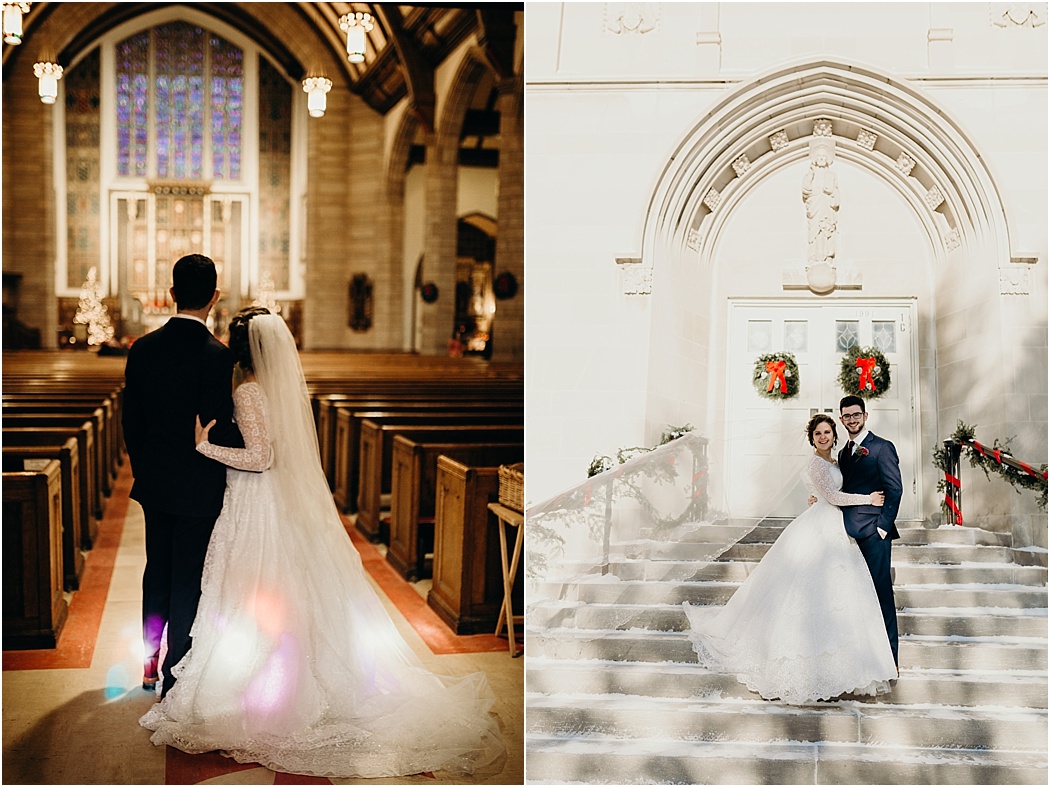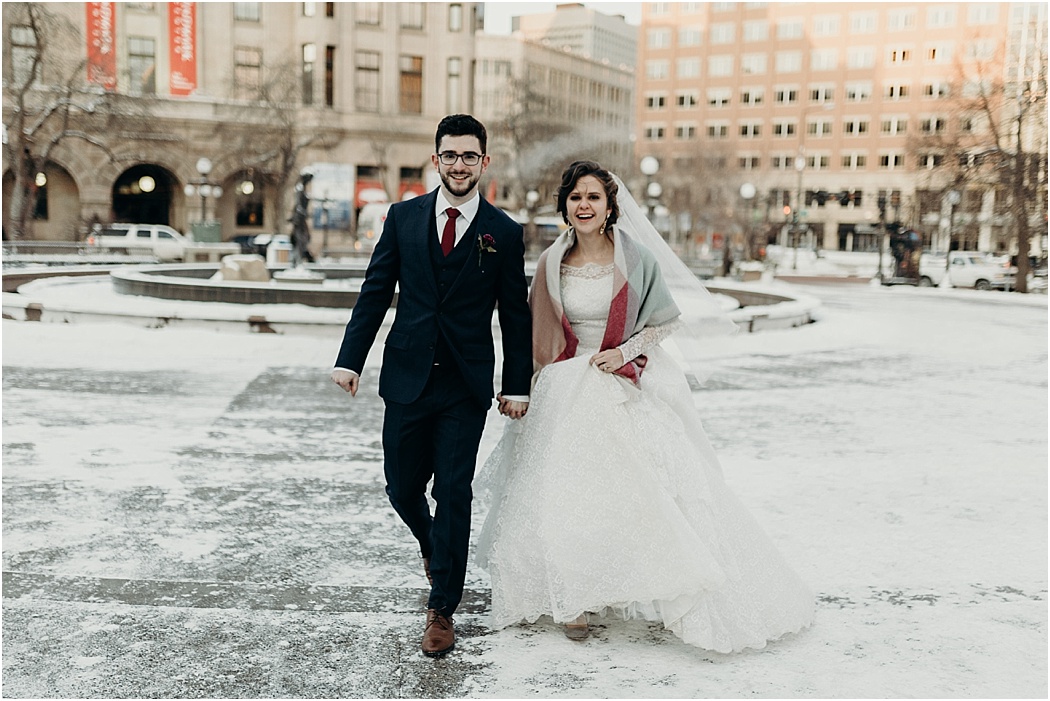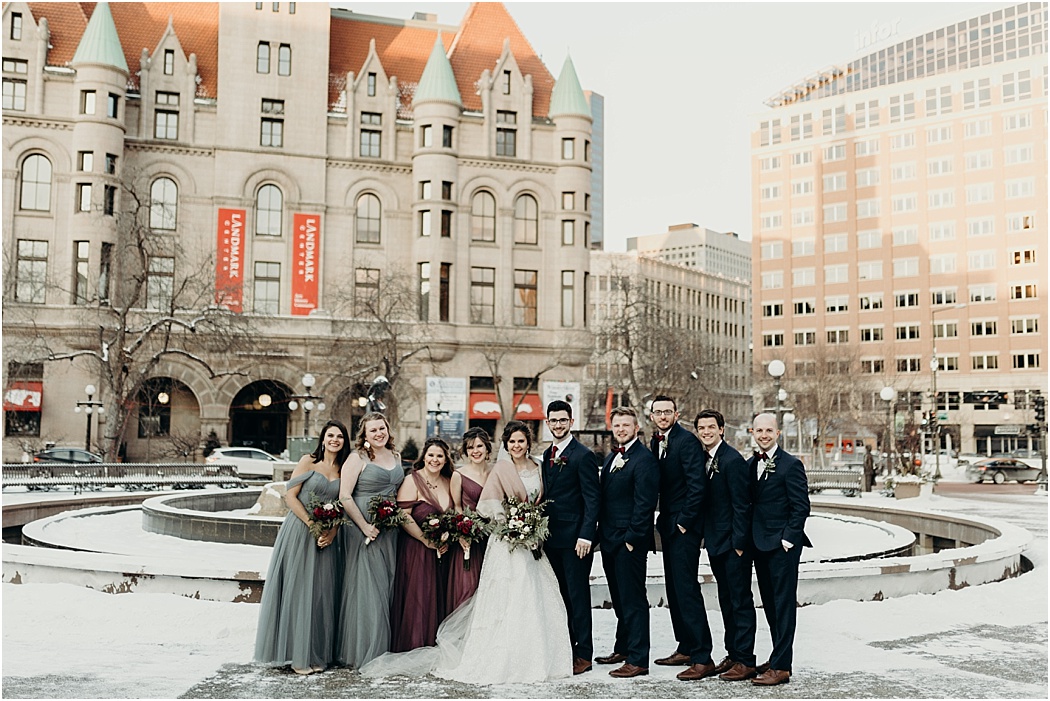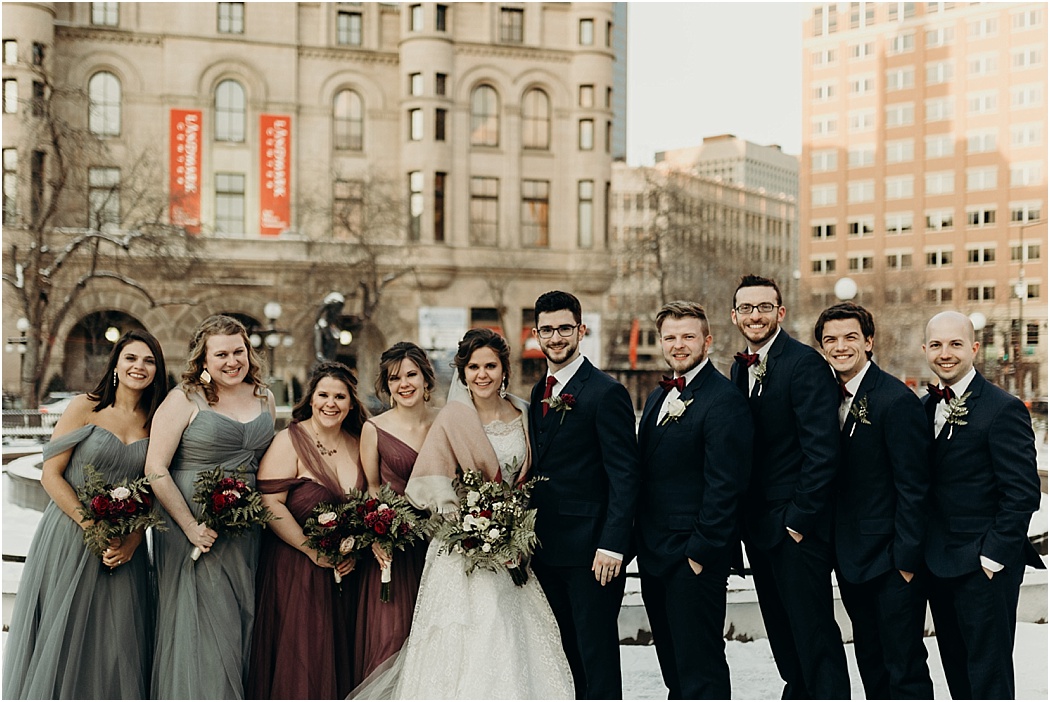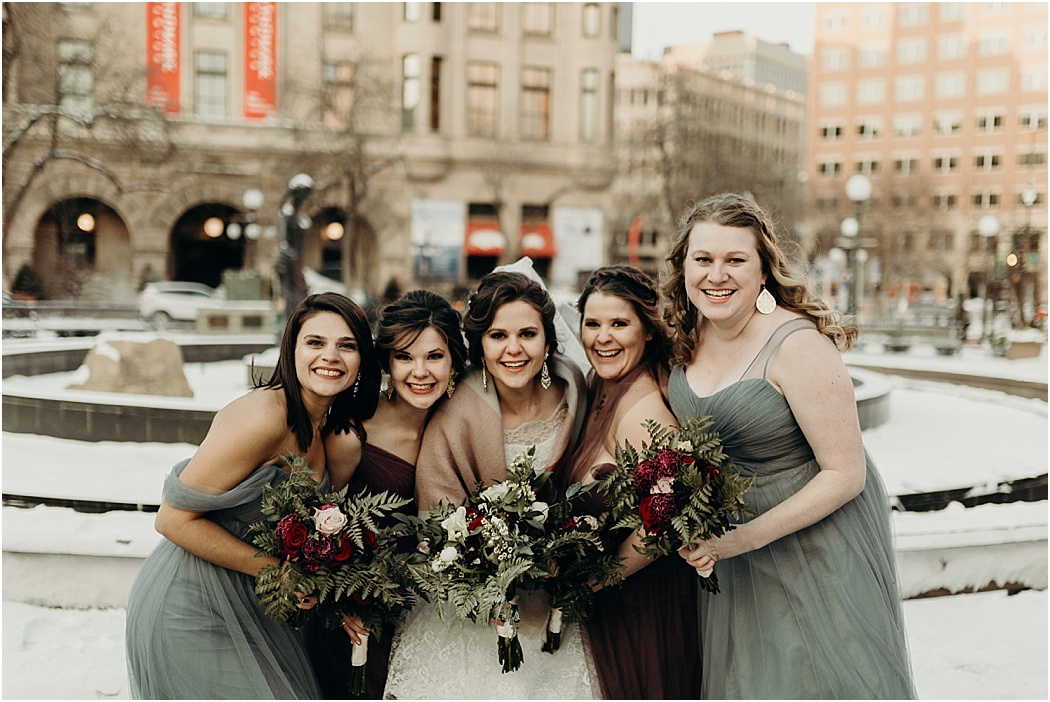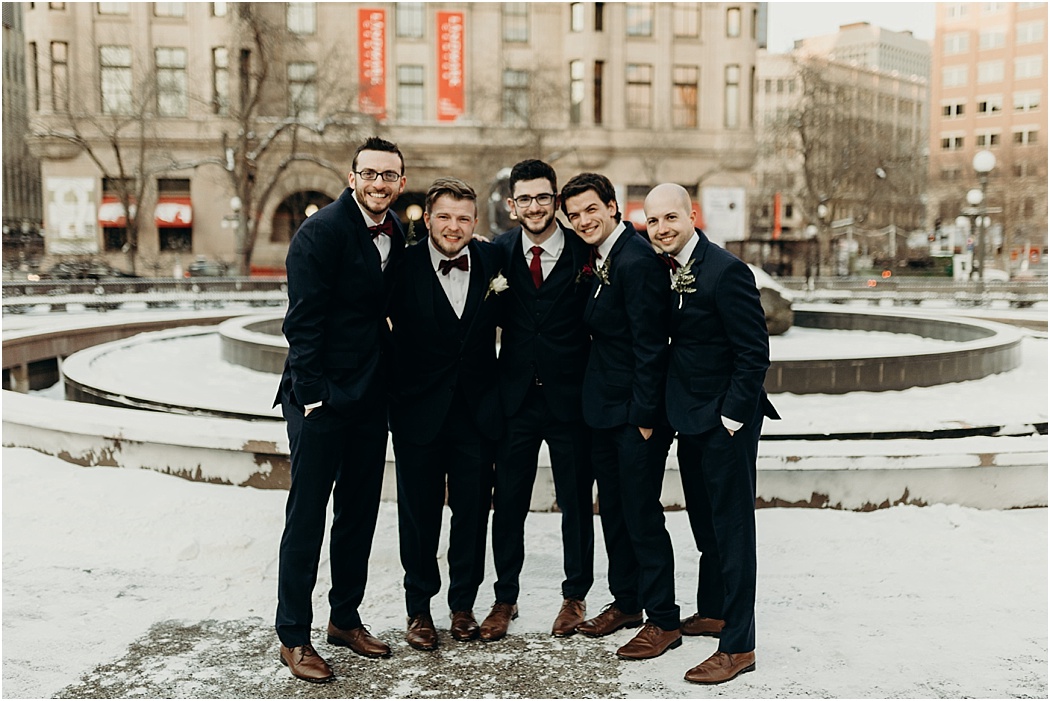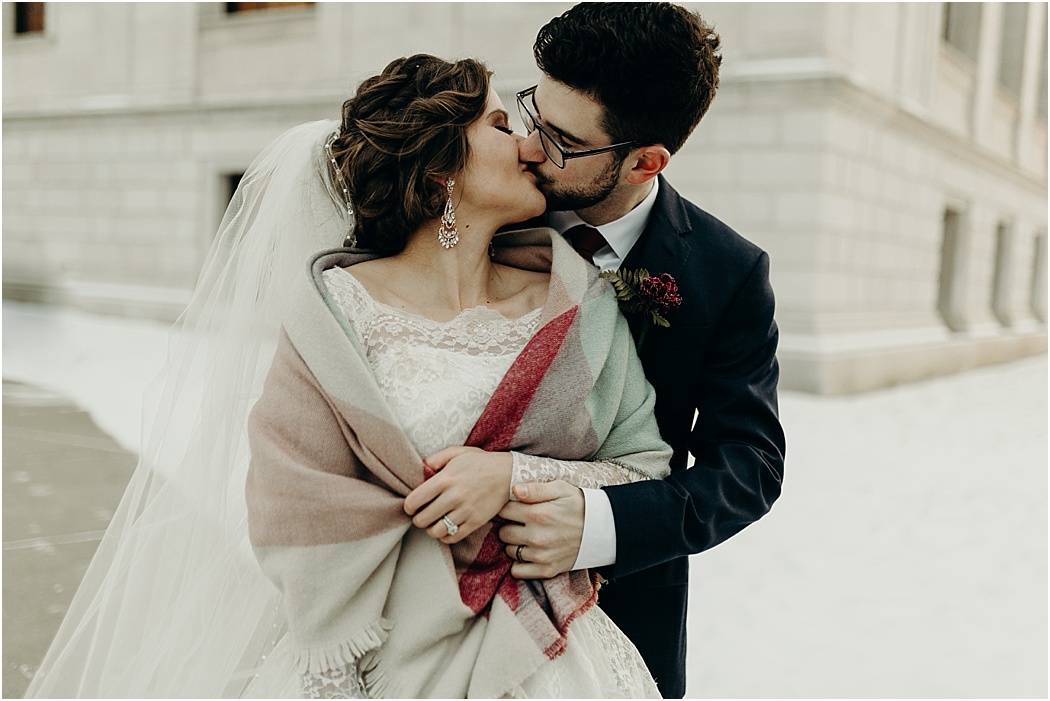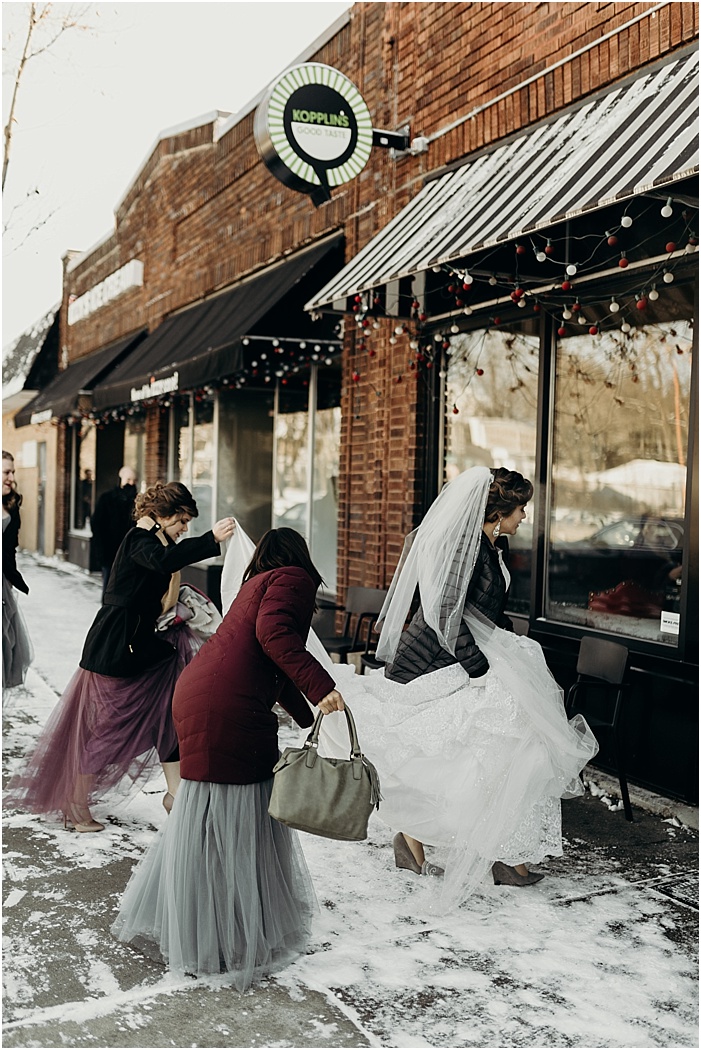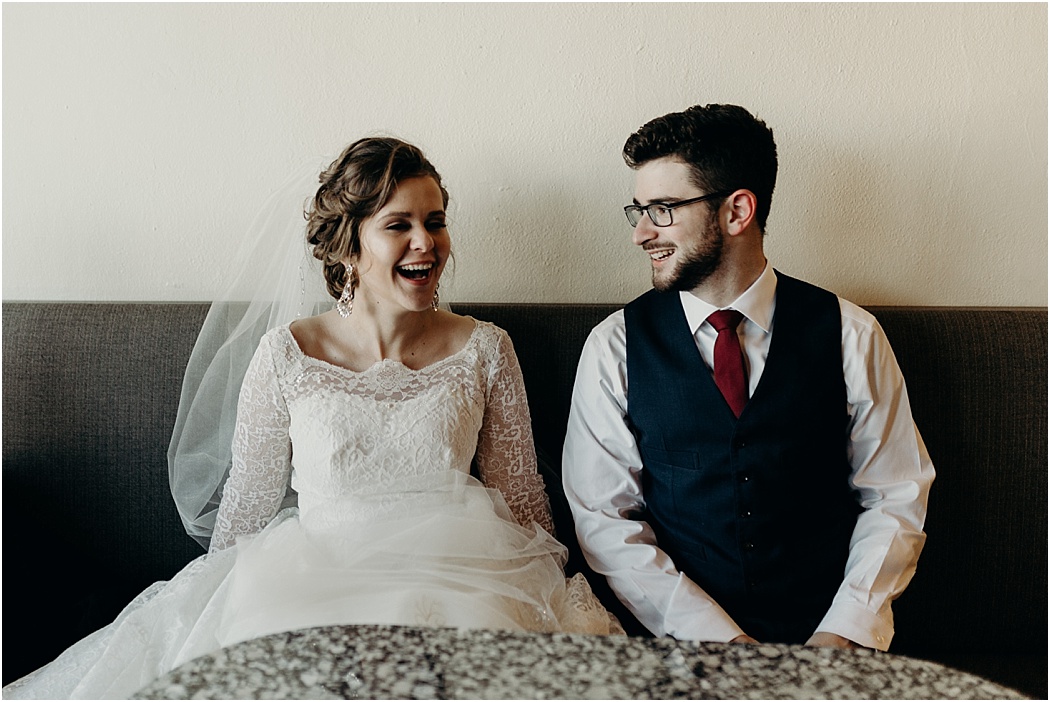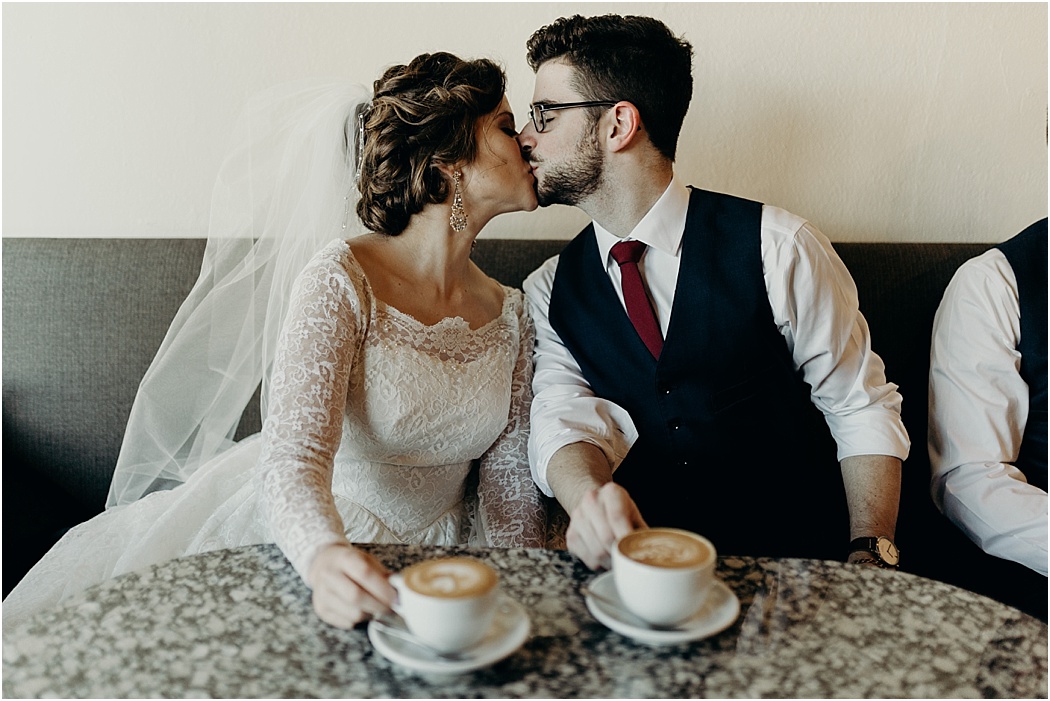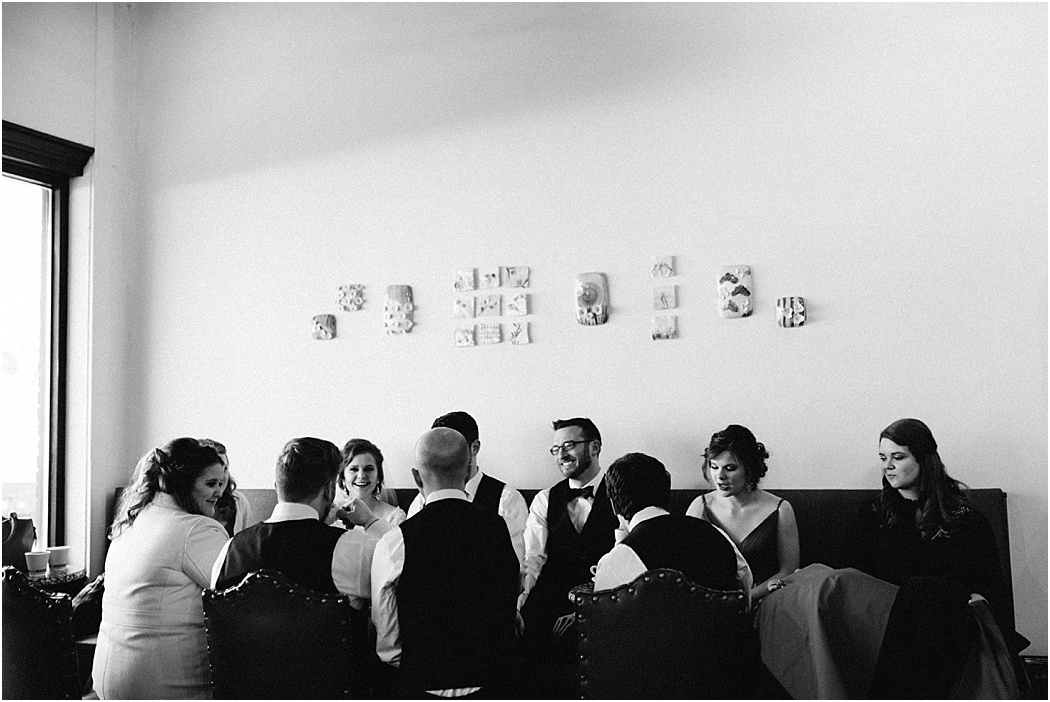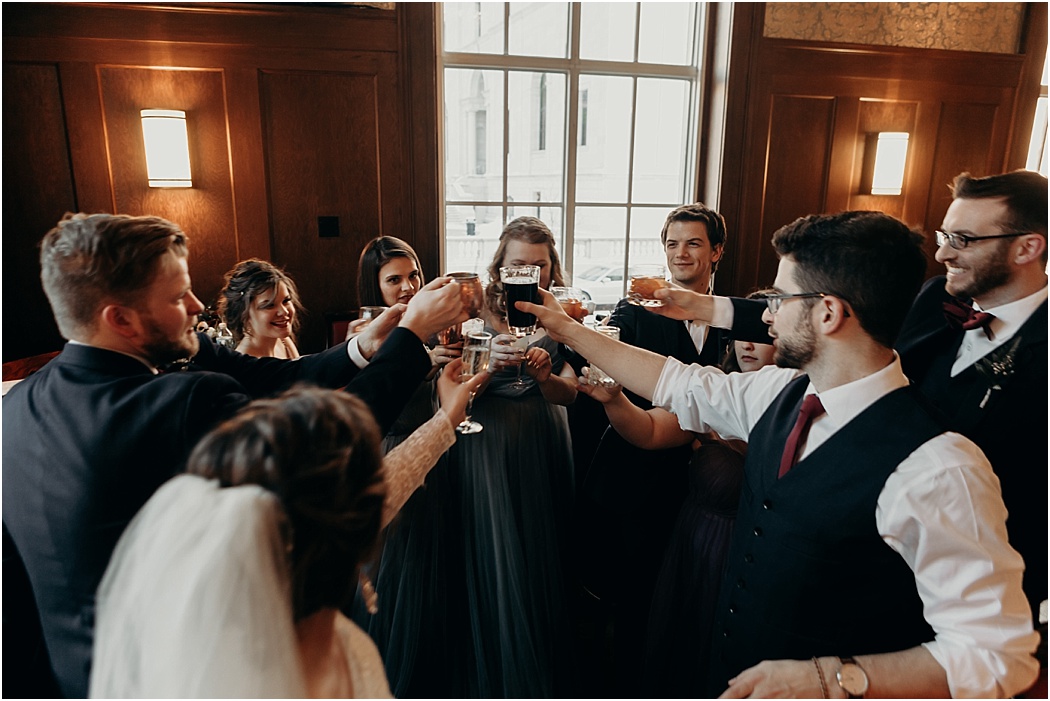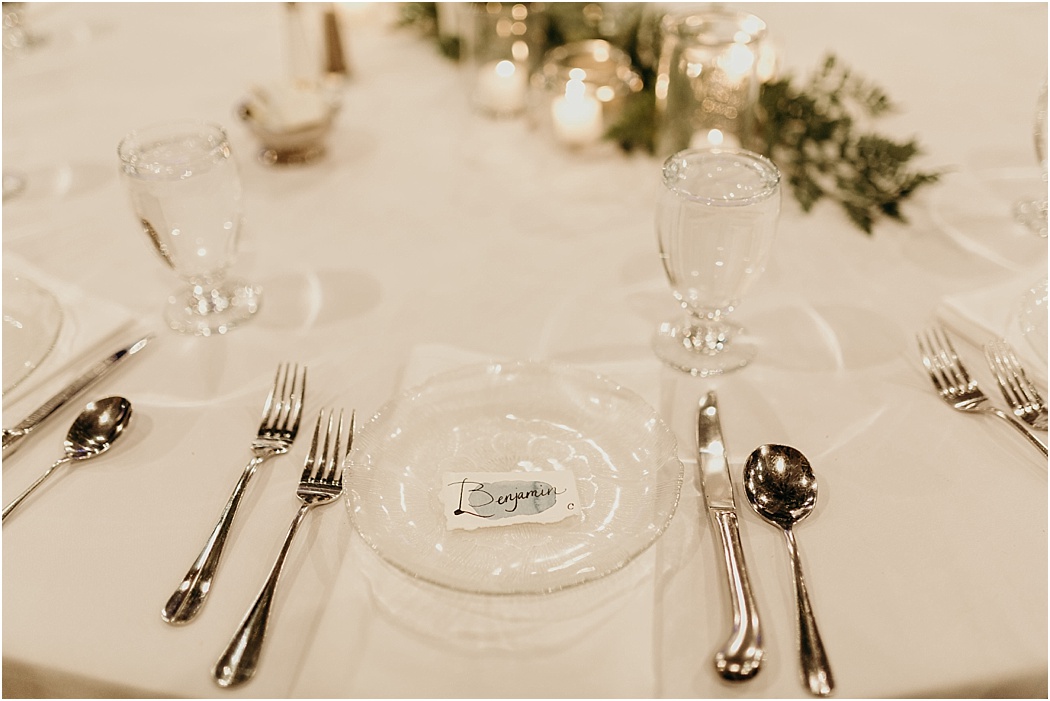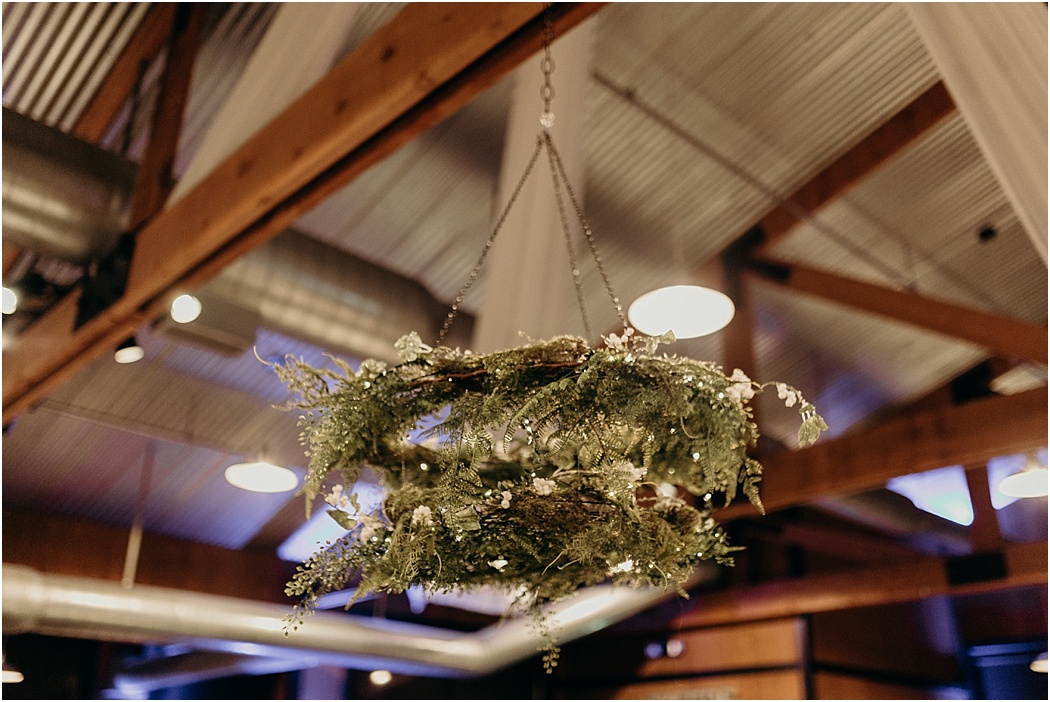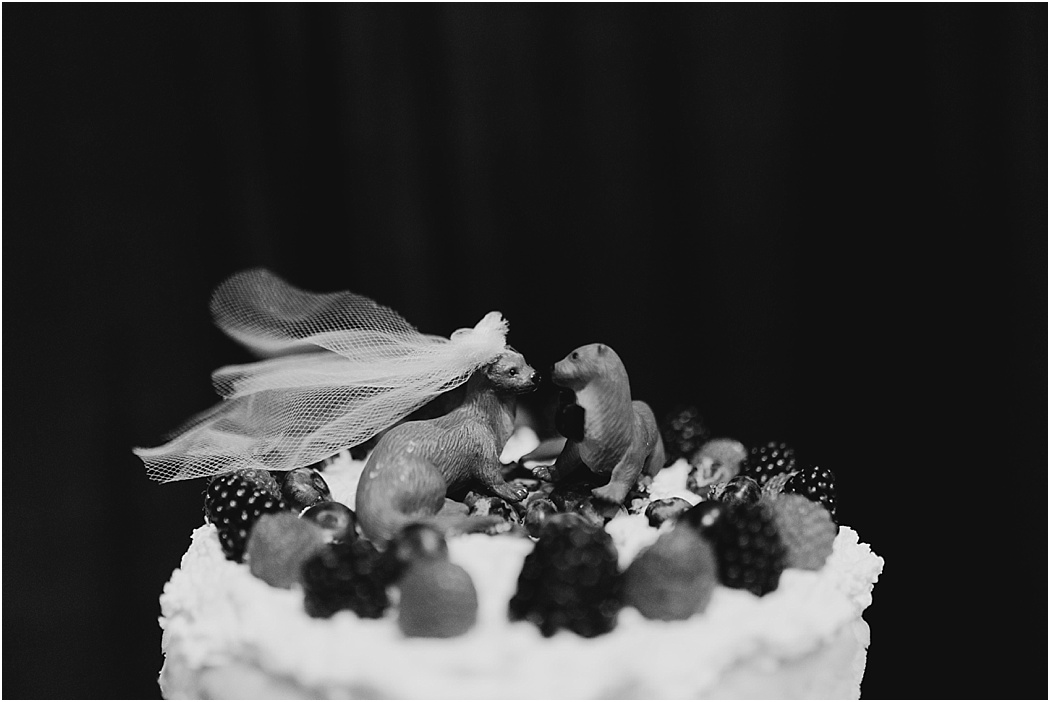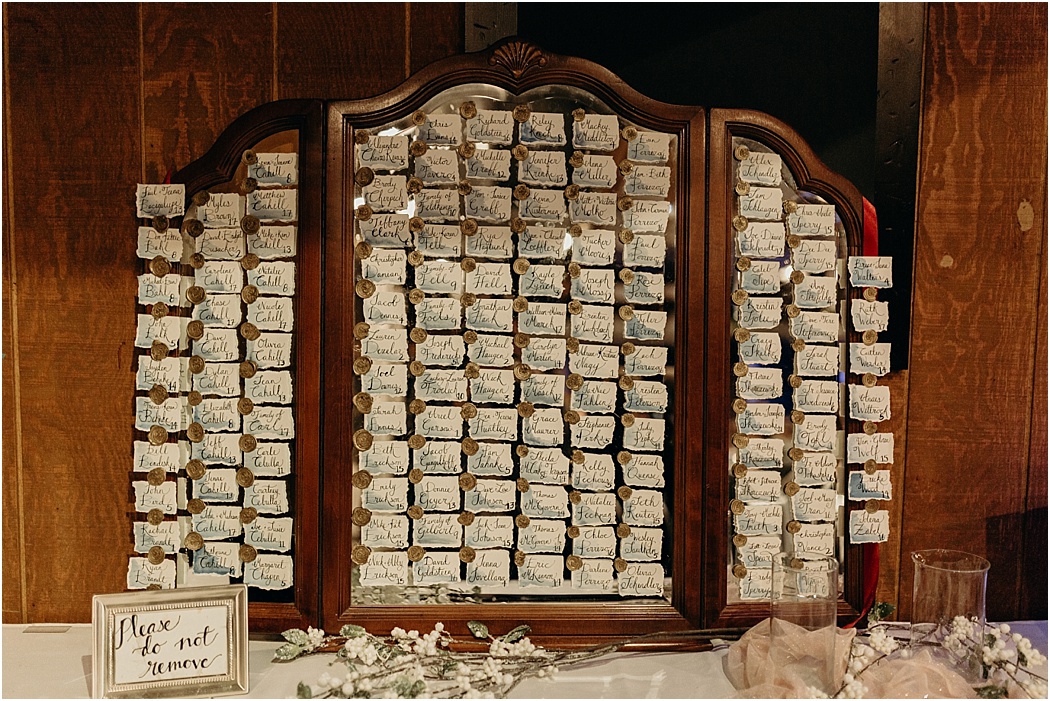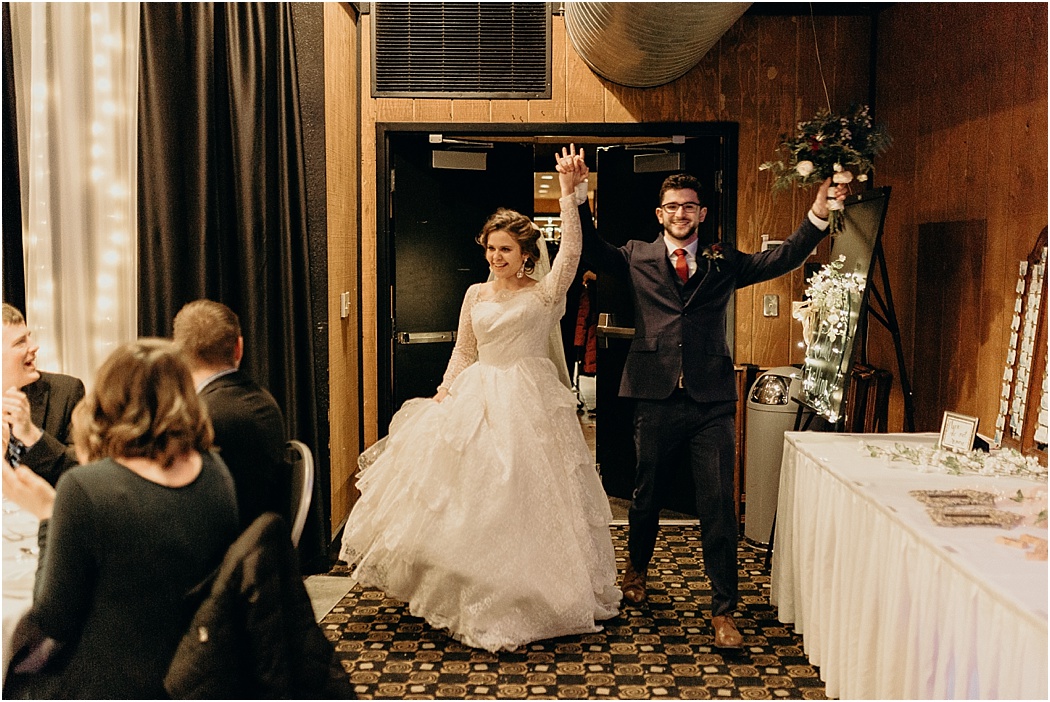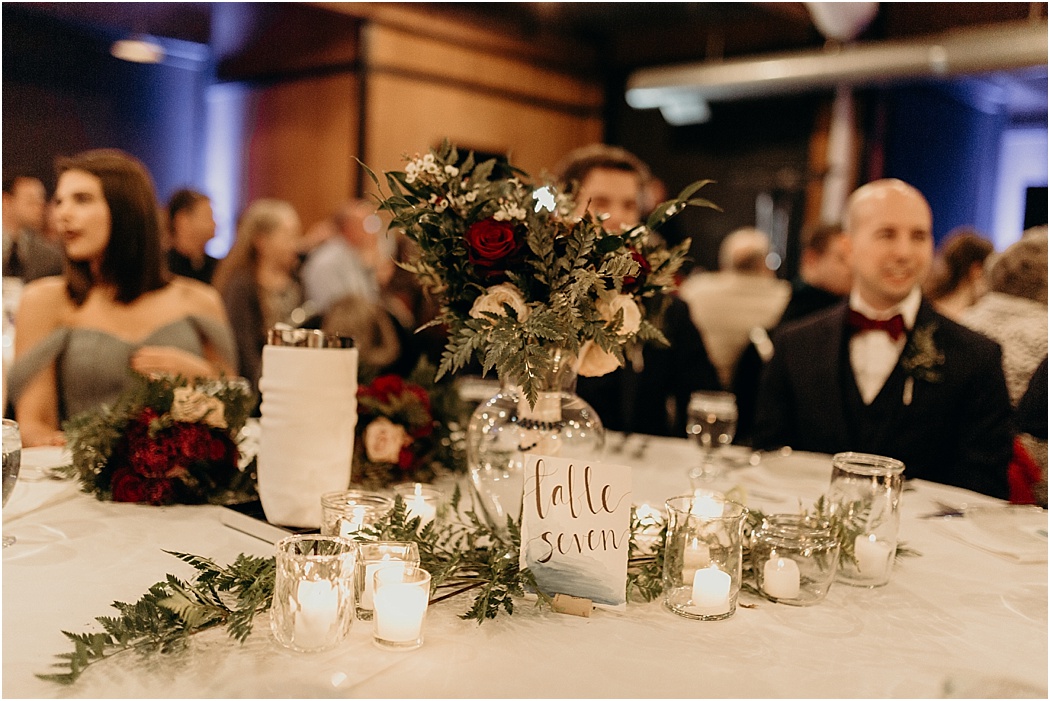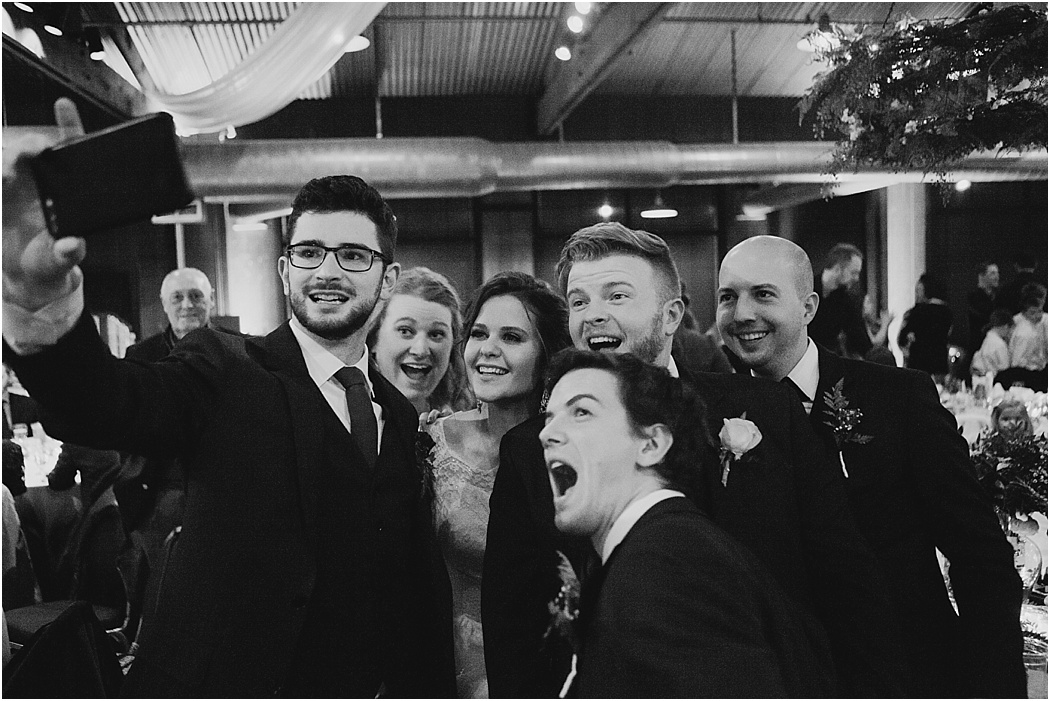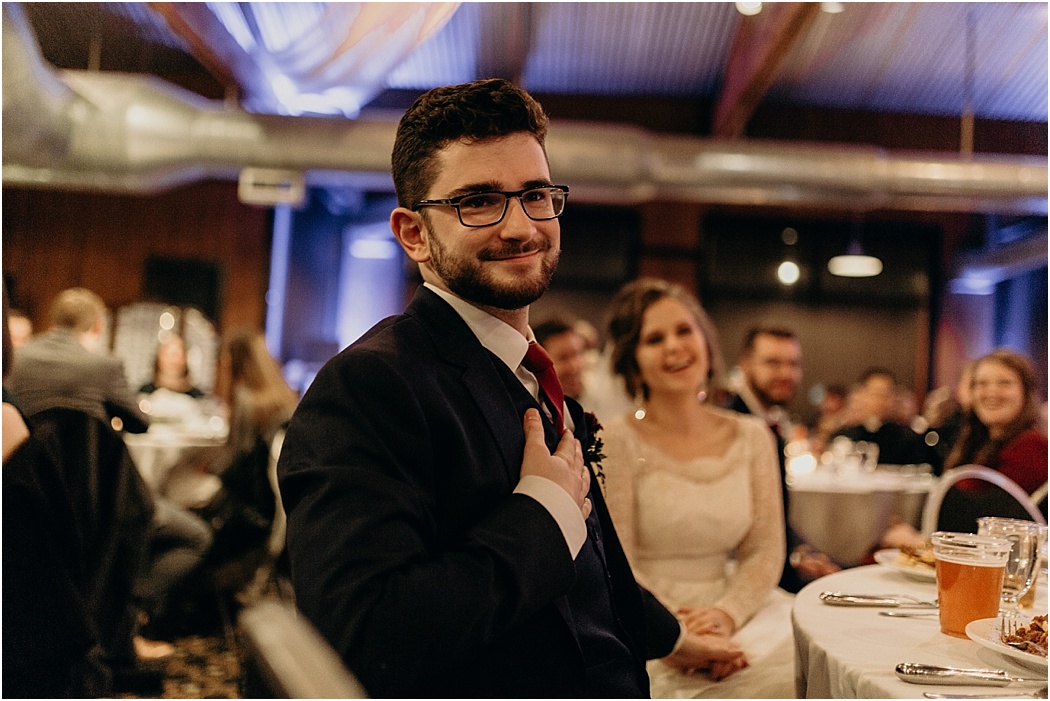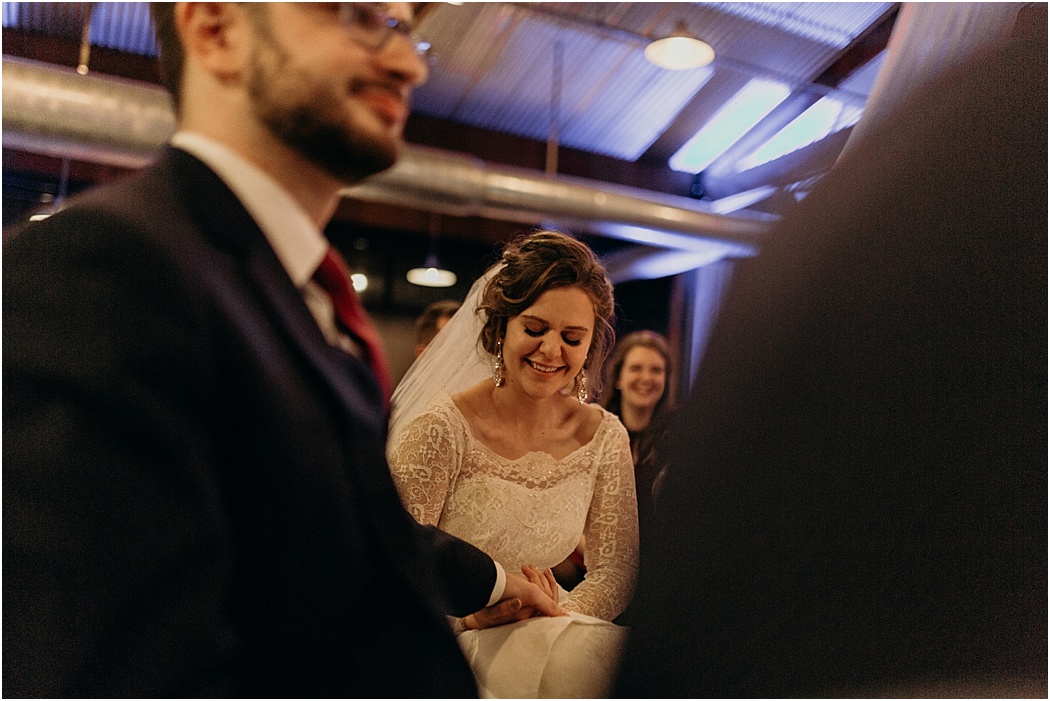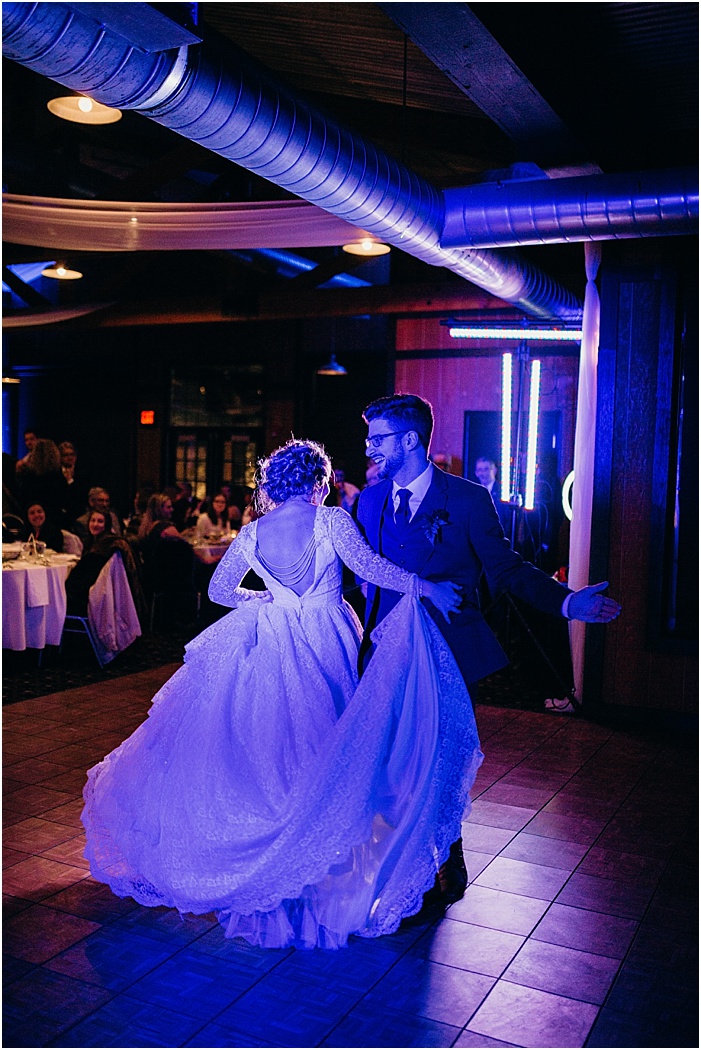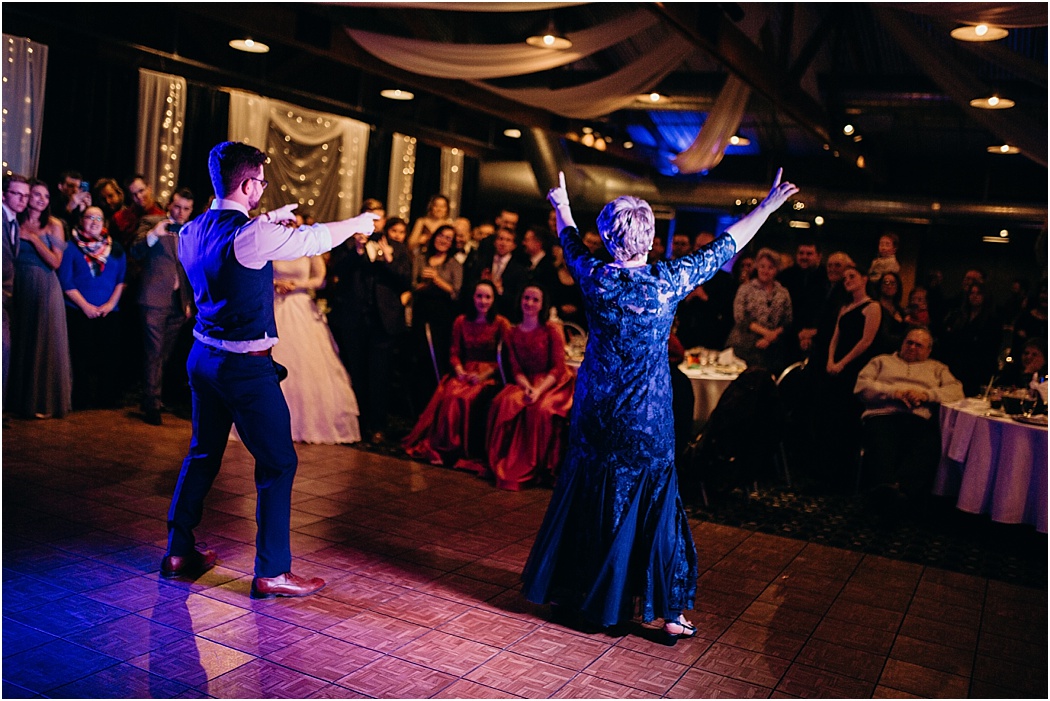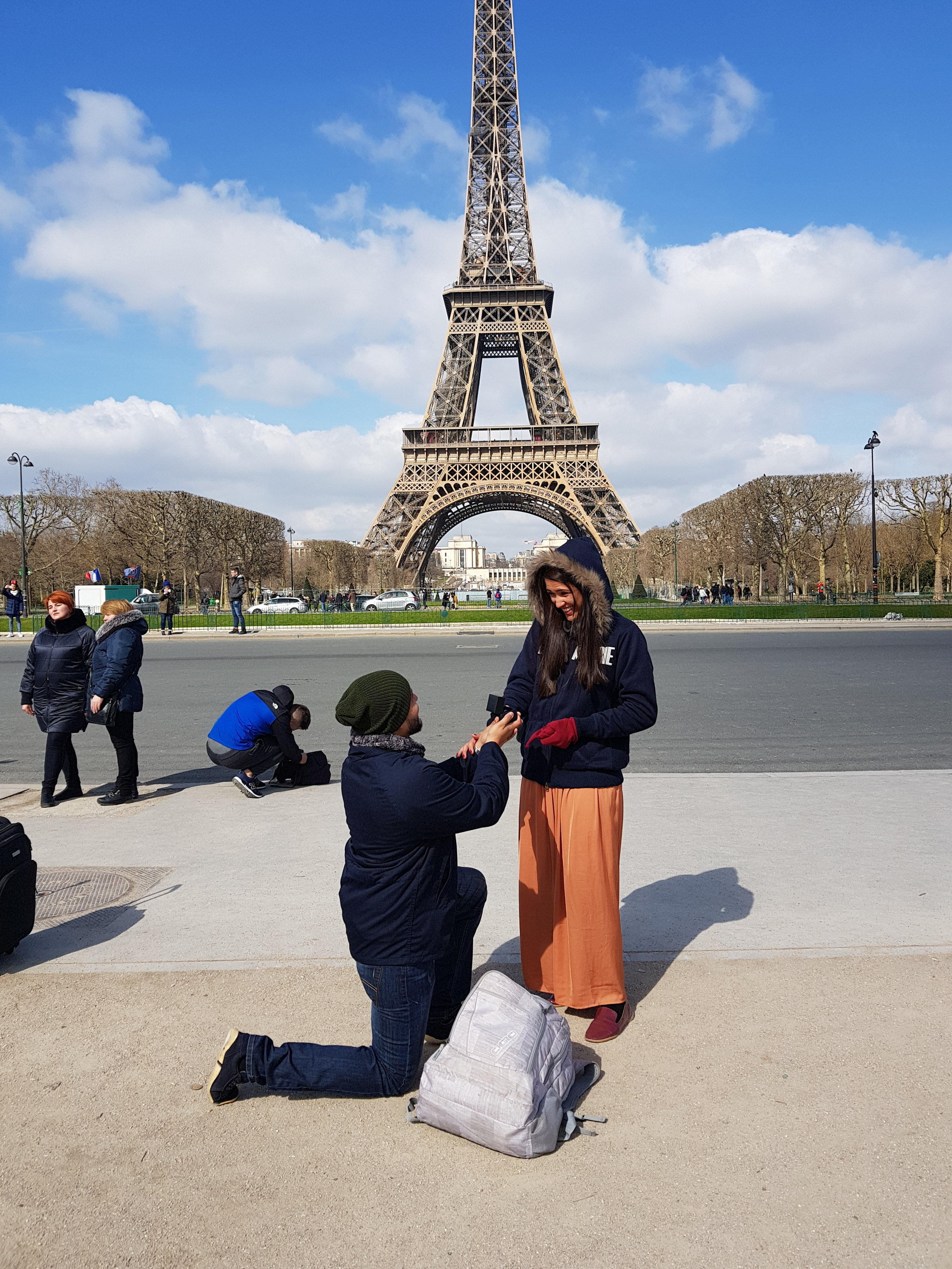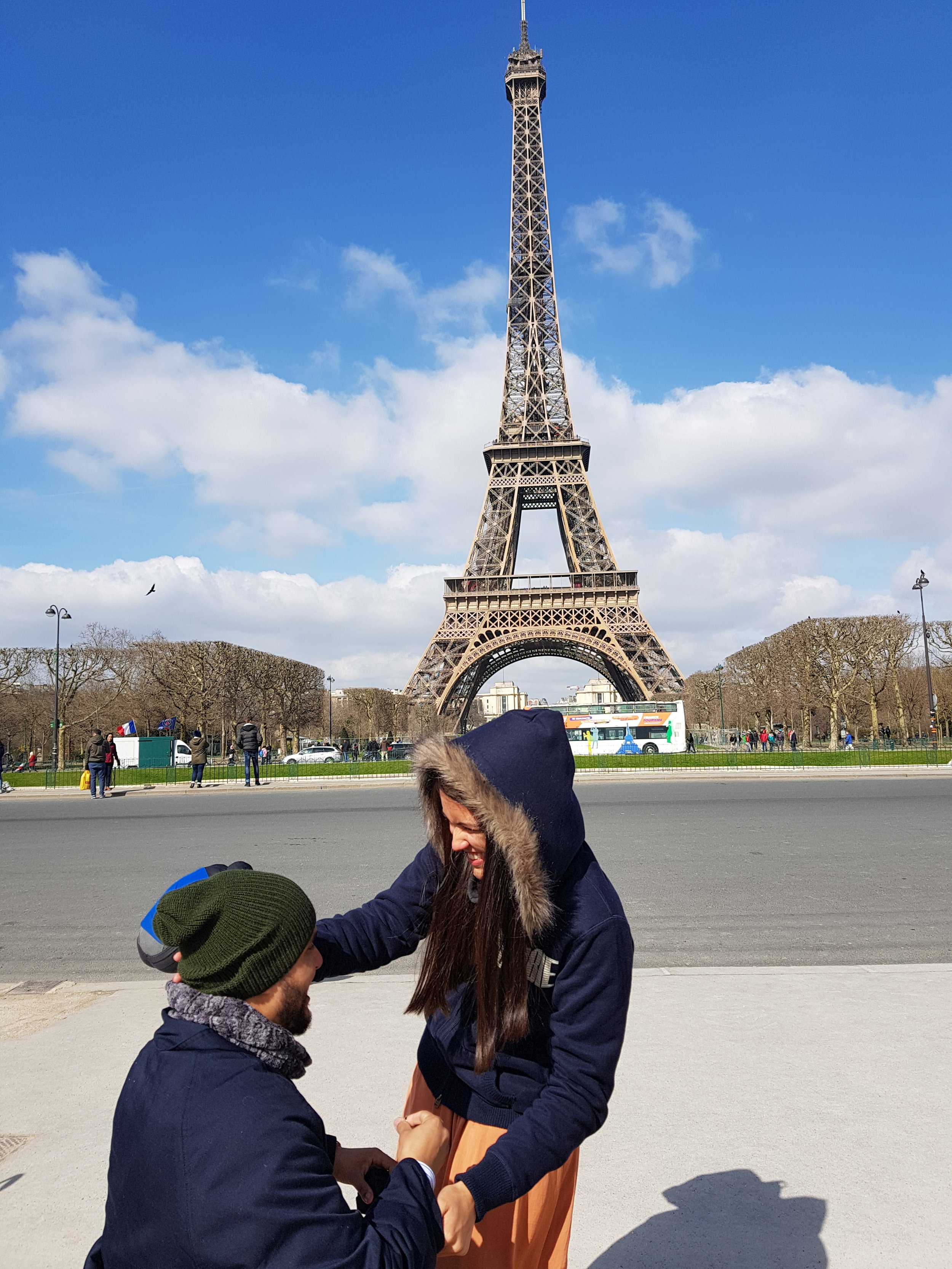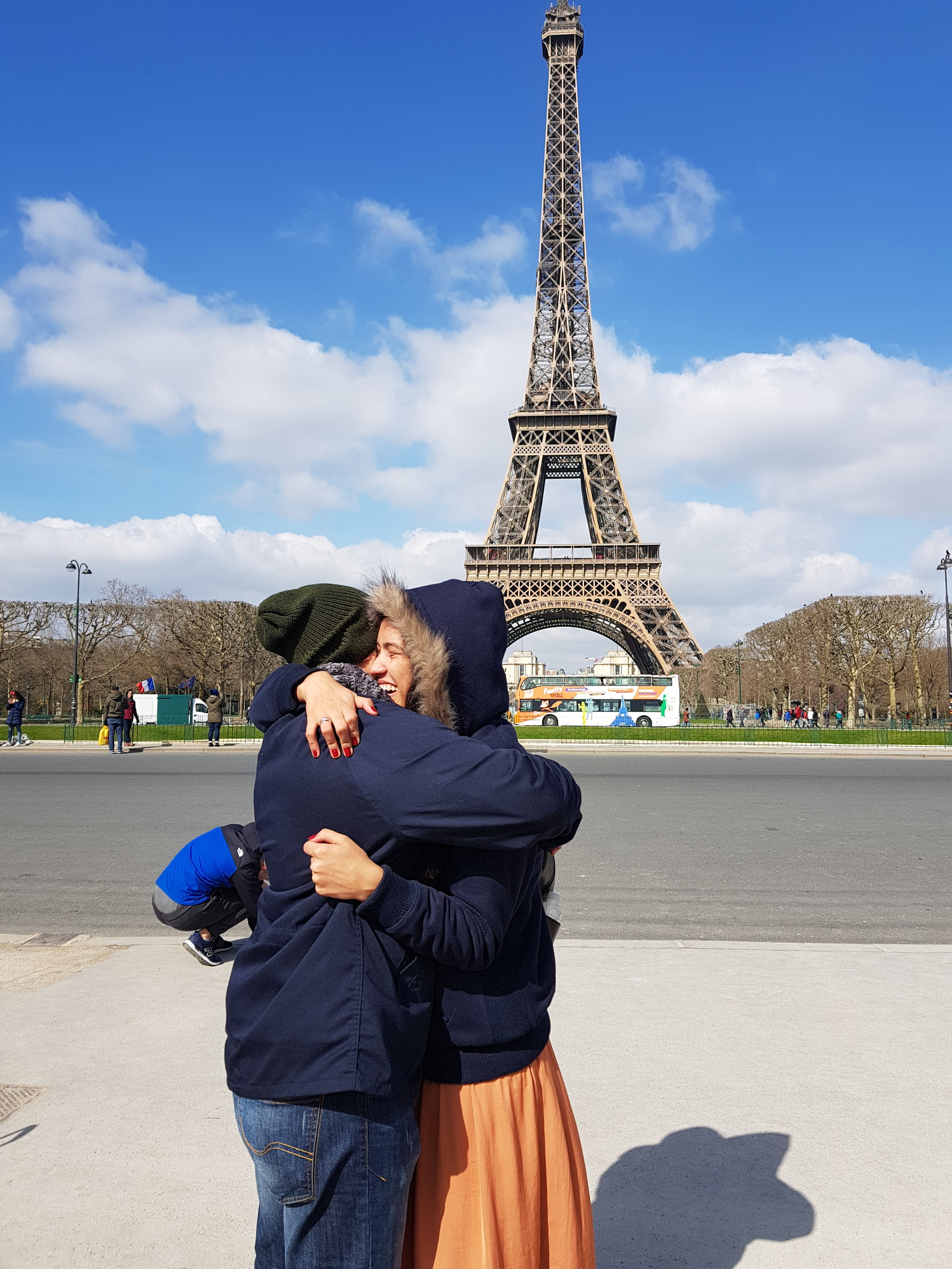Tim and Julie’s love story is one built on patience, truth, love, and a little Mario Kart.
When they first met, Tim was a fallen-away Catholic who loved to ask questions. Julie was a practicing Catholic who quickly came to love Tim’s fun personality and deep conversation, but was hesitant to take the next step.
They knew the difference in their beliefs would keep them from being “equally yoked” in a possible marriage, but God, in his infinite knowledge, still had a plan.
From the Bride: Tim and I met through Nick, a mutual friend, on February 5, 2016. I was tired that day and almost didn’t go out. But we all met at a local restaurant and spent a good portion of that night talking. Tim asked for my number and if he could call me the next day to hear my testimony. I did not think much about him other than as a nice new friend—after all, he was a fallen-away Catholic, now Protestant, and I was devoutly Catholic.
However, he called me the next day, and we talked for about two hours. A week later, he invited me out to Dunkin Donuts. We met that evening and enjoyed a great conversation about God, our faith, and our interests. Conversation flowed naturally, and he admitted that he would love to date me but did not believe in being unequally yoked, so we left things as friends.
Tim and I became best friends in no time. Sometimes we got together with Nick, and sometimes it was just the two of us playing Mario Kart or coloring and just enjoying each other’s company. I began to feel a tug at my heart that despite Tim’s Protestant faith, I loved his heart for God and his personality. He was very devout in his faith, and I knew he’d make a great Catholic!
In June 2016, I discovered Our Lady of Siluva was a great saint for the reversion of sinners, so I began praying to her and including his reversion in my rosary intentions. Months went by, and I continued praying daily for Tim as we continued our friendship. Over time, he began showing more of a genuine interest in Catholicism and asked me questions about misconceptions that initially had pulled him away. I shared some apologetics books and articles with him, and on January 13, 2017, we started dating.
It was at this time he told me he would like to go to Mass. I continued to pray my rosary and reached out to my priest to pray for Tim at Mass as well. The first few Masses he attended were difficult for him, but he kept feeling pulled back. Months went by and misconception after misconception soon became answered. Tim began to fall more and more in love with the Mass, and around May of that year, he made the decision to attend RCIA.
In June 2017, Tim declared that he felt called to start praying the rosary with me, a year after I began asking for Our Lady of Siluva’s intercession. He continued to dive into learning more about the Church, and he began to fall more in love with the truth of Catholicism every day. By the time he began RCIA, the catechists said that Tim knew so much, he should be on the other side, teaching it!
On September 23, 2017, a few days after my birthday, Tim and I decided to go down to one of our favorite places: Wildwood, New Jersey. Later that evening, Tim had me get in his car and made me close my eyes until we arrived at what I later discovered was Sunset Beach in Cape May. He took my hand and led me to an open patch where two chairs were facing each other.
The sun was setting over the ocean behind us. I sat down and discovered he had brought his guitar, and what followed was a beautiful heartfelt speech of his love for me, combined with all our favorite Christian songs and love songs that reminded us of each other. I was a puddle of tears by the end of the speech, and he got down on one knee, saying jokingly, “Wait, I forgot something!”
He ran off, and came back with my little shih tzu, Ginger, wearing a sign around her neck that said, “Julie, will you marry me?” He got down on one knee again and asked me the question that made me the most joyful girl in the world! We finished the night with an engagement shoot from our talented photographer and (later) DJ of our wedding, Daniel Jeffrey (of Daniel Jeffrey Studios), who had also had taken pictures of the entire proposal in hiding.
Tim and I wanted our faith to be the centerpiece of our wedding day, so the night before our nuptials, we went to adoration together. There were going to be many cultural Catholics and Protestants at our wedding, but we could not imagine our ceremony without a beautiful nuptial Mass focusing on Christ.
Ever since we began praying the rosary together in June 2017, we hadn’t missed a day, so it was very important for us to begin the morning of our wedding day by praying the rosary on the phone together.
Fittingly enough, it was difficult to find a wedding date that worked for our priest, church, and reception, and the one date that was available ended up being June 9, 2018, the Memorial of the Immaculate Heart of Mary. Our Lady had heard my intentions back in June 2016, continued to hear our intentions when we began praying together in June 2017, and now she was going to be a part of our wedding day in a way we never could have expected.
Early that morning, we called each other on the phone and prayed our rosary. We also read letters that we had written to each other. Tim’s letter was absolutely one of the sweetest things I have ever read, and I was grateful I read it before having my makeup done. We hung up and prepared for the next time we would see each other--to become husband and wife.
I could hardly wait to get into my dress and veil, because they were everything I dreamed of. I had always wanted a ballgown, something with a slight poof that would remind me of my days as a little girl, twirling around in princess dresses. Modesty was also incredibly important to me, but I never imagined I would find long sleeves and a modest neckline like I did.
The dress was on clearance from David’s Bridal, and it was simply meant to be. They only had two sizes left, one of them being my size. There was so much gorgeous detail: beading and lace from top to bottom. My mom graciously sewed some additional lace to the back of my dress, as there was a small section that seemed abnormally “bare” compared to the rest of the dress’s modest covering and lace detail.
I slipped into my lace flats, which were the perfect combination of simplicity and daintiness to match my style. Finally, I put on my veil. I loved how traditional it looked; it reminded me of the veil my mom wore on her wedding day. There was just enough detail on the edges, and it was the perfect length for me. Altogether, I truly felt like a princess.
I chose mixtures of roses and lilies for our flowers. Roses in honor of Mother Mary, and the lilies in honor of my mommom who had passed away thirteen years ago. I was very close to her, and the lilies (in addition to me wearing her watch) were little reminders that she was with me on my special day. I also chose mixtures of creamy whites because white symbolizes purity.
My bridesmaids’ bouquets were just as beautiful: baby’s breath surrounded soft purple and pink roses. They went perfectly with their royal blue dresses. It had been so difficult for me to choose the dresses for my girls. I knew I wanted them all to be the same, but I kept going back and forth on the color. Finally, I came across a royal blue color swatch, and it was so richly blue, it reminded me once again of Mother Mary’s hand in our day. I settled on beautiful, modest dresses from JJ’s House with short sleeves and lace on the top half with a flowy bottom.
We lovingly planned our Mass so it was nothing short of a foretaste of Heaven.
Tim processed down the aisle, followed by our priest and deacon who had been a part of his reversion to the Church. The air was filled with all our favorite hymns including the “Servant Song”, “How Beautiful”, and “I Am the Bread of Life.” I walked down the aisle to “Canon in D”, the melody I had dreamed of walking down the aisle to since I was a little girl.
We had been nervous for our nuptial Mass because of how few guests were practicing Catholics, but the love of God was tangible the entire time. Our priest kindly reminded those who were not Catholic or not practicing to refrain from the Body and Blood of Christ, which helped save us a lot of stress.
It was wonderful having our priest who had been with us from the very beginning of our relationship preside over our wedding Mass, and it was equally as wonderful to have our deacon who was a part of Tim’s RCIA process assist. Our ceremony was not at our parish, but at the church where Tim had been baptized and received Communion before he had fallen away. We did this to bring our spiritual lives together—Tim’s former church and our current priest and deacon—and it was beautiful seeing how this parish had come full circle for Tim.
Nick, who helped Tim and I meet, was our lector, and our two dear friends from RCIA presented the gifts. We chose the “Wedding at Cana” for our Gospel reading because, of course, we had to continue to tie our Blessed Mother into our day! And our priest gave such a wonderful homily on unity and following Christ that I think it was refreshing for all our Protestant friends, many of whom had never been to a Catholic Mass, to hear such a gospel-centered message. We concluded the liturgy by giving flowers to Our Blessed Mother while praying and singing “Ave Maria”. It was a beautiful end to a beautiful Mass.
Our reception was filled with food and dancing. Tim and I created little “Madlibs” from Vistaprint for our guests to give us some “wedding advice,” and we added some of our favorite saint quotes on love and marriage. Our cake was beach-themed, since we both love the beach and that was where Tim proposed. We had graham cracker crumbs and brown sugar for sand, two little beach chairs that read “Mr. and Mrs.,” and a topper that said “God Gave Me You”. Our first dance was “Perfect” by Ed Sheeran, another song that reminded us of our relationship.
Our wedding day flew by, like they all do, but I carry the joy with me every single day when I reflect on it.
Like many girls, I had dreamed of this day my entire life. But there were so many things that occupied my mind that felt overwhelming. Our priest once told us that nothing is perfect this side of Heaven. Things can go wrong, people get sick and can't show up, inclement weather happens, or construction can occur on the outside of your church (like in our case!).
However, after stressing over all the details for months on end, I realized how small all these worries really were. The only thing that really matters is the marriage sacrament between you, your husband, and God. The prayers you pray each morning, the sacrifices both of you will make, and the trials both of you will face are so much more important than the flowers, the cake, or any of the other little things that occupy the wedding day.
Reflecting back on our day, we realized that everything we worried about went to the wayside, and the peace of God was with us from start to finish. Everything simply fell into place, and God's hand was in every single aspect.
For us, taking the time to go to adoration the night before and praying novenas, a daily rosary, and other devotionals in preparation for our marriage were astronomically important to developing a sound relationship grounded in Christ. So many people stress about the wedding day but neglect the ever-growing commitment it takes to have a strong, healthy, and holy marriage.
And so, Tim and I can't stress enough the importance of constantly relying on God's graces and keeping Jesus the center of your wedding day, your engagement, and the rest of your marriage. If we could do it all again, we would definitely stress way less about the minor wedding details and fully surrender our trust to God. We would trust that He would make our day grace-filled and beautiful, no matter what happened. And yet, we could not feel more blessed about our day and how grateful we are to live out our sacrament of marriage together.


